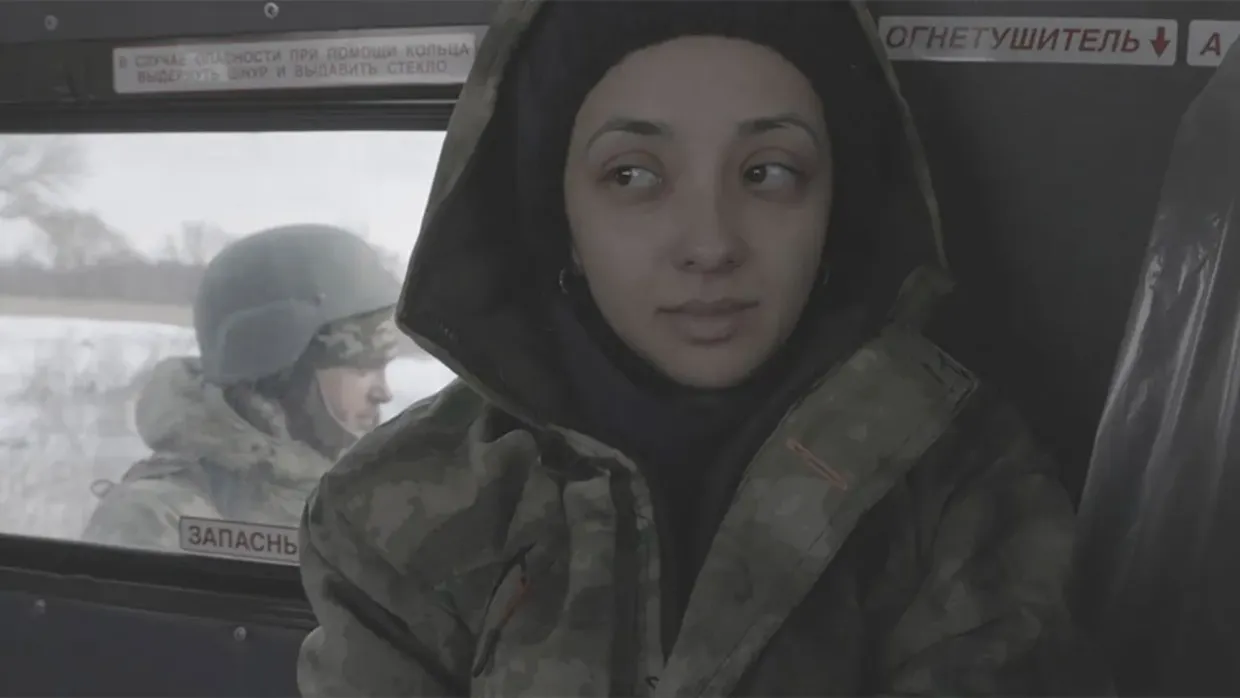-
EU preparing 17th package of Russia sanctions, EUobserver reports
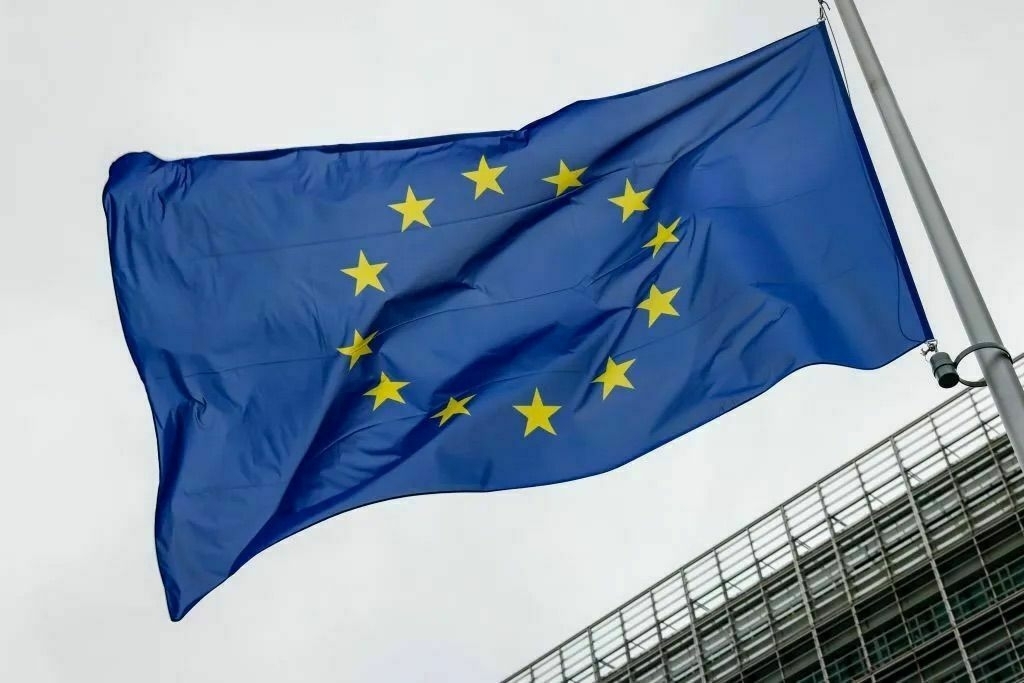
The European Union is preparing its 17th package of sanctions against Russia amid Moscow’s demands for lifting some Western restrictions as part of its ceasefire terms, EUobserver reported on March 27, citing four unnamed EU diplomats.
Following two days of talks in Saudi Arabia, Washington agreed on March 25 to help facilitate Russian food and fertilizer exports by lowering maritime insurance costs and enhancing access to global ports and payment systems. U.S. President Donald Trump said later that Washington was “looking at” the possibility of lifting some sanctions on Russia to secure the Black Sea ceasefire.
In the meantime, work on a new round of EU sanctions against Russia has started and is “at a very early stage,” one of the sources told EUobserver. The European Commission is expected to present its proposals in early summer, another diplomat told the media outlet.
Commenting on the timeline, one of the diplomats told the outlet that “it’s too speculative at this point,” adding that the bloc will be watching how the ceasefire talks between the U.S., Ukraine and Russia will unfold.
“Keep up the pressure on Russia. It was very clear that the sanctions stay in place. What we want is a just and lasting peace agreement. That is the goal,” European Commission President Ursula von der Leyen said on March 27 following a “Coalition of the Willing” summit in Paris.
According to European Commission spokesperson Anitta Hipper, Russia’s “unconditional withdrawal” from Ukraine is one of the main preconditions for changing or lifting EU sanctions.
Russia, Ukraine and the U.S. have agreed to a ceasefire in the Black Sea and a ban on energy infrastructure strikes. However, Moscow insists that the Black Sea ceasefire will take effect only if the West lifts sanctions on Rosselkhozbank and other financial institutions linked to food trade, restoring their access to the SWIFT payment system.
The Kremlin is also demanding the removal of sanctions on Russian food producers, exporters, and Russian-flagged cargo vessels involved in agricultural trade.
‘Trump looks at Putin as a friend’ — Expert negotiator dissects Ukraine-Russia ceasefire talksU.S. President Donald Trump’s stated goal of bringing a swift end to Russia’s full-scale invasion of Ukraine is looking evermore distant, with only two tentative partial ceasefires to show after several rounds of talks. Ukraine has already agreed to a U.S.-proposed full 30-day ceasefire, saying on…The Kyiv IndependentChris York
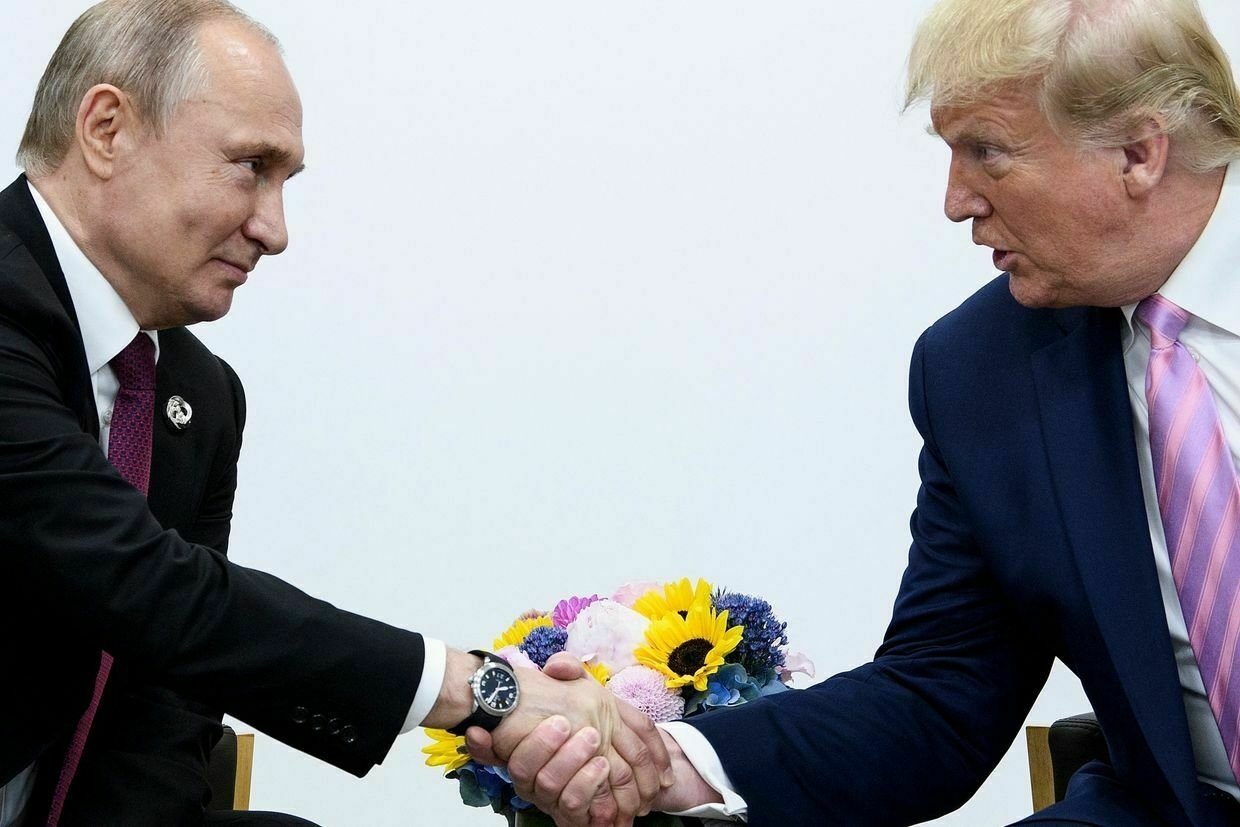
-
Higher-level ceasefire talks with Russia premature, Rubio says, as US reviews Moscow's stance
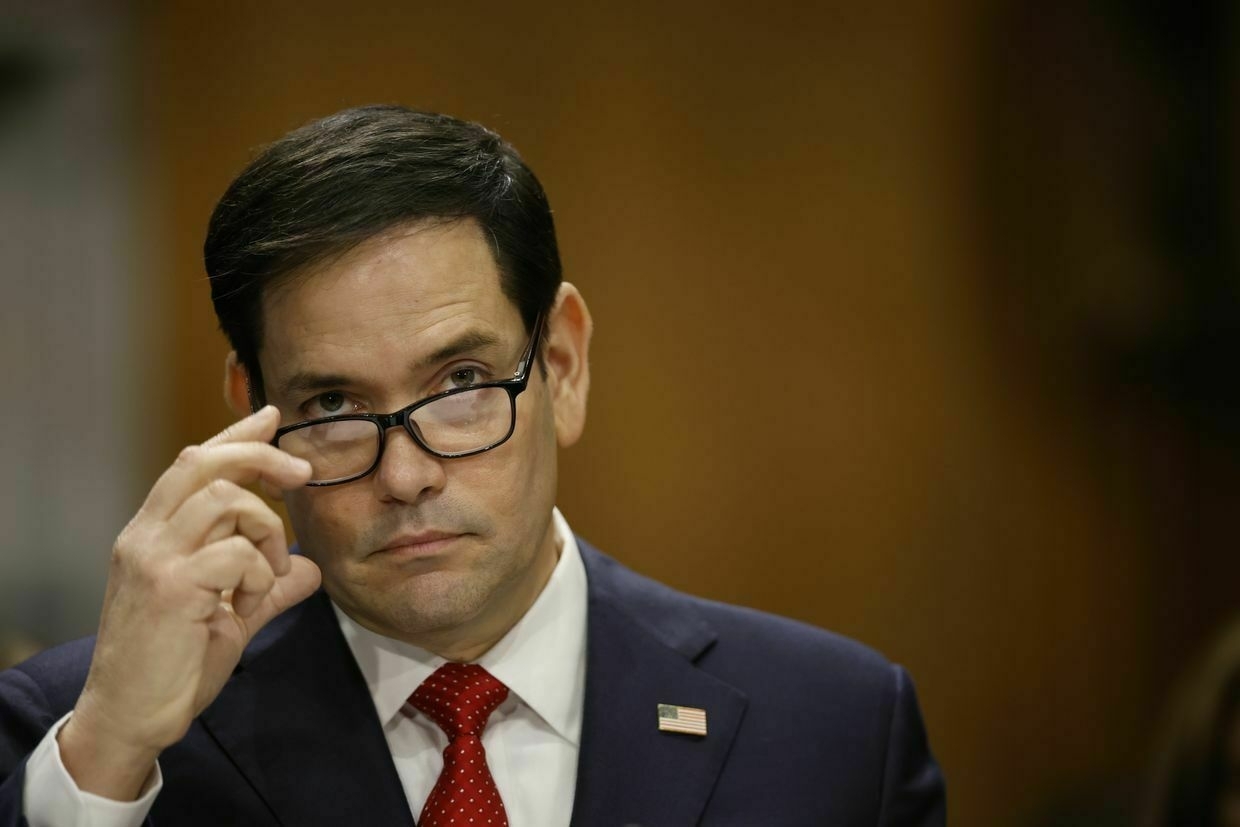
Secretary of State Marco Rubio said on March 27 that it was premature to expect higher-level talks with Russia as the U.S. reviews Moscow’s response to efforts to end the war in Ukraine, AFP reported.
Asked if the time was right after U.S. negotiations with Russia and Ukraine in Saudi Arabia, Rubio said: “I think you have to make more progress on a technical level."
The U.S., Russia, and Ukraine agreed to “eliminate the use of force” and prevent commercial vessels from being used for military purposes in the Black Sea following two-day talks in Saudi Arabia.
“There’s a lot of work to be done with both sides, particularly with the Russian side, which we haven’t talked to for years,” Rubio said, adding the White House would hold consultations on the outcome of the meetings.
U.S. President Donald Trump has repeatedly expressed his intention to meet with Russian President Vladimir Putin since taking office. On March 18, the two leaders held a 1.5-hour phone call.
Rubio’s comments follow Trump’s March 25 statement that Russia may be “dragging their feet” on ending its war against Ukraine.
Trump has reversed Washington’s stance toward Moscow by engaging in talks with Russian officials, a move the Biden administration has avoided since the start of Russia’s full-scale invasion of Ukraine.
The U.S. has been mediating negotiations between Ukraine and Russia to end the war. Ukraine has already agreed to a U.S.-proposed 30-day ceasefire, announcing on March 11 that it is ready to implement the measure if Russia reciprocates.
Moscow has so far refused.
As Ukraine’s fate hangs in the balance, ‘Soviet’ command culture damages war effortLast February, a Ukrainian company commander going by his callsign Veter was ordered to send his people to reinforce another unit’s position over the next few hours. He was told that four National Guardsmen were holding the position on the other side of the village they were defending inThe Kyiv IndependentNatalia Yermak
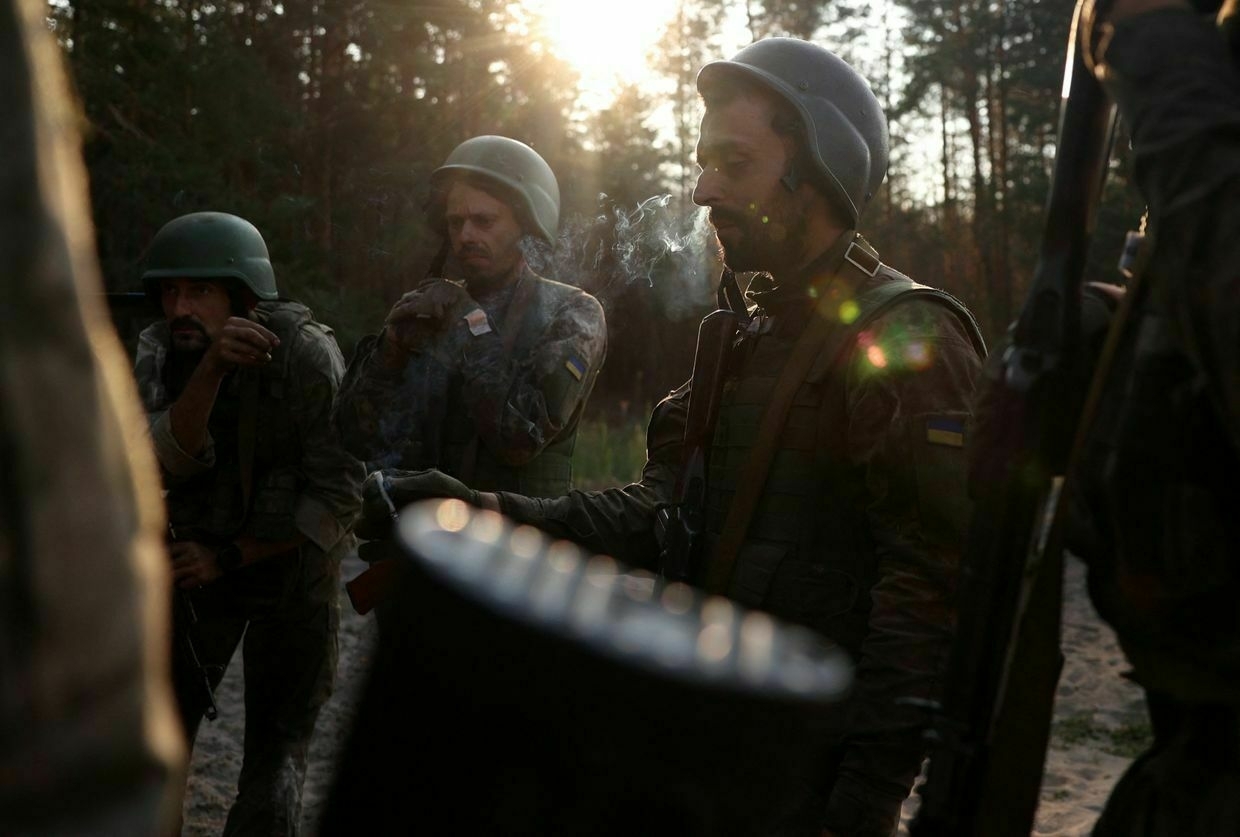
-
US funding for abducted Ukrainian children program restored temporarily, White House still terminating initiative
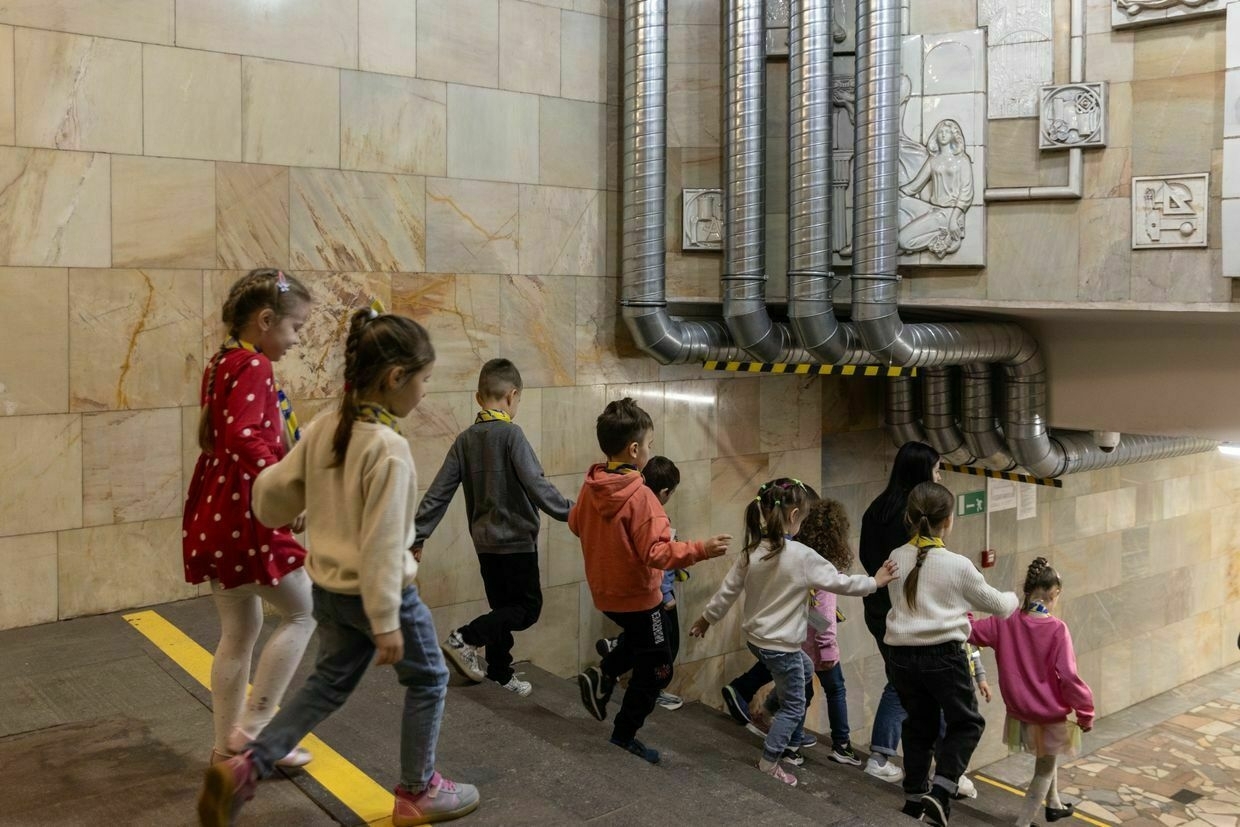
The U.S. State Department announced on March 27 that it would provide short-term funding to an initiative documenting Ukrainian children abducted by Russia after White House terminated the program, Reuters reported.
The program, run by Yale University’s Humanitarian Research Lab under the State Department’s Conflict Observatory, used biometric data and satellite imagery to track Russia’s abduction of Ukrainian children.
At least 19,500 Ukrainian children have been confirmed as abducted by Russia since the start of its full-scale invasion, with only about 1,200 returned, according to Ukraine’s Children of War database.
Yale’s research — funded by the U.S. government — has helped track thousands of these cases.
Researchers reportedly lost access to the database last month after officials terminated the contract, cutting off critical evidence for war crimes investigations.
A State Department spokesperson said the short-term funding would allow program implementers to ensure that essential data on abducted children is properly transferred to the relevant authorities.
“It is part of the standard close-out procedures for terminated programs,” the spokesperson said.
The comments come amid U.S. President Donald Trump administration’s efforts to cut various agencies and initiatives, including foreign aid, calling it “waste, fraud, and abuse.”
The multiple cuts to foreign funding have begun to affect international efforts to hold Russia accountable, including for war crimes committed in Ukraine.
The International Criminal Court (ICC) issued an arrest warrant for Russian Presidential Commissioner for Children’s Rights Maria Lvova-Belova and Russian President Vladimir Putin on March 17, 2023, for the deportation of Ukrainian children.
As part of ongoing U.S.-Russia negotiations, U.S. National Security Adviser Mike Walz said that returning kidnapped Ukrainian children is among several “confidence-building measures” being discussed.
Ukrainian officials have named their return as a key condition for any future peace agreement with Russia.
-
Spoiler : #Signal isn’t “deffective”, Signal isn’t vulnerable. The Trump administration is, their phone are, their ignorance and stupidity will make them fall, push them out of the staircase, out of the window, push them on the cliff they already are, digg the hole of their grave.
-
Introducing temporary government in Ukraine should be discussed, Putin claims
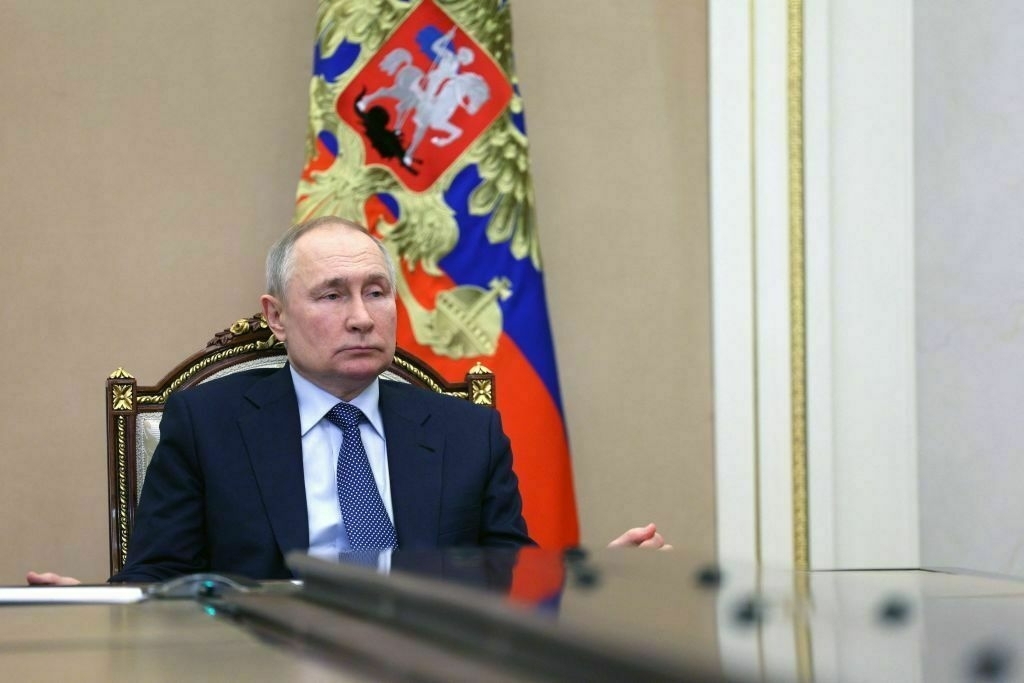
A temporary government should be introduced in Ukraine to hold new elections, Russian President Vladimir Putin said in an address on March 27.
Russian officials have repeatedly discredited the legitimacy of President Volodymyr Zelensky and have questioned Ukraine’s sovereignty. Meanwhile, Russia is considered a consolidated authoritarian regime with manipulated elections by Freedom House.
“It is still not clear with whom to sign certain documents, and it is still not clear what power they have, because tomorrow other leaders will come… through elections,” Putin claimed.
A temporary government under the supervision of the United Nations (U.N.), and several nations should be introduced in Ukraine to hold elections, Putin said.
“This is only one of the options. I am not saying that there are no others… This is one of the options, and such practice exists in the work of the U.N.,” Putin said.
Elections could be held in Ukraine under outside supervision “to bring to power a capable government that enjoys the people’s trust,” Putin claimed.
Putin claimed Ukraine’s current authorities are illegal since elections were not held when Zelensky’s term expired.
“If he himself (Zelensky) is illegitimate, then all the others are too,” Putin claimed.
Ukraine’s constitution prohibits elections under martial law, which has been in place since the onset of Russia’s full-scale war against Ukraine in February 2022.
Moscow has shown signs it is unwilling to move forward on a peace deal with Ukraine. Russian authorities have listed maximalist demands in ceasefire negotiations with Ukraine and the U.S.
Russia targeted energy infrastructure in Kherson on March 27, despite President Zelensky saying a temporary ceasefire on energy infrastructure has been in place since March 25, and Russia claiming its side of the deal has been in place since March 18.
The U.S. has been in talks with Ukraine and Russia to negotiate an end to Russia’s war against Ukraine.
Ukraine has already agreed to a U.S.-proposed full 30-day ceasefire, saying on March 11 that Kyiv is ready if Russia also agrees to the terms. So far, Moscow has refused.
‘Trump looks at Putin as a friend’ — Expert negotiator dissects Ukraine-Russia ceasefire talksU.S. President Donald Trump’s stated goal of bringing a swift end to Russia’s full-scale invasion of Ukraine is looking evermore distant, with only two tentative partial ceasefires to show after several rounds of talks. Ukraine has already agreed to a U.S.-proposed full 30-day ceasefire, saying on…The Kyiv IndependentChris York
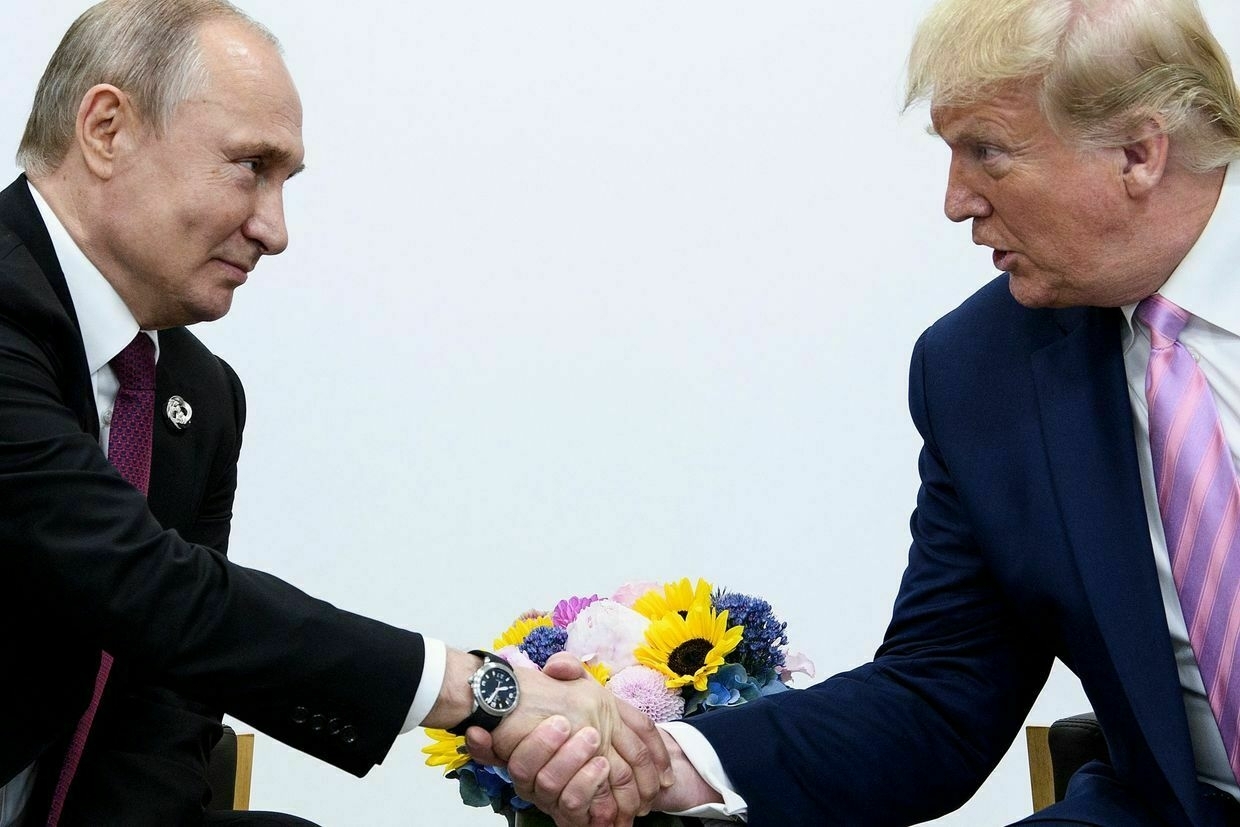
-
Trump serious about his Greenland ambitions, Putin says
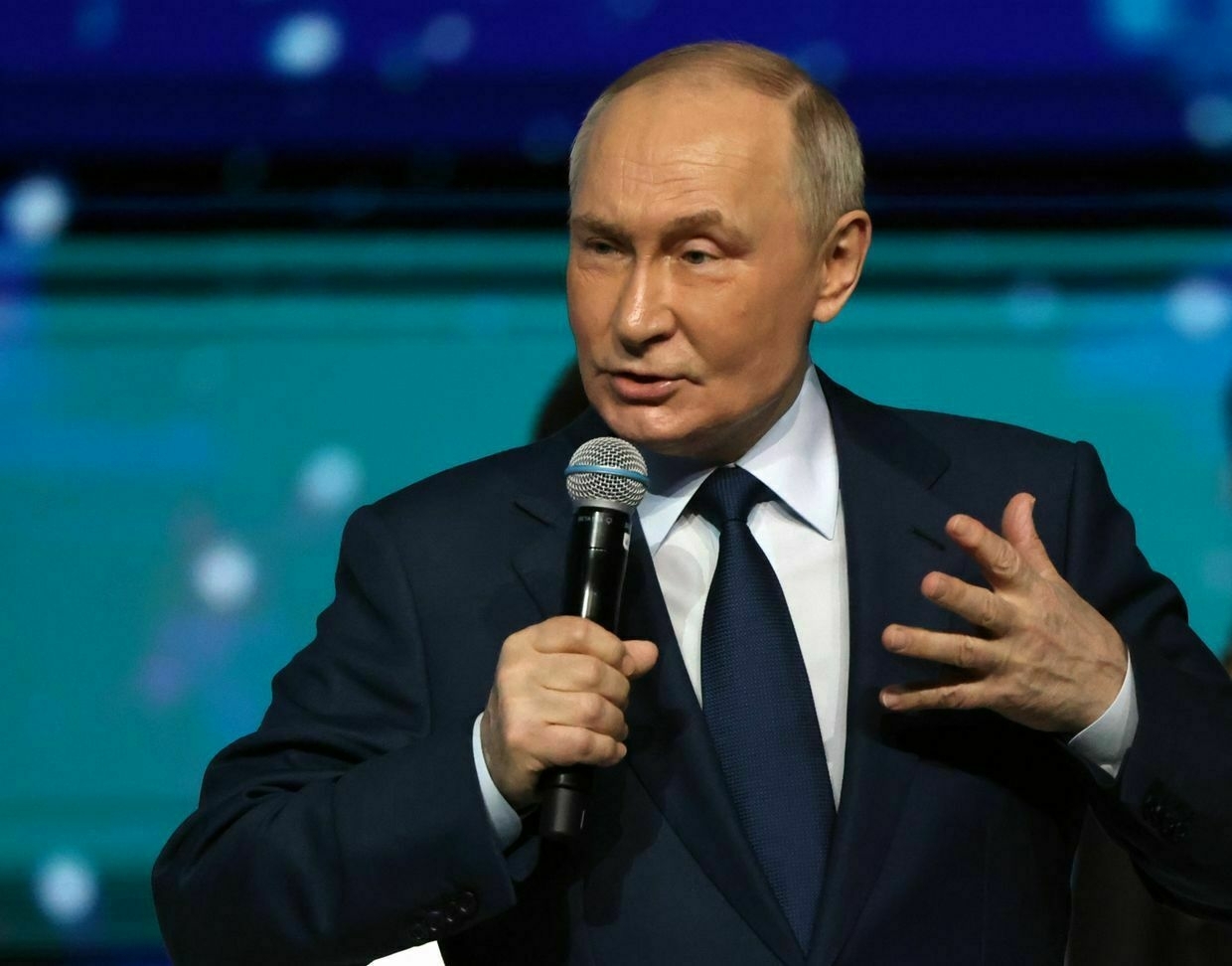
The U.S. is serious about its plans to acquire Greenland, Russian President Vladimir Putin said on March 27, claiming that the idea has “historical roots."
In January, U.S. President Donald Trump refused to rule out the possibility of using military force to seize control of Greenland, which he said Washington needs for “economic security.” He said on March 26 that the U.S. will “go as far as we have to go” in the matter of the Arctic island, which was seen by Denmark’s Defense Ministry as an escalation of rhetoric.
Greenland is an autonomous territory of Denmark, a NATO member state and traditional U.S. ally. The Arctic island houses both Danish and U.S. military bases and has vast reserves of mineral wealth.
“This may only at first glance surprise some. It is a big mistake to believe that this is some extravagant talks by the new U.S. administration,” Putin said during the International Arctic Forum in Russia’s Murmansk.
According to Putin, the U.S. considered the possibility of annexing Greenland back in the 19th century, but the U.S. Congress didn’t back the idea.
Previously, Moscow said it is monitoring developments regarding Trump and Greenland due to Moscow’s own “strategic interests” in the Arctic region.
Speaking at the forum, Putin said that Russia is in favor of equal cooperation in the Arctic, despite the fact that international cooperation in the region is “going through hard times."
“We are ready to work together not only with the Arctic states, but also with all those who, like us, share responsibility for a stable, sustainable future for the planet, and are able to make balanced decisions for decades to come,” he added.
Trump’s expansionist ambitions and disregard for state sovereignty carry alarming implications, particularly for Ukraine as it fights to restore its territorial integrity amid Russia’s ongoing invasion.
Security analyst Alexander Khara, director of the Center for Defense Strategies in Kyiv, told the Associated Press (AP) earlier in January that Trump’s posturing on Greenland bears echoes of Putin’s comments about Crimea.
Russia illegally annexed and occupied Crimea, an autonomous Ukrainian republic, in 2014. The annexation was widely condemned by most U.N. member nations, including the U.S. Washington imposed sanctions on Russian officials involved in the occupation.
‘With or without the US’ — France, UK harden line over Ukraine at ‘Coalition of the Willing’ summitSeveral European countries agreed to send troops to Ukraine as part of a “reassurance force” in case of the ceasefire with Russia, French President Emmanuel Macron announced on March 27 at a summit of European leaders in Paris, which was also attended by Ukrainian president Volodymyr Zelensky.The Kyiv IndependentKateryna Denisova
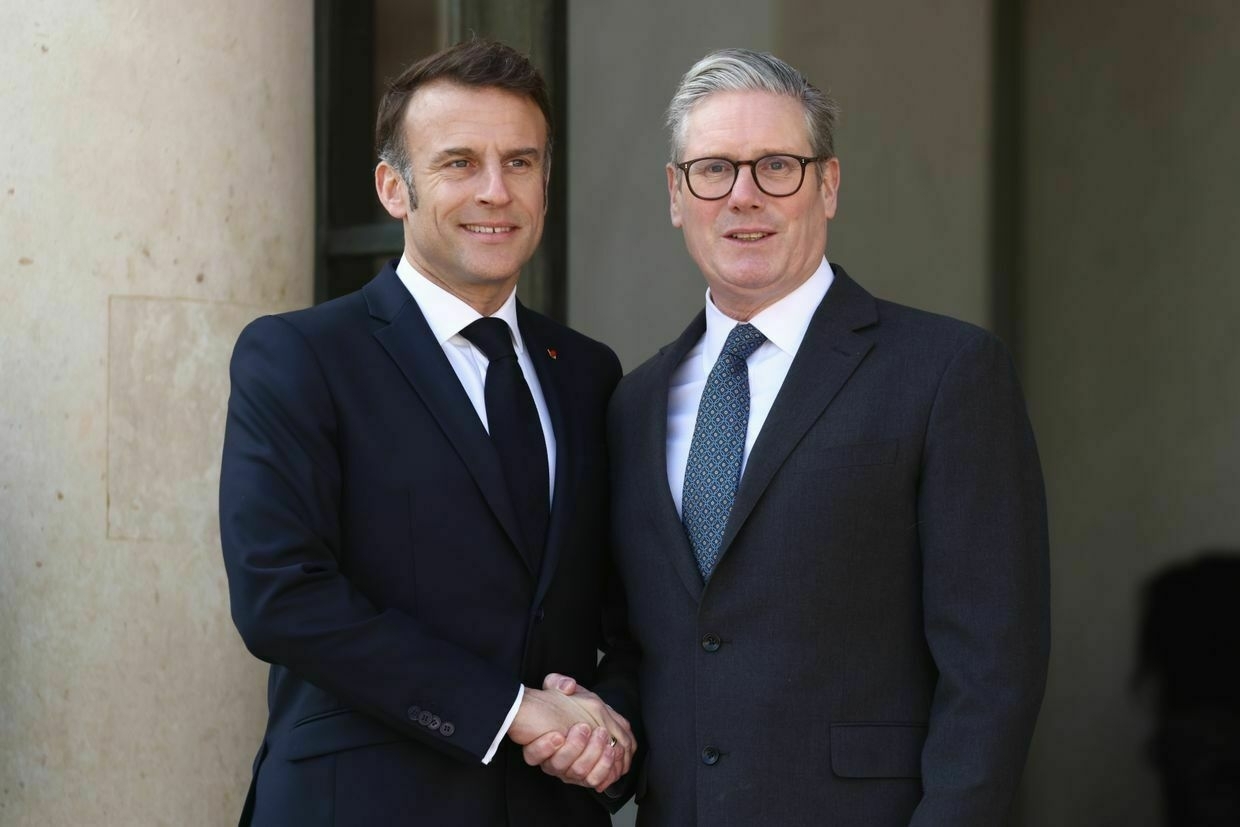
-
Opinion: Why exporting defense tech could be the answer to Ukraine's security
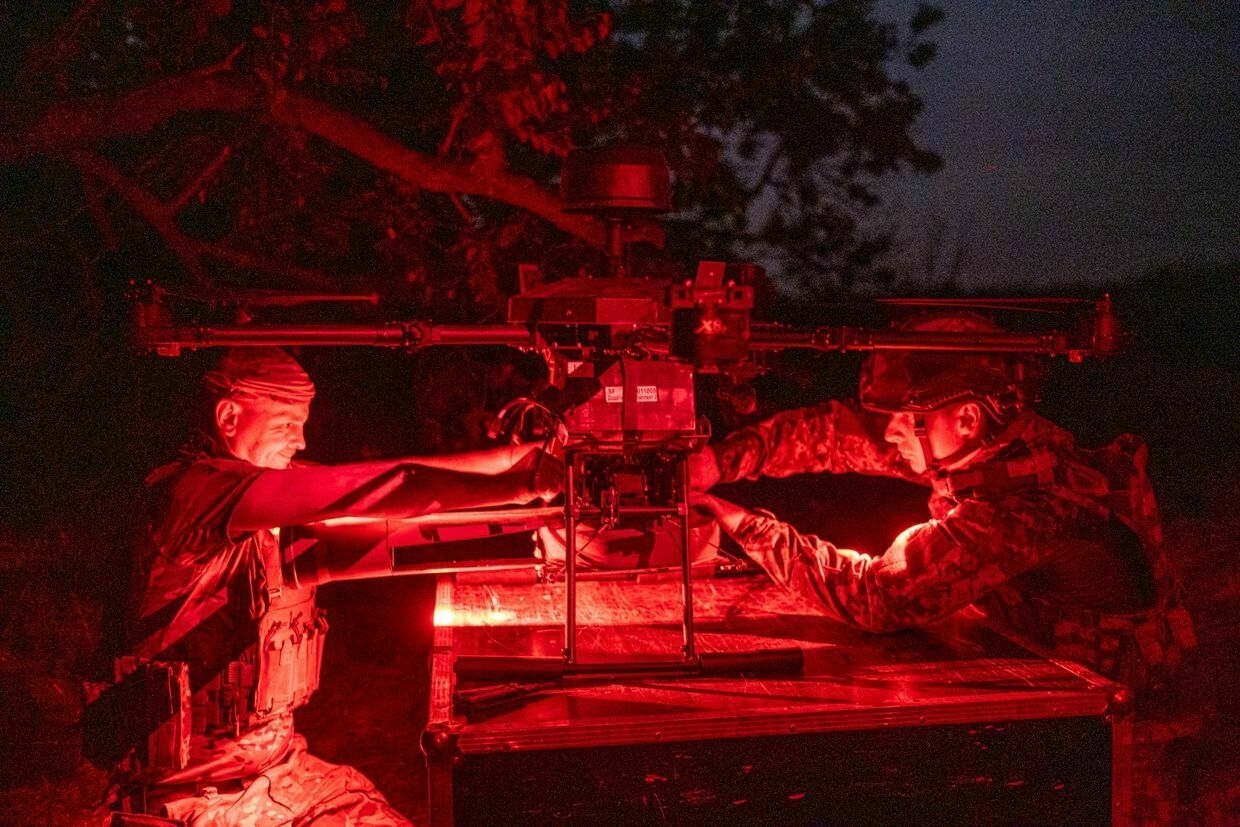
It took the world 11 years of Russia’s war with Ukraine, including over three years of the full-scale invasion, to finally say it out loud: “We are not doing enough."
As NATO Secretary General Mark Rutte recently told U.S. President Donald Trump at the White House, “We need to produce more weaponry. We (the U.S. and EU) are lagging behind when you compare it to the Russians and the Chinese."
The era of peace inherited by today’s global leaders is over. A new era of rearmament has already begun. And with it, a new global security architecture is being formed. But the question is: What awill it look like — and what will Ukraine’s place be in it?
Today, many are still asking whether Ukraine can survive without U.S. support. The question that we should be asking, however, is how Ukraine can enhance its cooperation with the U.S. defense industry to make this partnership work.
This includes strengthening the role of Ukraine’s private defense sector.
Four years into the full-scale war, global instability is forcing Ukraine to reevaluate its defense strategy.
Ukraine’s private defense industry has already shown an impressive ability to scale up and deliver new tech solutions. However, simply increasing production is not enough; full-scale procurement is needed. That means improving domestic defense procurement and granting export licenses to manufacturers.
China is more likely than the EU to replace Starlink on the Ukrainian battlefieldFears of a Starlink shut-off at the front line have racked Ukraine. European satellite internet firms took the opportunity to step forward as replacements — but even collectively, they are unlikely to fill the void in coverage that Starlink’s shut off would leave. Today, Starlink satellite internet…The Kyiv IndependentKollen Post
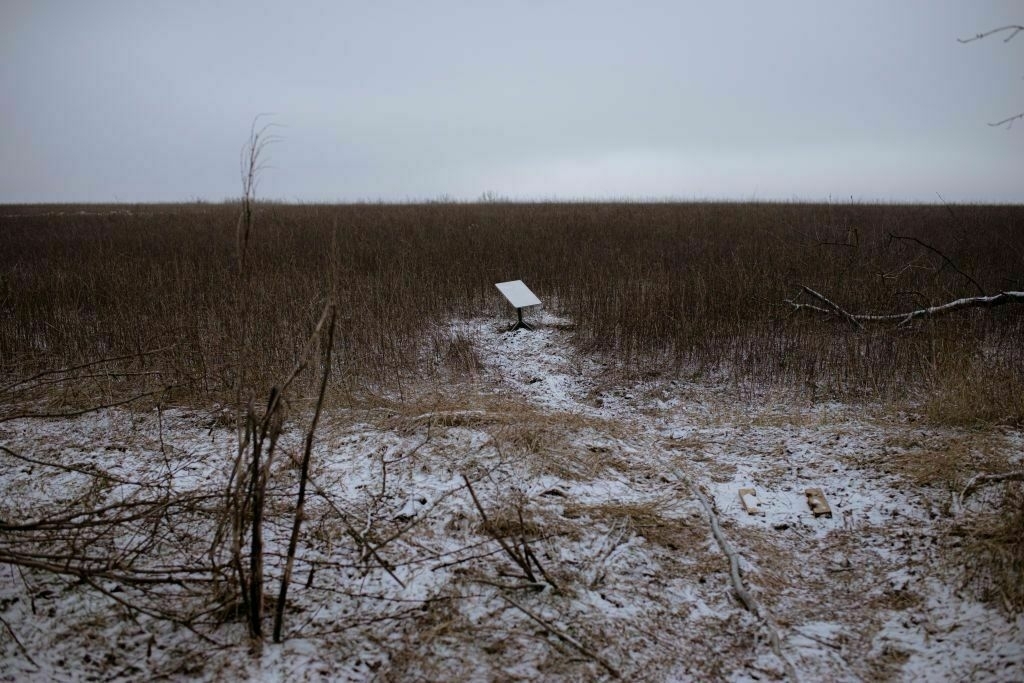
These measures will reduce production costs for Ukraine’s military and bring critical revenues to Ukraine’s state budget. Controlled exports of Ukrainian defense technology and equipment to allied countries is a must.
The next step should be building strategic partnerships with the U.S. defense companies on the principle of mutual interdependence.
American startups are investing billions into the drones' production, which the Pentagon considers vital for future warfare. But, their products are expensive and often underperform. While the U.S. manufactures up to 100,000 drones annually, Ukraine’s private sector has already scaled production to over 3 million annually.
“All of Europe is the target of Russian aggression. We are all front-line member states.”
Ukrainian companies are eager to share their expertise, and the Pentagon has shown interest. Now is the time to build on this demand and supply — based on exports, joint ventures, b2b partnerships, and co-development of military technology.
Ukrainian manufacturers are also making progress in component localization. For example, Vyriy Drone recently unveiled its first batch of 1,000 fully Ukraine-made FPV drones — with no Chinese parts. This alone stands as a case for U.S. procurement of Ukrainian drones.
We are now at a historic crossroads, where Ukraine has the opportunity to establish a relationship with the White House not as an aid recipient but as a strategic security partner with valuable contributions to offer.
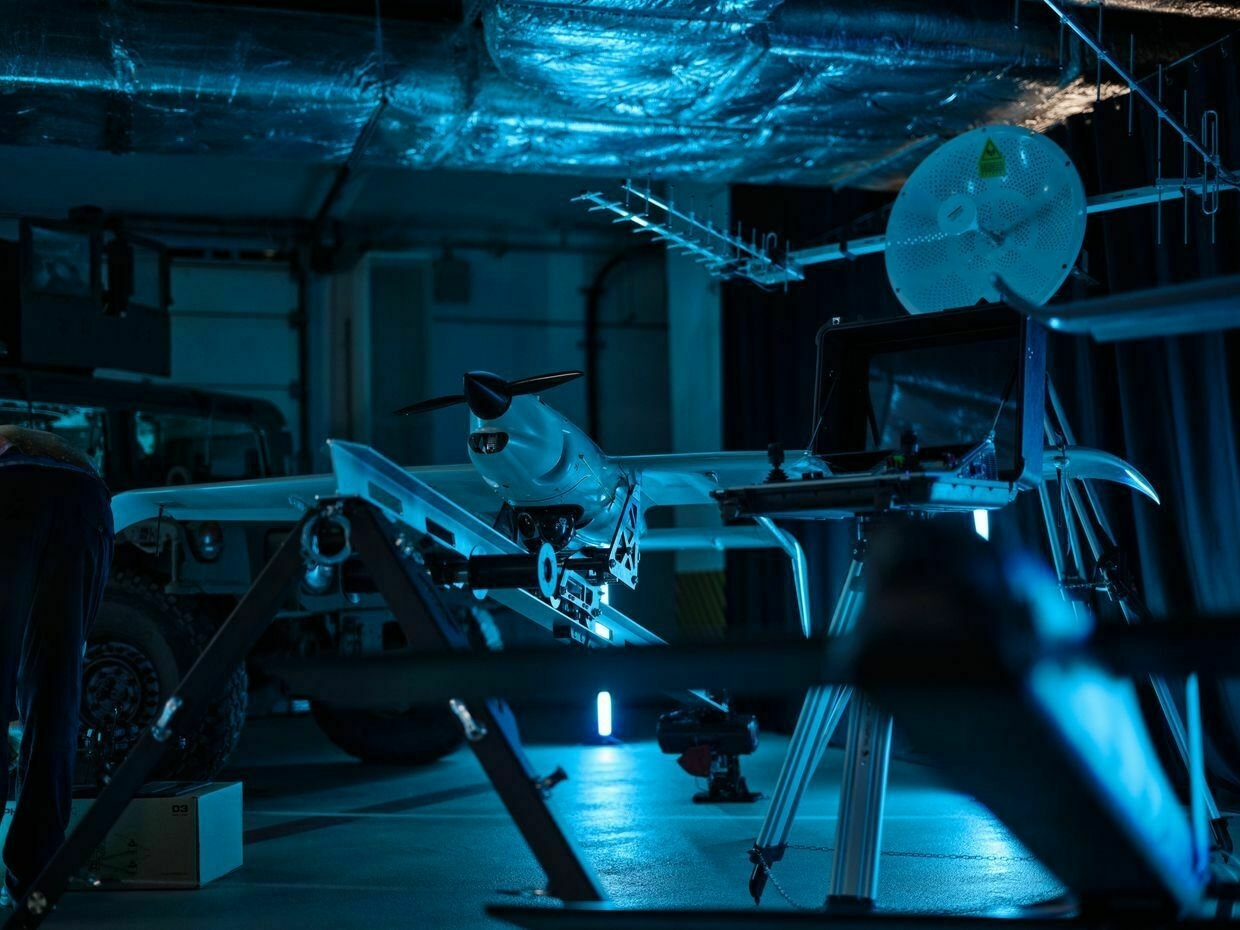
Various types of unmanned systems in service with the Ukrainian army are displayed at an event in Kyiv, Ukraine, on June 11, 2024. (Kostiantyn Liberov / Libkos / Getty Images) Meanwhile, European Commissioner for Defense and Space, Andrius Kubilius, opened a recent debate on the EU's new defense strategy with a warning: "This is the greatest security crisis of our lifetimes. And we must now take the great decisions. All of Europe is the target of Russian aggression. We are all front-line member states."
Without a new European security system, there will be no victory over Russia and no lasting peace. The EU finally understands this. In March, it introduced the ReArm Europe plan — a staggering 800 billion euro vision for ramping up European defense spending and production over the next few years.
The EU Commission presented the Joint White Paper for European Defense Readiness 2030. The document envisions the creation of a Single Defense Market and designates an important role for Ukraine in it. The White Paper emphasizes a long-overdue shift: Ukraine shall be integrated into the European defense industry.
The U.K. is rearming, too. Prime Minister Keir Starmer has announced the biggest increase in defense spending since the Cold War, aiming for 2.6% of GDP expenditure by 2027.
Europe is now taking the path Ukraine has been walking since 2014. It should leverage Ukraine's experience, innovation, and technology to the benefit of our shared defense and security.
The European Commission has outlined seven key investment priorities: drones, ammunition, and missiles. These are all areas where Ukraine has unique expertise gained due to the ongoing war.
Our partners must go beyond providing military assistance to Ukraine. They must expand production with Ukraine's manufacturers, co-develop new technologies, and field-test them with Ukraine's defense forces.
Changing up is hard. But Ukraine's painful experience can help change Europe and become a pillar of the continent's security.
Integrating Ukraine into the global defense ecosystem isn't a bonus. It's a necessity — one that could shape the outcome of this war.
The free world can no longer rely on weapons made by dictatorships. Ukraine is capable of not only holding the line but also export security globally.
How the next generation of Ukrainian drone pilots are being trained at UAV schoolsUkraine’s drone wizardry has drawn the attention of militaries around the world. In addition to an ever-growing drone industry, the rise of unmanned aerial vehicles (UAVs) has necessitated new education. Since 2022, a crop of drone schools has popped up around Ukraine to train drone pilots to fight…The Kyiv IndependentKollen Post
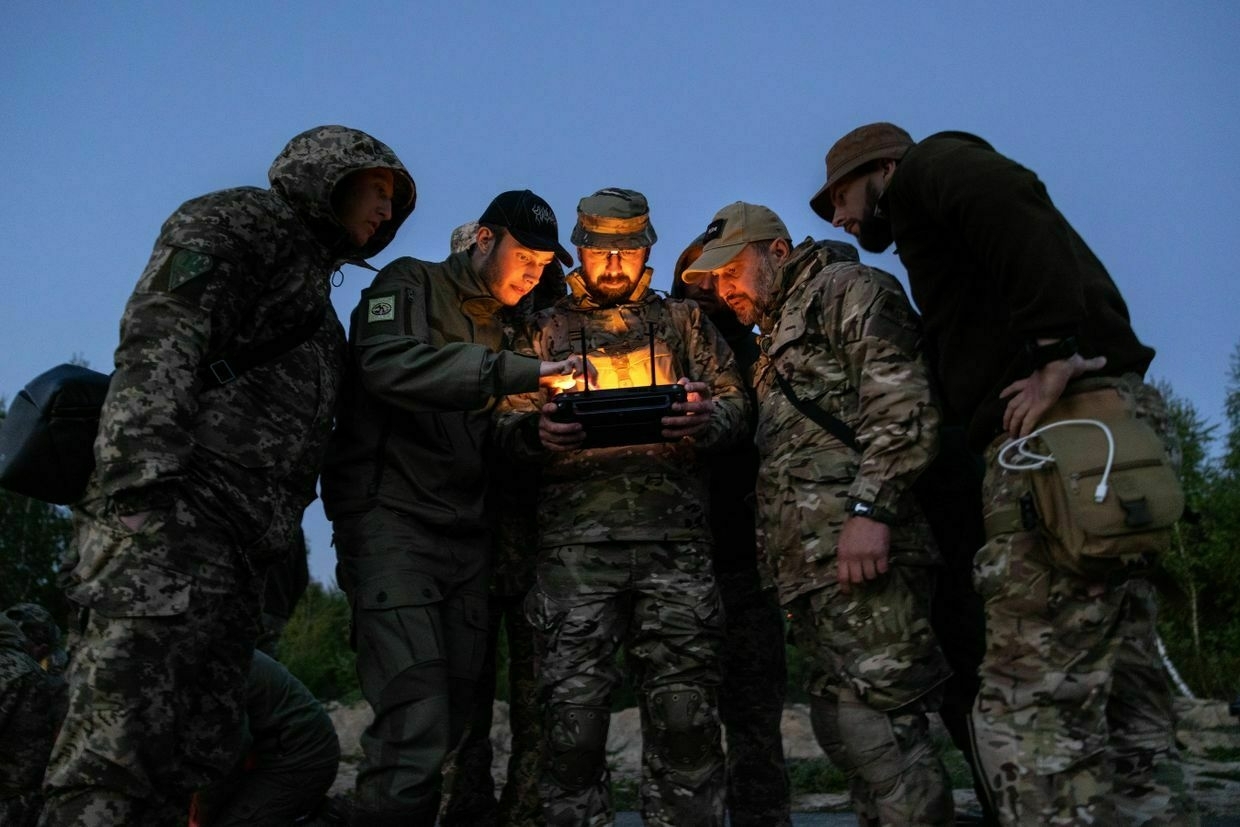
-
'Trump looks at Putin as a friend' — Expert negotiator dissects Ukraine-Russia ceasefire talks
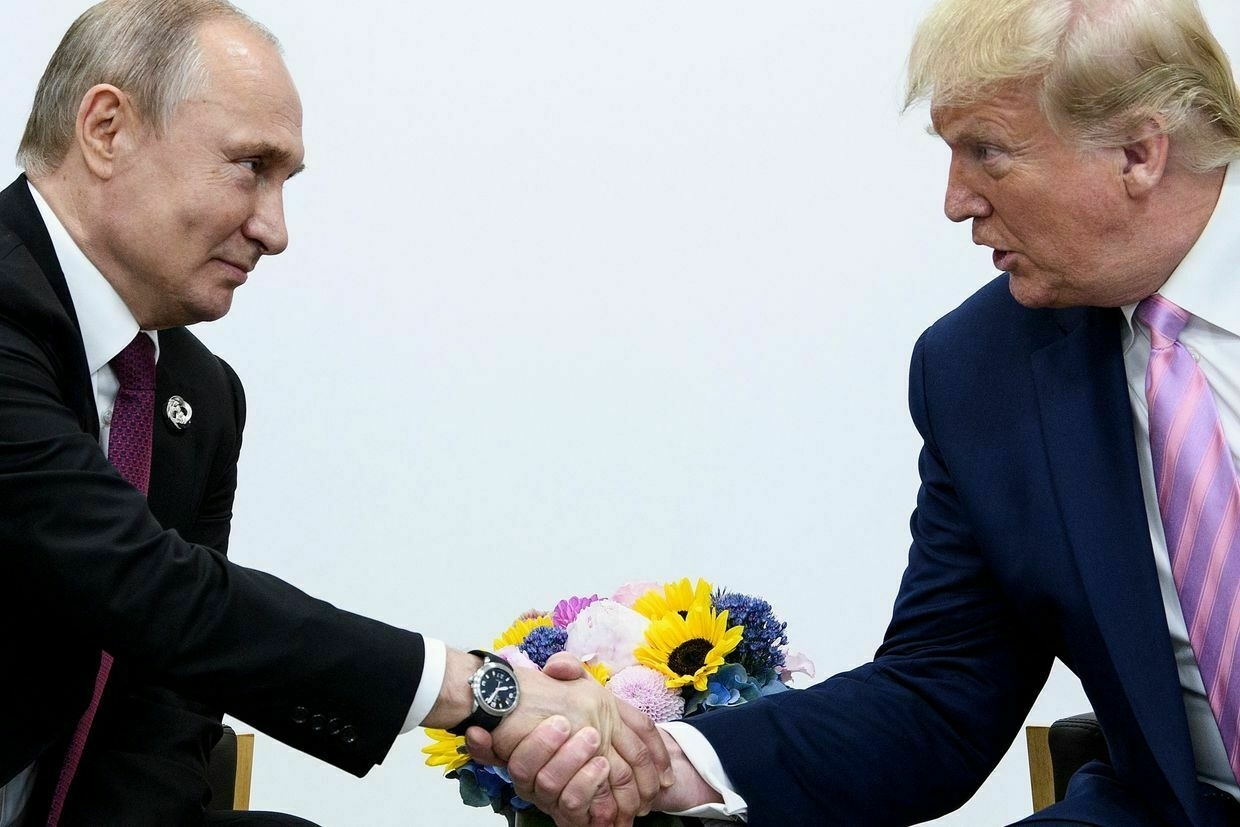
U.S. President Donald Trump’s stated goal of bringing a swift end to Russia’s full-scale invasion of Ukraine is looking evermore distant, with only two tentative partial ceasefires to show after several rounds of talks.
Ukraine has already agreed to a U.S.-proposed full 30-day ceasefire, saying on March 11 that Kyiv is ready to take such a step if Russia adheres to the terms as well.
So far, Russia has refused, instead agreeing only to an apparent pause in strikes on energy infrastructure and to “eliminate the use of force” in the Black Sea.
Yet despite the willingness shown by Ukraine, and the — in Trump’s own words — “dragging on feet” by the Kremlin, the White House has only applied real pressure on Kyiv, using military aid and intelligence sharing as sticks to force it to comply.
While Trump has threatened more sanctions against Russia, he has yet to follow through. Instead, on March 26, he said the U.S. is “looking at” the possibility of lifting some sanctions on Russia to secure the Black Sea ceasefire.
The Kyiv Independent sat down with Marty Latz, an expert negotiator who has spent decades examining the techniques Trump has used to make deals, and the author of ‘The Real Trump Deal: An Eye-Opening Look at How He Really Negotiates.'
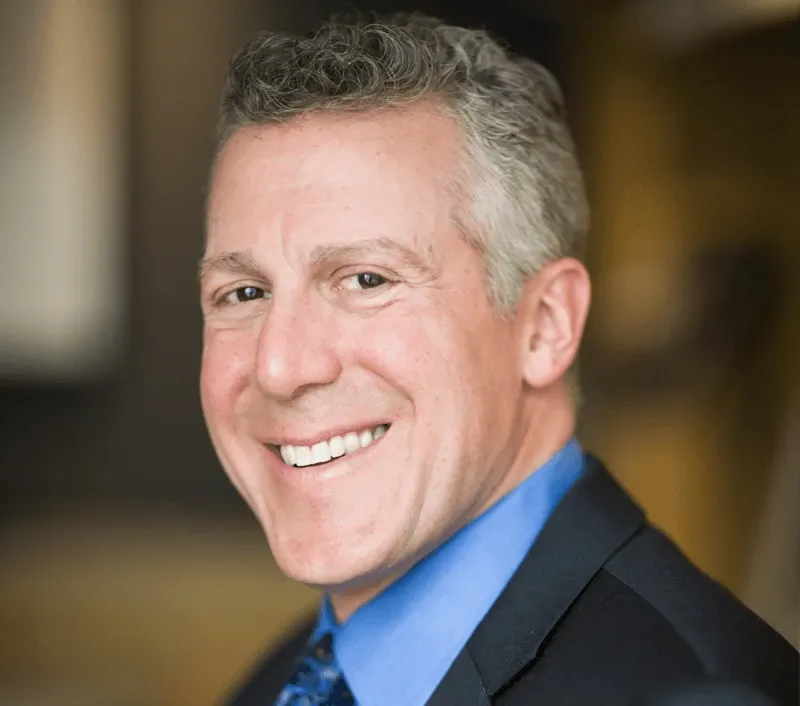
Marty Latz, an expert negotiator, the author of ‘The Real Trump Deal: An Eye-Opening Look at How He Really Negotiates..’ (Marty Latz) This interview has been edited for clarity.
The Kyiv Independent: What are the golden rules of negotiating?
Marty Latz: There are five golden rules to negotiating. The first — information is power, so get it.
You need to set your goals, you need to figure out what you want to accomplish, and you need to step into the other side’s shoes. What do they want to accomplish? What are their interests?
And the idea in a negotiation, of course, is to find the sweet spot and the mutual interests where those goals overlap.
The second golden rule of negotiation — maximize your leverage.
There are two elements of leverage. First is how much do you need a deal relative to how much the other side needs a deal? The more desperate you are, the weaker your leverage. The more desperate they are, the stronger your leverage.
And the second element is — what are you going to do if you don’t do a deal with the other side? What is your plan B?
Plan A is any kind of a deal, or maybe many different variations of a deal, A1, A2, A3. Plan B is — what are you going to do if you don’t do a deal?
The third golden rule of negotiation is — employ fair objective criteria.
How do you evaluate in any negotiation what’s fair or reasonable or unfair or unreasonable? What kind of norms or standards or benchmarks might exist?
Is there some precedent for this particular deal? And one element in the war between Russia and Ukraine right now is there is a lot of precedent. The precedent is that Russia has violated multiple ceasefires.
So that makes Ukraine very reluctant to do another deal without some additional leverage or security guarantees to ensure that Russia is going to follow through on its commitments.
The fourth golden rule — design and offer concession strategy. When do you make your moves?
How far do you move each time? Should you make a first move or not? These are very strategic and tactical decisions that need to be made in almost every negotiation.
And then the fifth golden rule — control the agenda. When do you meet? How do you meet?
Do you meet on a neutral site? Who actually is going to be sitting at the table?
The Kyiv Independent: So far the peace talks have gone more in Russia’s favor than Ukraine’s — do you think this will continue?
Marty Latz: I think the path has been largely set at least for the next couple weeks, if not for the next couple of months, and it goes back to the parties’ goals and their leverage.
President (Vladimir) Putin and Russia’s goals have always been to increase their sphere of influence, to be viewed as a world superpower, and to, in effect, reintegrate Ukraine into Russia as a world power. So that is his goal.
He’s been very clear about that goal for years, literally. And his alternative to doing a deal right now — (continuing) armed conflict — is actually helping him accomplish that goal.
So as long as he is enjoying what he perceives to be military success on the ground, we’re not going to have any significant progress toward a cessation of hostilities and peace — his plan B is better than his plan A.
We asked Ukrainian soldiers if they’d fight Russia ‘with their bare hands’ rather than accept a bad ceasefireCIA Director John Ratcliffe on March 25 gave a rousing assessment of Kyiv’s desire to achieve an acceptable and lasting peace in Ukraine, insisting its people and armed forces would fight Russia with “their bare hands” if they had to. “I want to say that with regard to the UkrainianThe Kyiv IndependentChris York
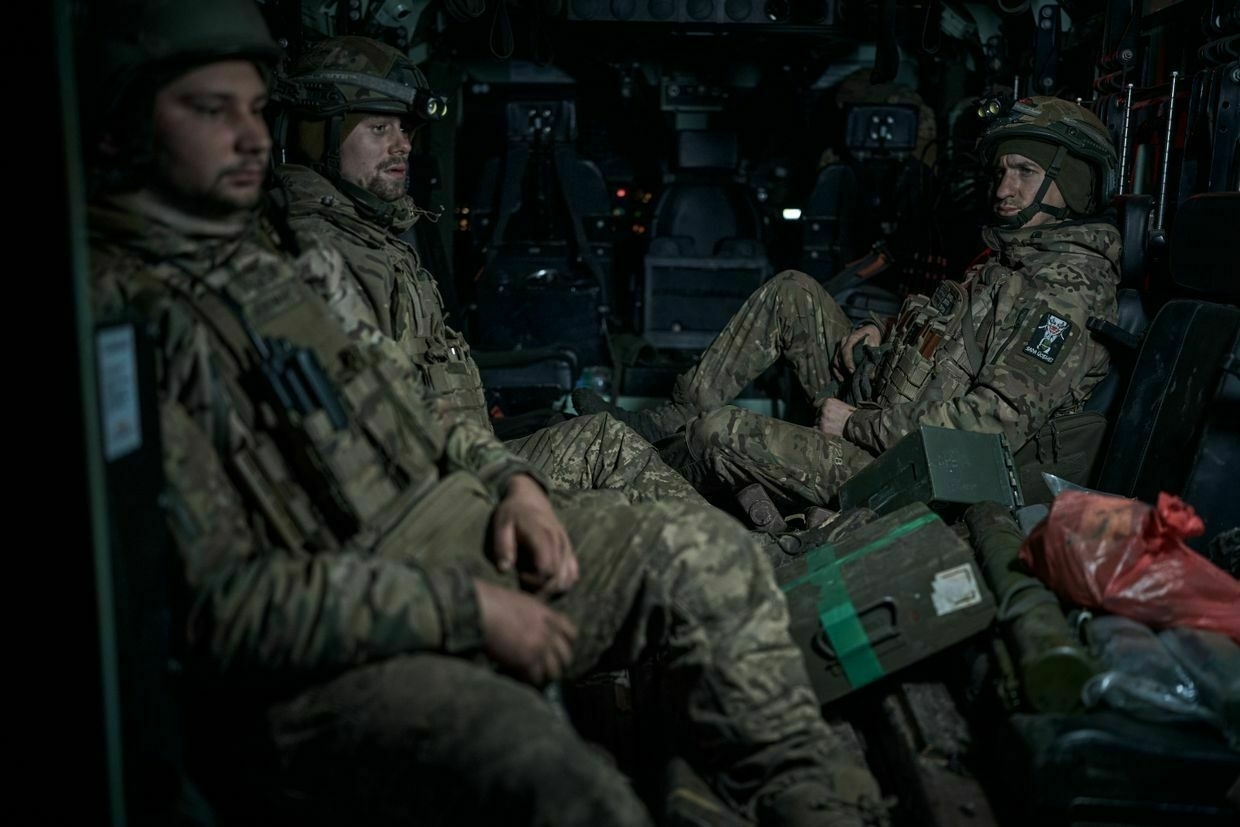
The Kyiv Independent: Is there any way that the White House or even Ukraine could change that calculus?
Marty Latz: That calculus absolutely can be changed, but it would require a substantial increase in military and economic support from the United States to Ukraine, because you’ve got to change the facts on the ground.
You’ve got to stop Russia, and you’ve got to get Russia to understand that pursuing a military solution is worse for Russia than any type of peace deal.
But so far, we haven’t seen the political will in the United States for that from the Republican Party and from the president.
And so unless and until President (Donald) Trump utilizes some of his leverage with Russia, economic leverage on the sanctions front, and does that in a very aggressive way, I don’t see there being any long term cessation of hostilities or peace deal.
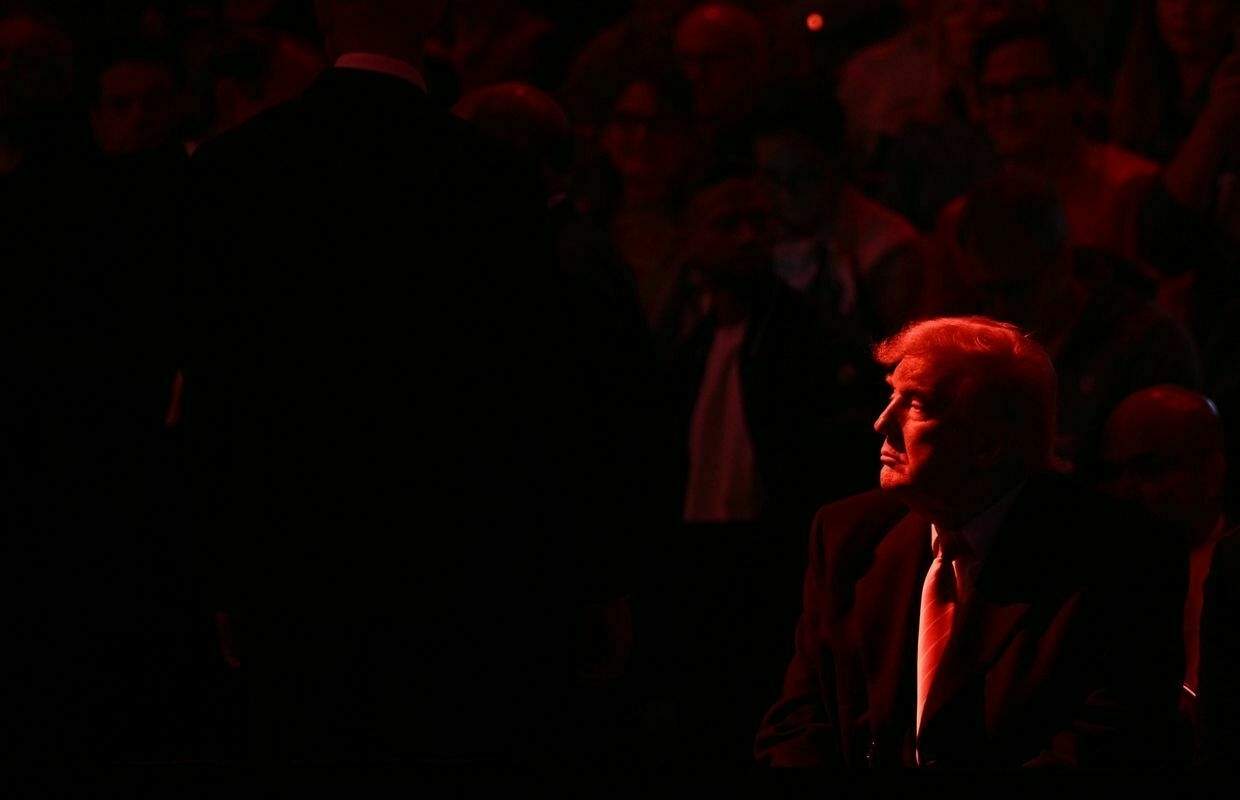
U.S. President Donald Trump attends the men’s NCAA wrestling competition at the Wells Fargo Center in Philadelphia, Pennsylvania, U.S. on March 22, 2025. (Brendan Smialowski / AFP via Getty Images) The Kyiv Independent: Is Trump, who obviously has grown up and worked in more of a business environment for most of his life, trying to impose the etiquette of business negotiations into the diplomatic world?
Marty Latz: I think that that’s a very insightful point. Keep in mind that Donald Trump has been negotiating largely in the same way with similar tactics, similar strategies for 50-plus years. Despite the fact that he was president for four years, he still uses the same tactics and strategies that he used in business.
In some contexts, they worked in business. In some contexts, they miserably failed. It’s not so simple as to say he’s just trying to use business strategies in a political environment, and he is, but that he has failed to learn, in effect, how to negotiate differently in an environment where there are multiple parties, multiple interests, and very complex diplomatic engagement.
His real sweet spot in negotiations, to the extent that it worked in the past, were one-shot deals where there were one or two issues on the table, and he didn’t have a future relationship. It’s a whole different environment in which he’s negotiating now.
" I don’t really believe that President Trump wants anything other than a deal."
He does understand leverage, which has an outsized impact in both negotiations, but he didn't really effectively negotiate for four years as president in his first term.
I would suggest that he has started out his second term, again, using the same tactics. He's using the same tactics that miserably failed in his first term, and now they're having the same impact at the beginning of his second term.
The Kyiv Independent: What is Trump actually negotiating for?
Marty Latz: From President Trump's perspective, as it relates to the Ukraine-Russia war situation, he just wants a deal. I don't really believe that President Trump wants anything other than a deal.
I don't think he cares so much about the details of the deal as long as he will get the international credit for bringing the parties together and stopping the hostilities.
So that's one thing to really understand about President Trump and what he's trying to accomplish. It's not about stopping President Putin in terms of his territorial ambitions and his aggression, it's just about getting a deal.
The Kyiv Independent: Why is Trump only using leverage over Ukraine and not Russia?
Marty Latz: Trump looks at the world in black and white. There's not a lot of gray in between. And he looks at President Putin as a friend.
Why does he look at President Putin and Russia as a friend? I personally think it goes back to 2015, 2016, when an independent, bipartisan investigation by the U.S. Congress found that Russia actually helped Trump get elected president.
And so Trump views Putin as, in effect, as someone who is aligned with his personal interests — not the U.S.'s maybe strategic interests — but President Trump's personal interests.
And that's why, even though Trump does have and the U.S. has significant leverage over Russia with regard to economic leverage, with regard to the severity and scope of the sanctions, he, at least at this point, does not appear willing to utilize that leverage to try to get Putin to make concessions.
As Ukraine, Russia agree to ceasefire at sea, Moscow’s battered Black Sea Fleet is set to get a reprieveThe White House on March 25 announced that Ukraine and Russia had agreed to “eliminate the use of force” in the Black Sea, returning the spotlight to a theater of battle that has been relatively quiet for more than a year. Throughout 2022 and 2023, Ukrainian strikes against Russian ships,The Kyiv IndependentMartin Fornusek
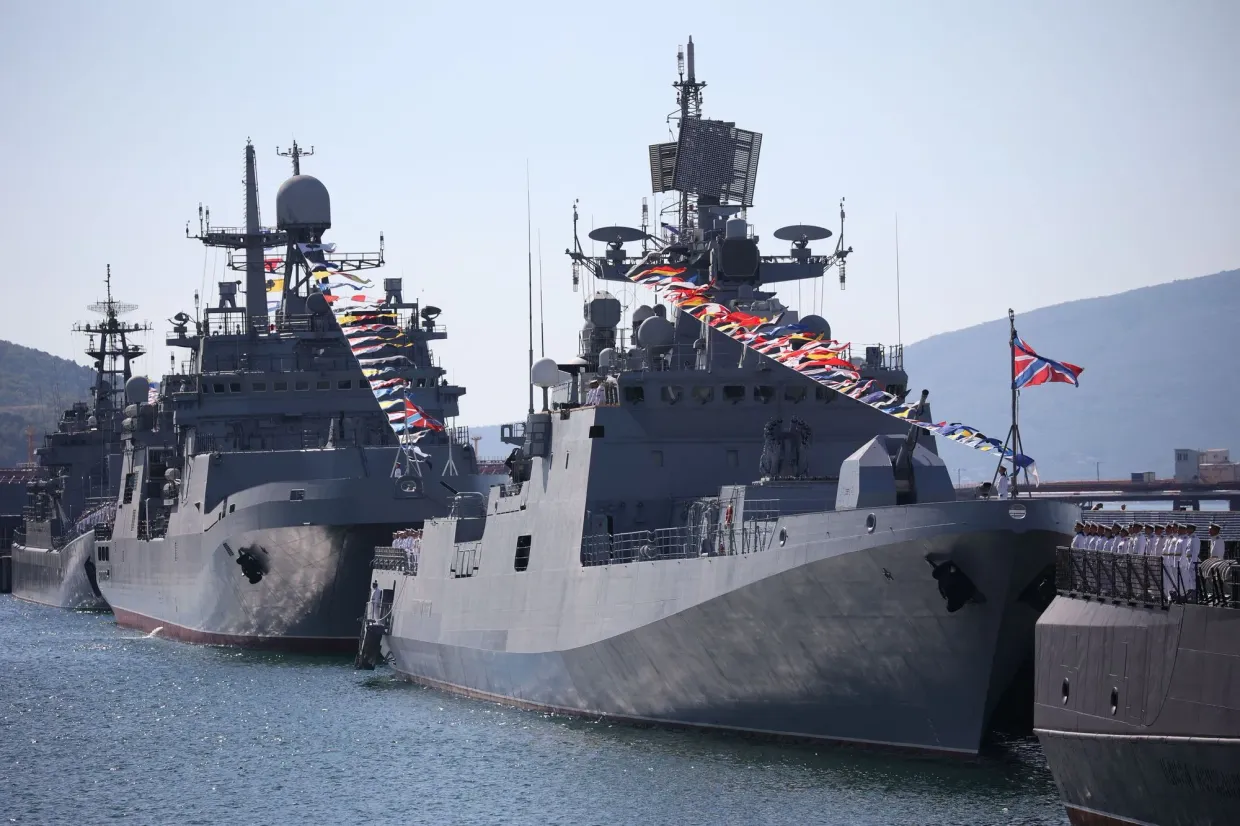
-
Ukraine, Russia haven't attacked energy facilities since March 25 ceasefire, Foreign Ministry confirms
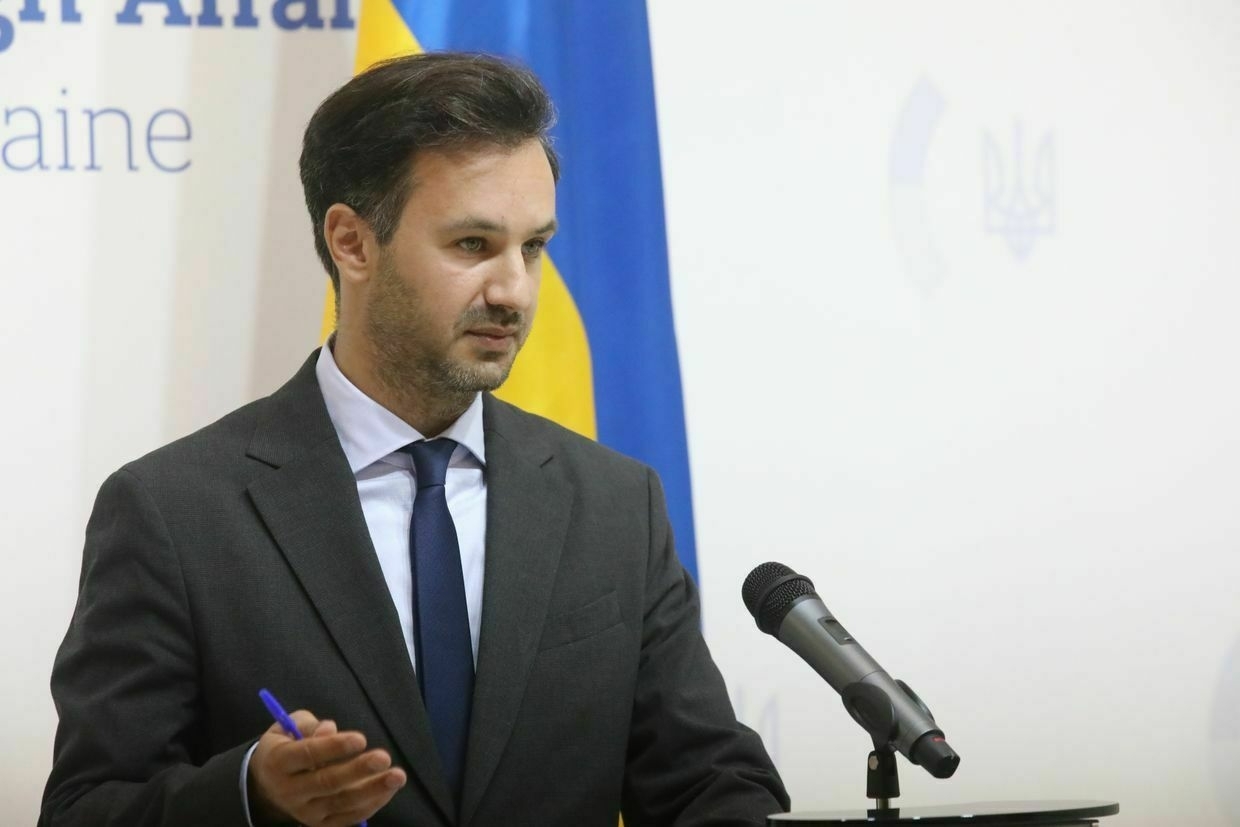
There have been no strikes on either Russian or Ukrainian energy facilities since a partial ceasefire was reportedly agreed upon on March 25, Foreign Ministry spokesperson Heorhii Tykhyi confirmed on March 27.
“I can confirm that since this date, March 25… There have been no attacks on energy objects. Neither Russian attacks on our energy objects, or our attacks on Russian energy objects,” Tykhyi told the Kyiv Independent at a press briefing.
Russia and Ukraine announced a partial ceasefire on strikes against energy facilities following technical consultations with the U.S. in Riyadh earlier this week.
Moscow has claimed that its side of the energy ceasefire has been in effect since March 18, when Russian President Vladimir Putin allegedly declared a halt on such attacks following a call with U.S. President Donald Trump.
“The date, March 18, is purely invented by the Russian side, as Russian propaganda,” Tykhyi commented.
“In our view, in the Ukrainian view, there were agreements made in Saudi Arabia between Ukraine and the United States… (where) we stated that we cease any attacks on energy infrastructure."
President Volodymyr Zelensky’s advisor, Dmytro Lytvyn, previously said that Russia had carried out at least eight attacks against Ukrainian energy facilities between Putin’s claimed pause on March 18 and the agreement in Riyadh on March 25.
Russia has also continued its strikes against Ukraine’s other civilian targets, launching hundreds of drones every day and inflicting civilian casualties.
Moscow tried to present the call between Trump and Putin as the “beginning of the energy ceasefire… but nevertheless continued attacks on energy facilities,” Tykhyi said.
The spokesperson recalled that Ukraine has presented a list of energy facilities it sees as protected by the partial truce. Should Russia violate the ceasefire, increased pressure will be necessary to make Moscow adhere to the deal, he added.
Throughout the full-scale war, Russia carried out multiple waves of missile and drone strikes to knock out Ukraine’s power grid, while Kyiv targeted Russian oil and gas facilities with long-range drones.
Ukraine and the U.S. previously agreed on a full 30-day truce during their talks in Jeddah on March 11. Russia had rejected this proposal unless it included conditions undermining Kyiv’s ability to defend itself, such as a full halt on foreign military aid.
As Ukraine, Russia agree to ceasefire at sea, Moscow’s battered Black Sea Fleet is set to get a reprieveThe White House on March 25 announced that Ukraine and Russia had agreed to “eliminate the use of force” in the Black Sea, returning the spotlight to a theater of battle that has been relatively quiet for more than a year. Throughout 2022 and 2023, Ukrainian strikes against Russian ships,The Kyiv IndependentMartin Fornusek
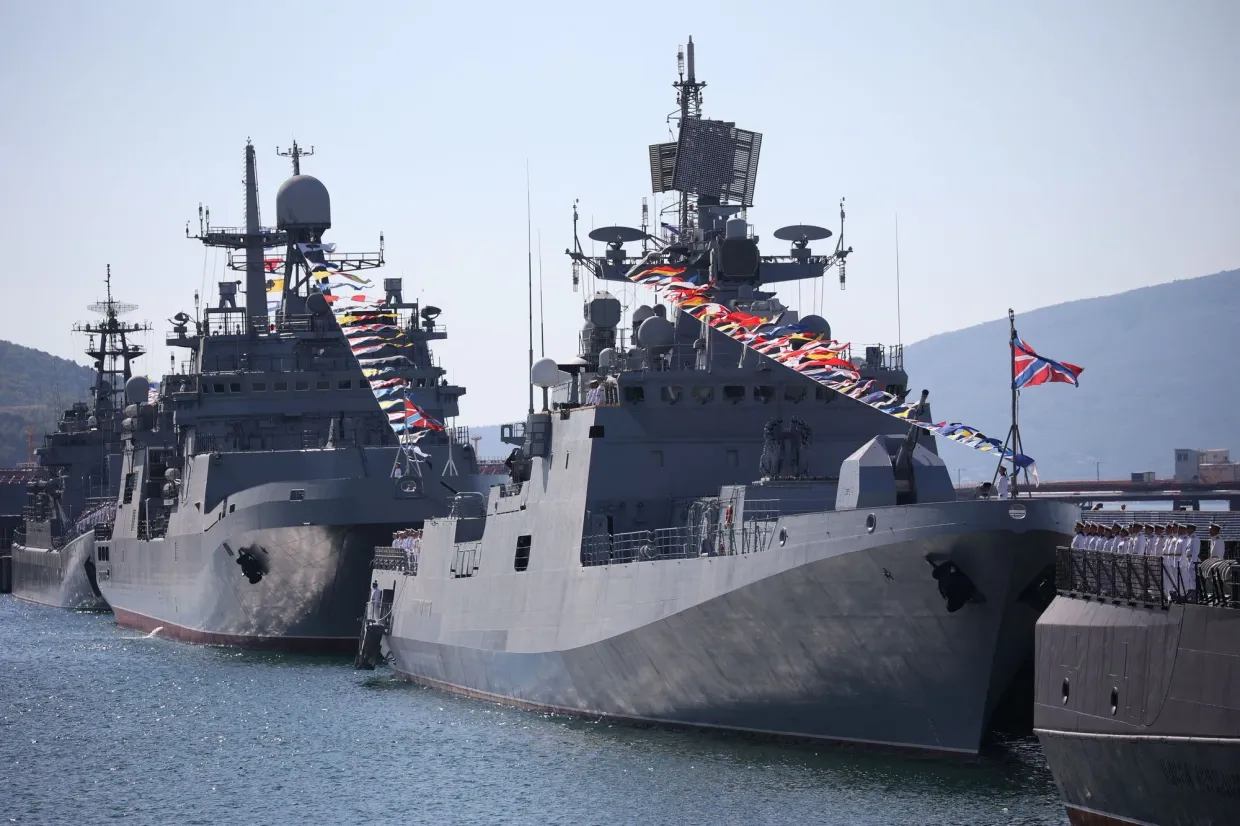
-
U.S. Senators DEMAND Trump Transfer Frozen Russian Assets to Ukraine
-
Russia suffered over 55,000 casualties during Kursk Oblast operation, Syrskyi says
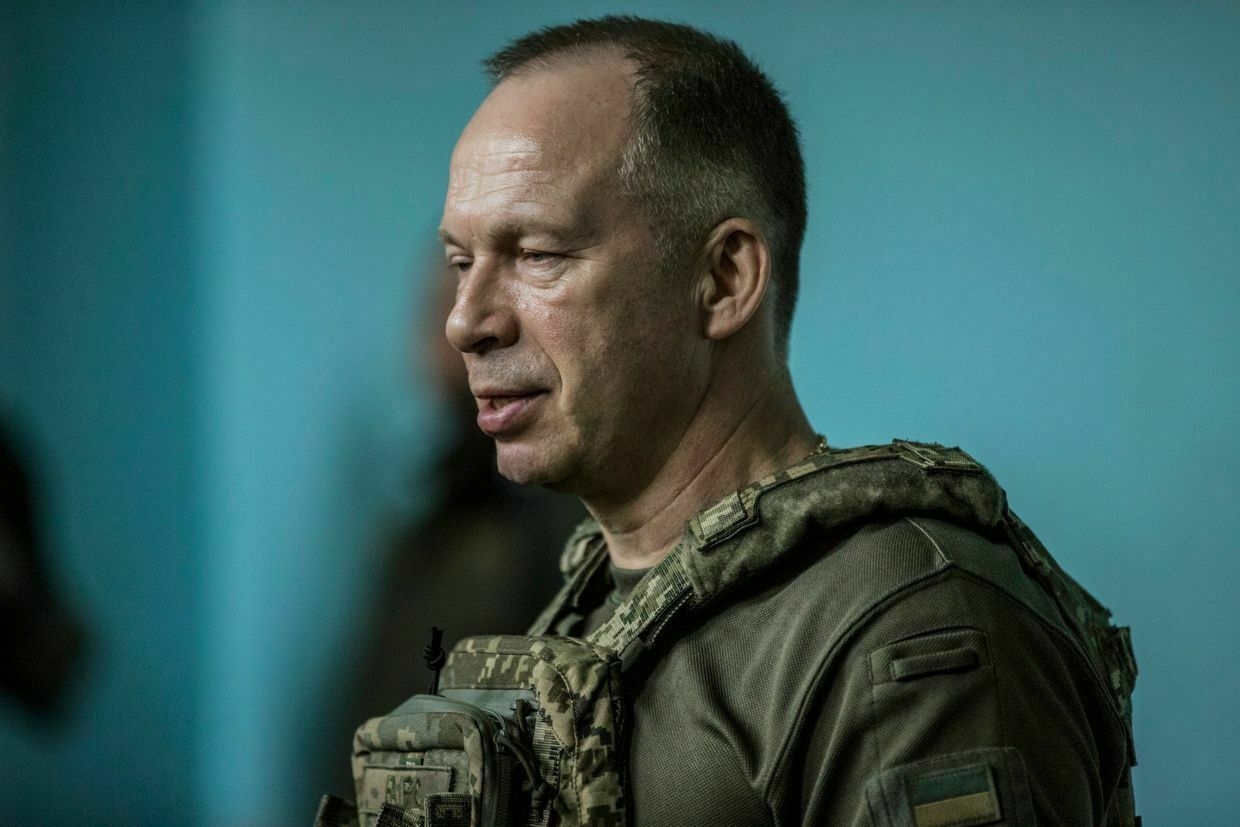
Since Ukraine launched its operation in Russia’s Kursk Oblast, Russian forces have suffered over 55,000 casualties, Commander-in-Chief Oleksandr Syrskyi said on March 27.
According to Syrskyi, Ukrainian forces remain engaged in defensive operations to prevent Russia from advancing deeper into Ukraine while also conducting counterattacks.
In the past seven and a half months, Russian losses have included 22,200 killed in action and 31,800 wounded. Ukrainian forces have also captured more than 940 Russian soldiers, he said.
Ukraine initially seized 1,300 square kilometers (500 square miles) of Russian territory before Moscow, reinforced by North Korean units, launched a counteroffensive earlier this month.
The Russian push coincided with a temporary pause in U.S. intelligence and military support for Ukraine, which resumed on March 11.
U.S. President Donald Trump has repeatedly claimed that Ukrainian forces are “surrounded” in Kursk Oblast, where Russian troops have been advancing.
Ukraine has denied that its forces are encircled, though it has acknowledged a retreat from the town of Sudzha amid intensified Russian assaults.
Russia preparing for new spring offensive in Sumy and Kharkiv oblasts, Zelensky says“We must look at the situation with our eyes wide open. (Russian President Vladimir) Putin is preparing a new offensive, particularly in Sumy and Kharkiv oblasts,” President Volodymyr Zelensky said.The Kyiv IndependentTim Zadorozhnyy
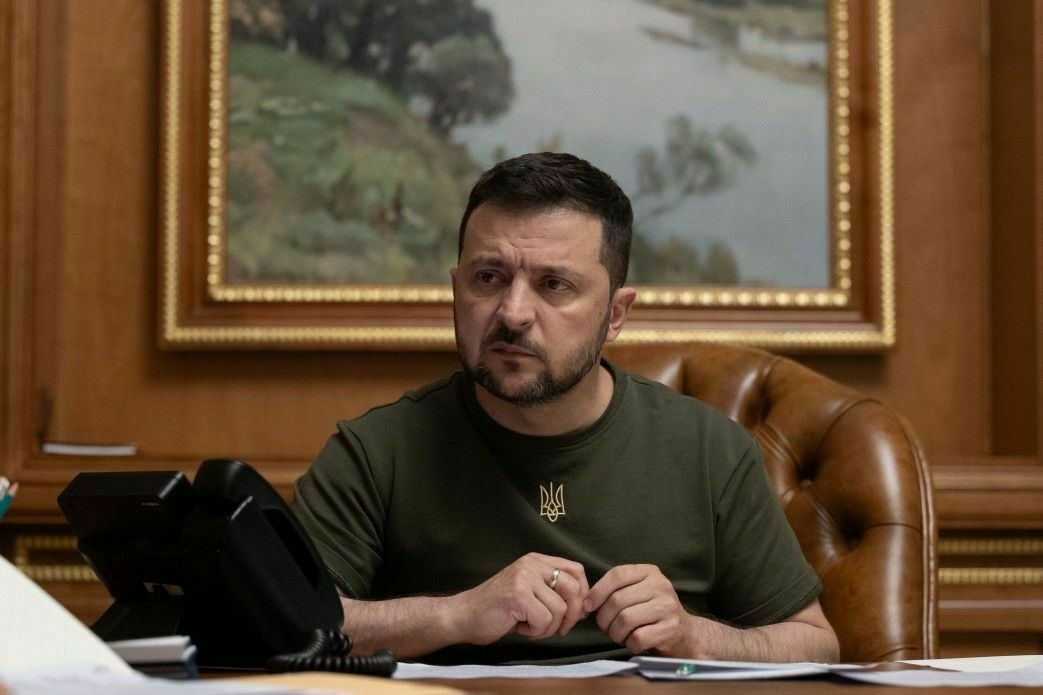
-
Letter to the editor: A part of America I long for I found in Ukraine
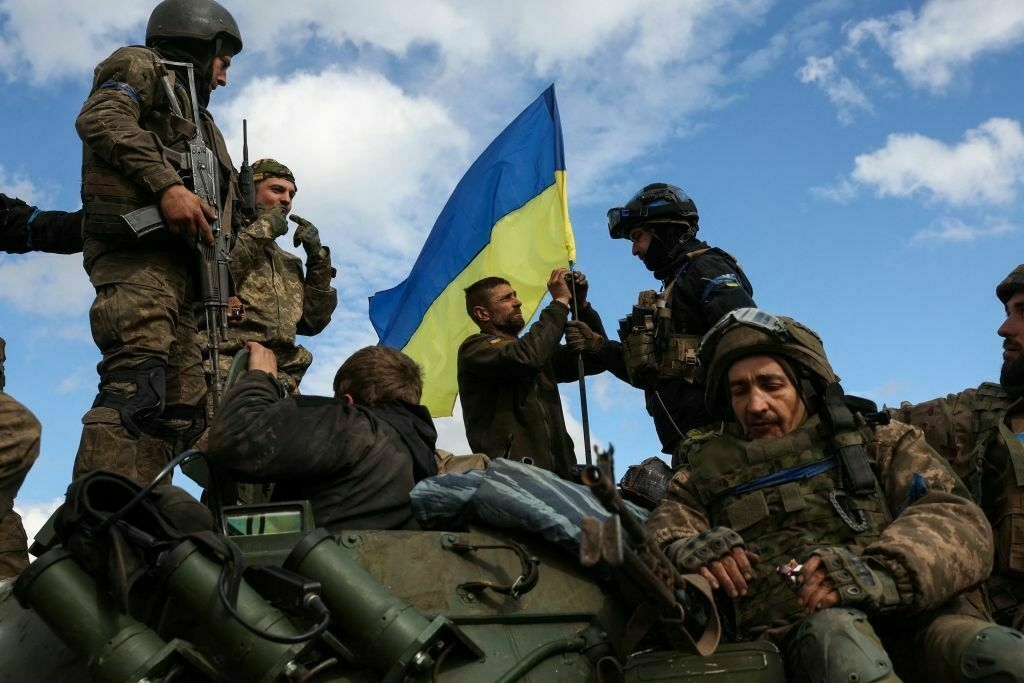
I know Ukraine. I’ve been to Ukraine. Ukraine is not perfect — neither is the United States. But in many ways, Ukraine is the United States I long for.
Not because of its suffering. Not because of its war. But because of its clarity. Because of the unshakable belief that liberty is not a passive inheritance but something worth fighting for, sacrificing for, and, if necessary, dying for.
In Ukraine, there is no confusion about what is at stake — no illusions that democracy is self-sustaining, no comfort in the false security of past victories.
The people there understand that freedom without responsibility is not freedom at all.
I wish I could say the same about my own country.
Editorial: What Steve Witkoff doesn’t get about Ukraine (and Russia)In any negotiation, one of the most powerful weapons is knowledge. In that regard, Steve Witkoff is willfully disarmed. And it’s playing just right for Russia. The interview that Witkoff, Trump’s special envoy, gave to Tucker Carlson a few days ago revealed a truth that was perceived especiallyThe Kyiv IndependentThe Kyiv Independent
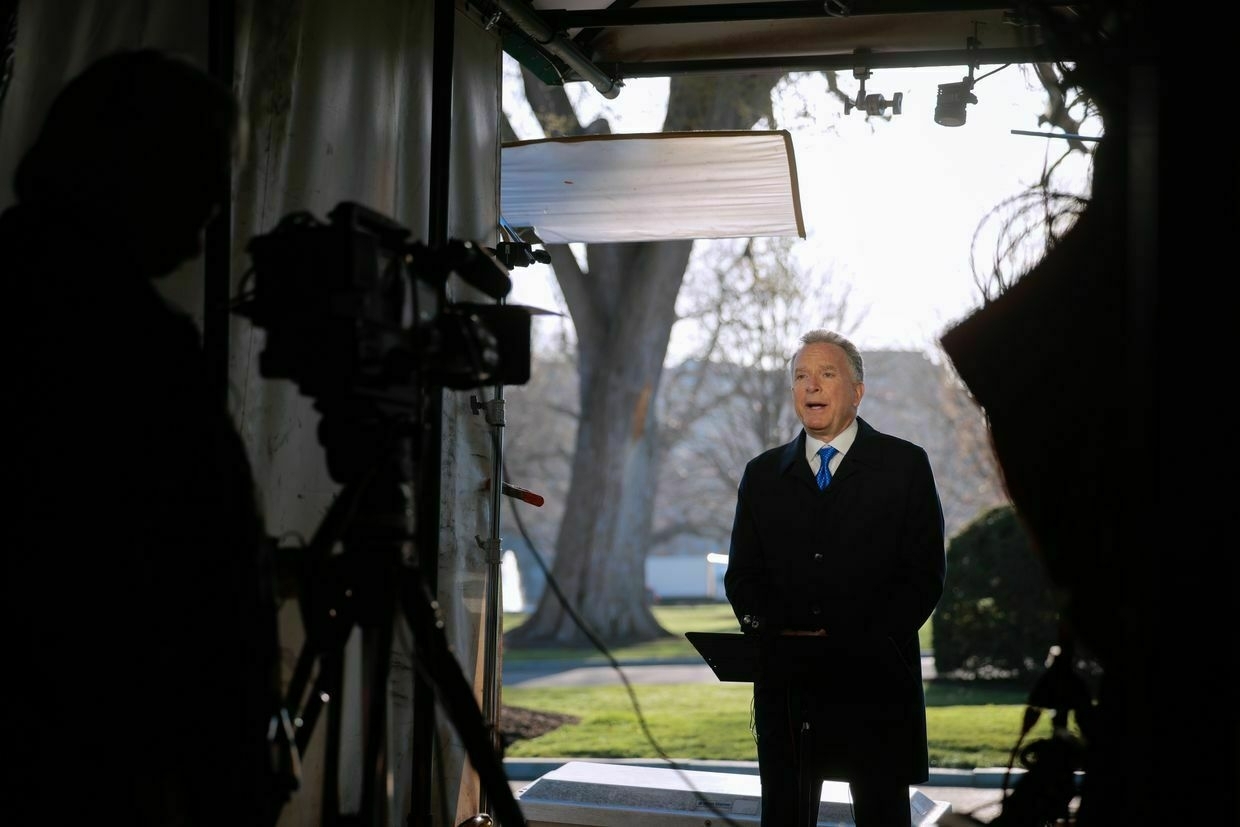
Ukraine is a nation that knows what it stands for. When I walked the streets of Kyiv and spoke with Ukrainians who had lost family members, homes, and livelihoods, I didn’t hear bitterness or self-pity. I heard resolve. I saw people who understood that history does not move on its own — it is shaped by those willing to fight for it.
Ukraine’s war is not just about territory. It is about the right to exist, to govern oneself, to choose one’s future. The people do not take that for granted.
Contrast that with the United States, where democracy is too often treated as a birthright rather than a responsibility. Where the work of preserving freedom has been replaced by the assumption that it will always be there. Where politics is not about safeguarding the republic but about personal power, spectacle, and winning at all costs.
The stakes are high, yet too many treat it as a game.
There is a difference between liberty and freedom. Americans love to talk about freedom. We wear it like a badge, wave it on bumper stickers, invoke it when it suits our personal preferences. But freedom, untethered from responsibility, leads to chaos. Liberty, on the other hand, requires discipline. It demands a collective commitment to something greater than oneself.
Ukraine understands the difference. The United States once did, too.
In 1941, when the U.S. entered World War II, Americans understood that freedom required action. Ordinary citizens rationed goods, industries retooled overnight, young men volunteered in droves — not because they were forced, but because they believed in something bigger than themselves.
In 1961, when John F. Kennedy told Americans to “ask not what your country can do for you — ask what you can do for your country,” people took it to heart.
There was a time when civic duty was a shared responsibility, not an inconvenience.
But today, too many Americans see liberty as an entitlement rather than an obligation. We demand rights but reject the responsibilities that come with them.
We celebrate our past fights for freedom while ignoring the slow erosion of the very institutions that made those fights possible.
America’s comfort is our weakness.
Ukraine is not free because it declares itself free. Ukraine is free because its people fight for it. Every day. Every hour. Every moment.
That kind of clarity does not exist in the United States anymore. Instead, we have settled into the belief that our democracy, our standing in the world, our very way of life is unshakable. But nothing about democracy is permanent.
The Roman Republic believed its institutions were indestructible — until corruption and complacency eroded them. The Weimar Republic assumed democracy would protect itself — until it collapsed into dictatorship. History does not give second chances to nations that fail to recognize when they are in decline.
There are lessons the U.S. can relearn from Ukraine.
Ukraine does not have the luxury of apathy. It does not have the privilege of debating whether its government is worth fighting for. It knows what happens when liberty is threatened, when people hesitate, when a country believes it is immune to collapse. The United States once knew this, too.
So, what will it take for us to remember?
Do we need war on our own soil? Do we need to lose our democracy entirely before we realize that it is not self-sustaining? Will we only recognize the value of what we have once it is gone?Or can we wake up now?
Can we recognize that the fight for democracy is not just happening in Ukraine, but here — inside our borders, inside our institutions, inside our hearts?
If Ukraine is the United States I long for, then perhaps the better question is: Can America become the country it once was? The country that did not take democracy for granted. The country that understood that liberty is not something we receive — it is something we must fight for every single day.
The answer to that question will determine our future.
To those who say, “If you like Ukraine so much, then why don’t you move there?"
Because I believe in the American ideal.
Because this country — despite all its flaws, its complacency, its political dysfunction — still has the potential to be what it once was: a nation that understands liberty is earned, not given. But most of all, because America is my country — my home.
Patriotism is not blind allegiance. It is not a refusal to criticize or challenge. It is the willingness to demand that one’s country live up to its highest ideals, even when it falls short. Especially when it falls short.
Ukraine reminds me of the America that fought for independence against a greater power. The America that sacrificed for the sake of liberty. The America that, in its best moments, has understood that freedom is not an individual privilege but a shared responsibility.
I do not admire Ukraine because it is perfect. I admire it because it has clarity. Because it has purpose. Because it refuses to take liberty for granted.
And I do not want to move to Ukraine because I want my own country to remember what that feels like.
So no, I won’t move to Ukraine, but I will stand up for Ukraine — travel to Ukraine — and support its fight against tyranny and for liberty.
But I will stay in America to fight, in whatever way I can, to make sure that America does not forget what makes it truly free. What makes it America the Beautiful.
Letter to the editor: The Oval Office fiasco was a calculated setup to humiliate Ukraine and undermine democracyThe recent Oval Office meeting between U.S. President Donald Trump and Ukrainian President Volodymyr Zelensky wasn’t just a diplomatic disaster — it was a setup. From the moment Zelensky walked into that room, the stage had already been set. This wasn’t about serious discussions on aid or strategy.The Kyiv IndependentGraden Keller
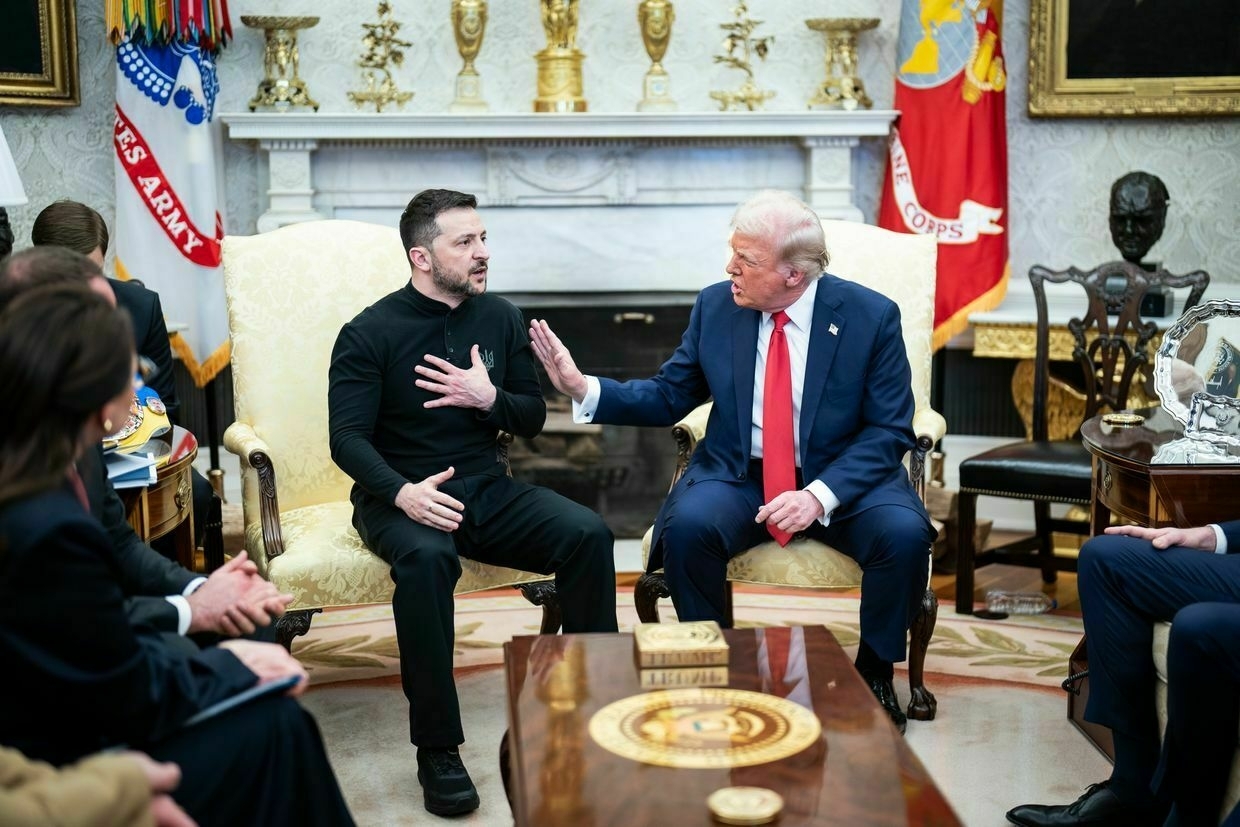
-
Leaders from 31 countries gather for Paris summit to strengthen support for Ukraine, discuss peace
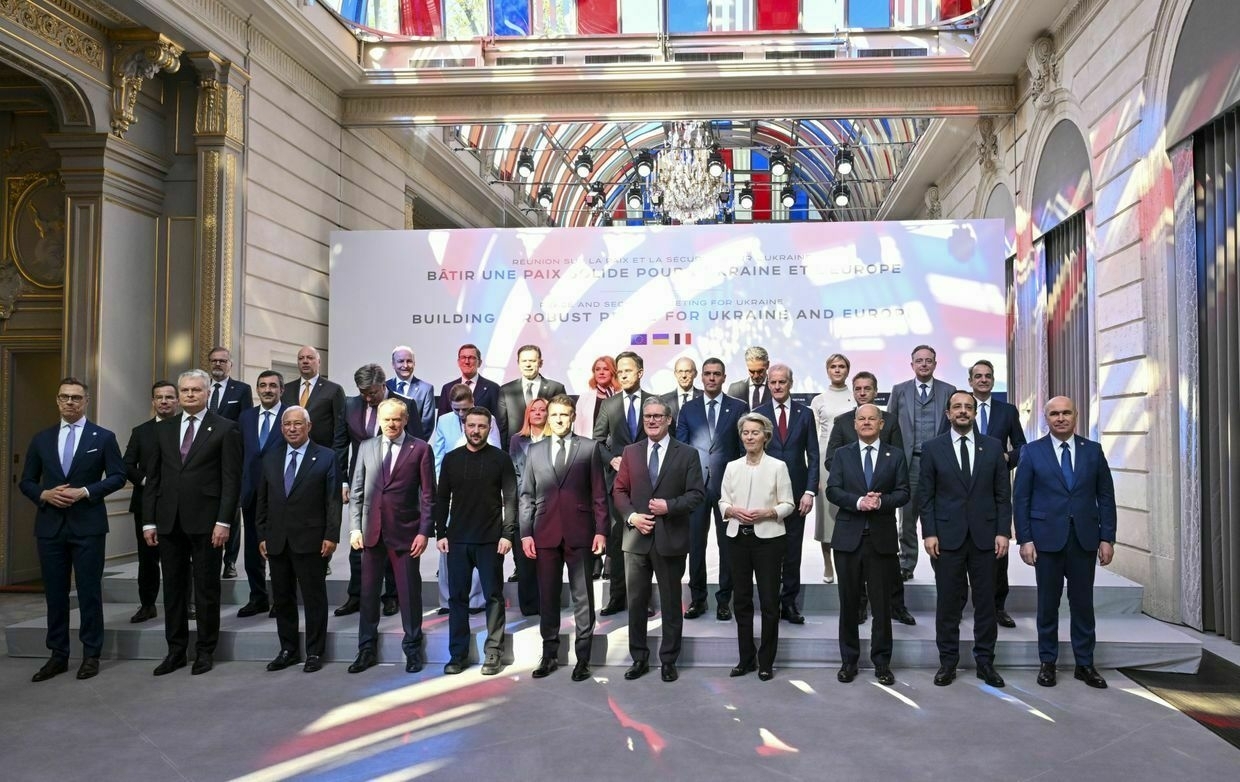
Leaders from 31 countries gathered in Paris on March 27 to coordinate military aid for Ukraine and discuss steps toward a just and lasting peace, the Ukrainian presidential office reported.
The summit, co-led by French President Emmanuel Macron and British Prime Minister Keir Starmer, follows Starmer’s March 2 proposal to form a “coalition of the willing” to support Ukraine.
Discussions will reportedly center on sustaining military aid, strengthening Ukraine’s defense industry, and negotiating potential ceasefire mechanisms.
The leaders will also discuss the possibility of deploying a peacekeeping force to Ukraine with U.S. support as part of a future peace agreement. Starmer previously stressed that the coalition would need “strong U.S. backing” to succeed.
The coalition aims to form a “reassurance force” as a key security guarantee for Ukraine. Members who are reluctant to send their own troops to Ukraine can instead deploy soldiers to neighboring countries or provide ships, aircraft, intelligence, tanks, or other support.
U.S. President Donald Trump claimed on Feb. 24 that Russian President Vladimir Putin would allow European peacekeepers in Ukraine as part of a settlement. Russian Foreign Minister Sergey Lavrov publicly rejected the idea.
As Macron talks about building up Europe’s defenses, Ukraine awaits actual resultsAs French President Emmanuel Macron hosts another Ukraine-centric summit in Paris on March 27, the main question remains open — can Europe, and France as one of its leaders, keep embattled Kyiv afloat when the U.S. walks out? Addressing the nation on March 5, French President Emmanuel Macron said t…The Kyiv IndependentAlex Cadier
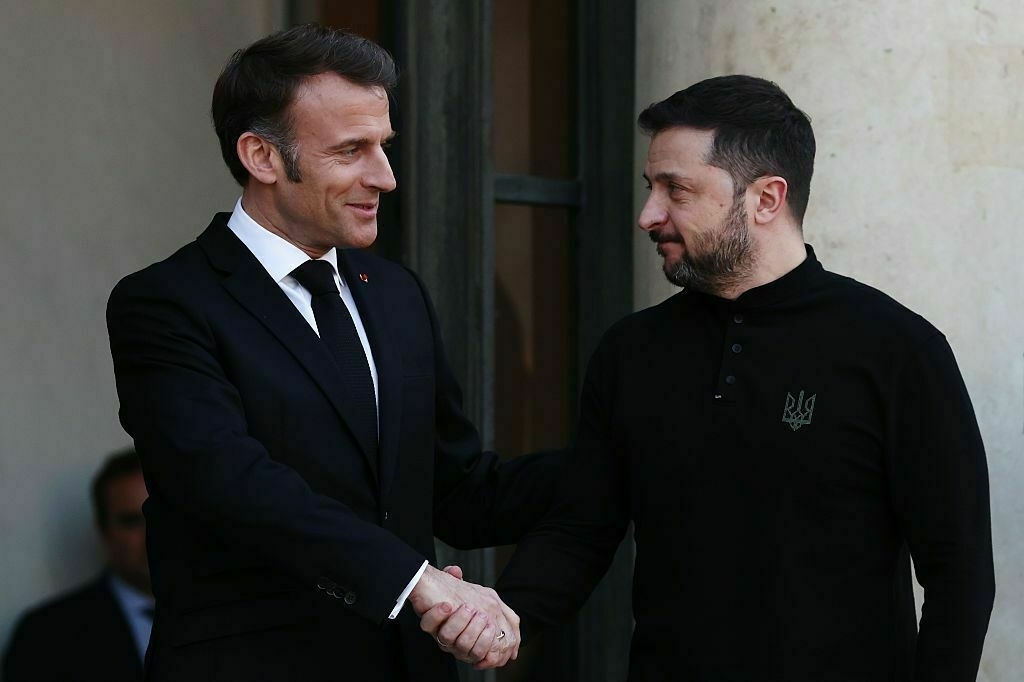
-
69% of Ukrainians have trust in President Zelensky, poll finds
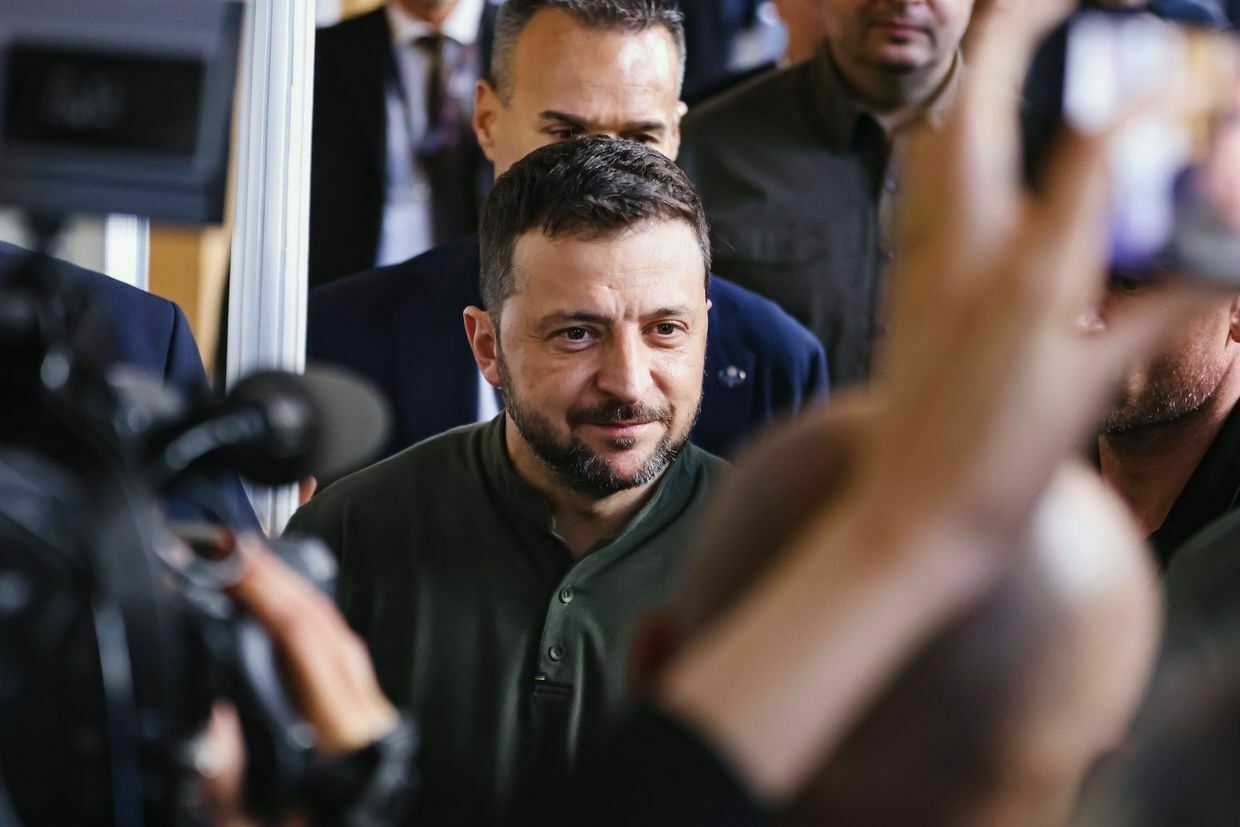
Some 69% of Ukrainians trust President Volodymyr Zelensky, according to a poll by the Kyiv International Institute of Sociology published on March 27.
The results counter claims by tech billionaire Elon Musk, a close ally of U.S. President Donald Trump, who wrote on X on March 6 that Zelensky would “lose by a landslide” if Ukraine held an election.
The survey found that only 28% of respondents do not trust Zelensky, resulting in a trust-distrust balance of +41%. Conducted from March 12 to 22, the poll interviewed 1,326 adults in government-controlled territories.
The poll indicates that trust in Zelensky remains relatively stable, with no significant change from a previous survey conducted from Feb. 14 to March 4.
A prior poll published on March 7 showed that Zelensky’s approval rating had risen to 68% following his tense Feb. 28 meeting with Trump at the White House, which ended in a public dispute over security guarantees and the cancellation of a minerals agreement.
Trump has also labeled Zelensky a “dictator without elections,” blaming him for prolonging the war. However, Ukraine’s constitution prohibits elections under martial law, which has been in effect since Russia’s full-scale invasion in 2022.
Legal experts say Zelensky’s term extension is permitted under Ukrainian law.
A February survey before the clash with Trump put Zelensky’s trust level at 57%, with a trust-distrust balance of +20%.
We asked Ukrainian soldiers if they’d fight Russia ‘with their bare hands’ rather than accept a bad ceasefireCIA Director John Ratcliffe on March 25 gave a rousing assessment of Kyiv’s desire to achieve an acceptable and lasting peace in Ukraine, insisting its people and armed forces would fight Russia with “their bare hands” if they had to. “I want to say that with regard to the UkrainianThe Kyiv IndependentChris York
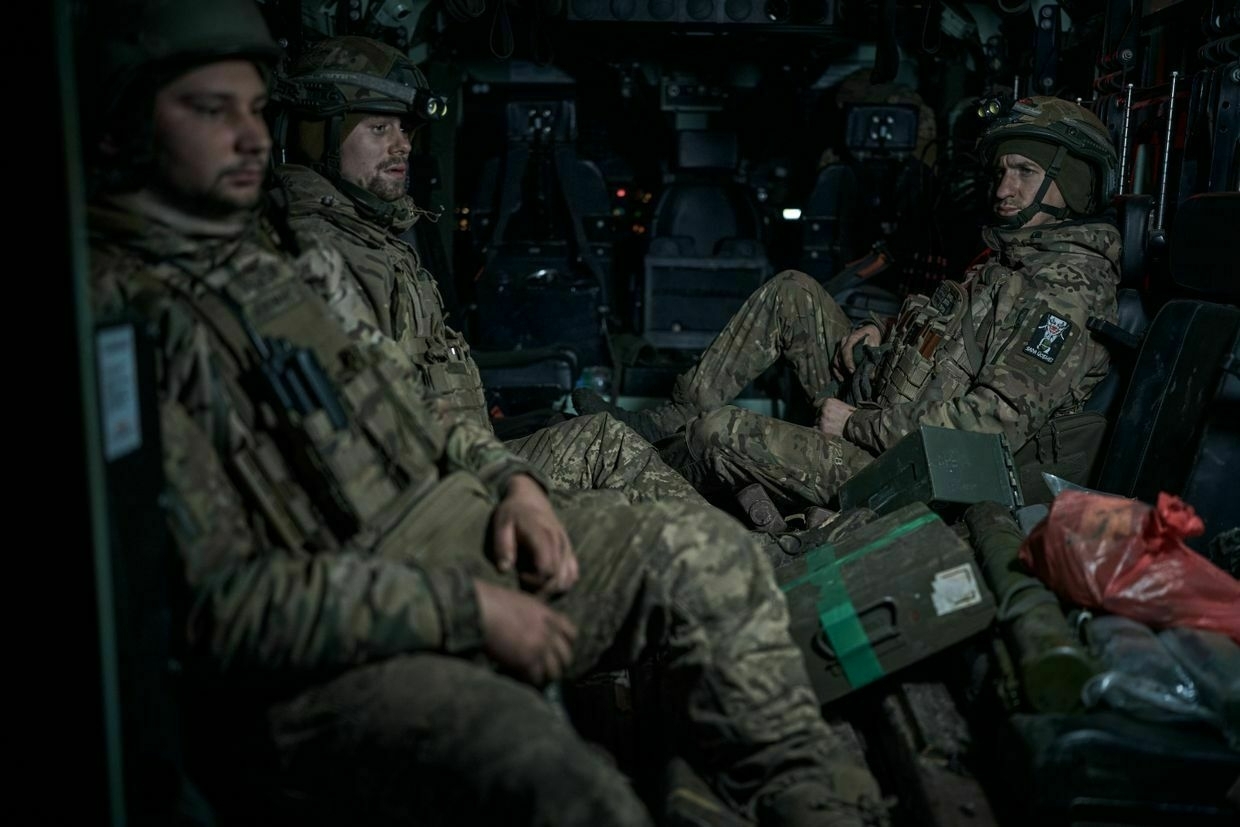
-
US finalizes Ukraine minerals deal, signing possible next week, treasury secretary says
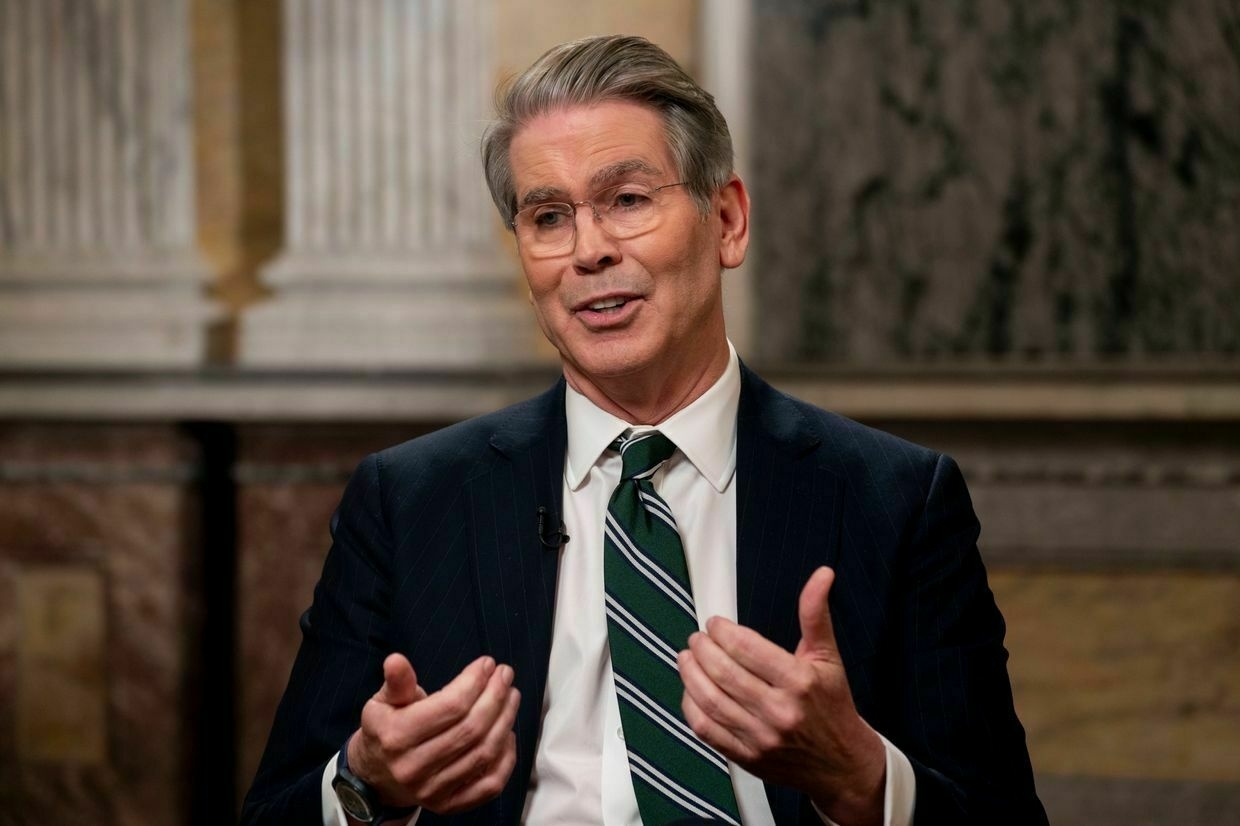
The U.S. has finalized a minerals deal for Ukraine that could be signed next week, U.S. Treasury Secretary Scott Bessent told Fox News on March 26.
“We have passed along a completed document for the economic partnership (that) is currently being reviewed by Ukrainians, and we hope to go to full discussions and perhaps even get signatures next week,” Bessent said.
Washington had initially planned to sign the agreement on Feb. 28, but the process was delayed after a heated dispute between U.S. President Donald Trump and President Volodymyr Zelensky at the White House.
Zelensky confirmed on March 25 that the U.S. had proposed a “major” minerals deal based on a previous framework agreement, but he did not specify a signing timeline. A day earlier, Trump had said he expected the deal to be signed “soon."
According to the initial version, the agreement would establish a fund to which Ukraine would contribute 50% of proceeds from the future extraction of state-owned resources, including oil, gas, and logistics infrastructure.
The version Kyiv approved earlier does not include security guarantees but says that the fund “will be reinvested at least annually in Ukraine to promote the safety, security, and prosperity of Ukraine."
Trump previously said Washington and Kyiv were discussing a deal under which the U.S. would own a Ukrainian power plant, though he did not specify which facility.
Zelensky later said he had discussed U.S. assistance in restoring the Russian-occupied Zaporizhzhia Nuclear Power Plant, the largest nuclear facility in Europe.
The White House has described the minerals deal as a mechanism for the U.S. to “recoup” some of the financial aid it has provided to Ukraine since the start of Russia’s full-scale invasion.
US ‘evaluating’ Russian conditions for Black Sea ceasefire including lifting sanctions, Rubio saysAccording to U.S. Secretary of State Marco Rubio, some of the sanctions Russia wants lifted “are not ours — they belong to the European Union.”The Kyiv IndependentTim Zadorozhnyy
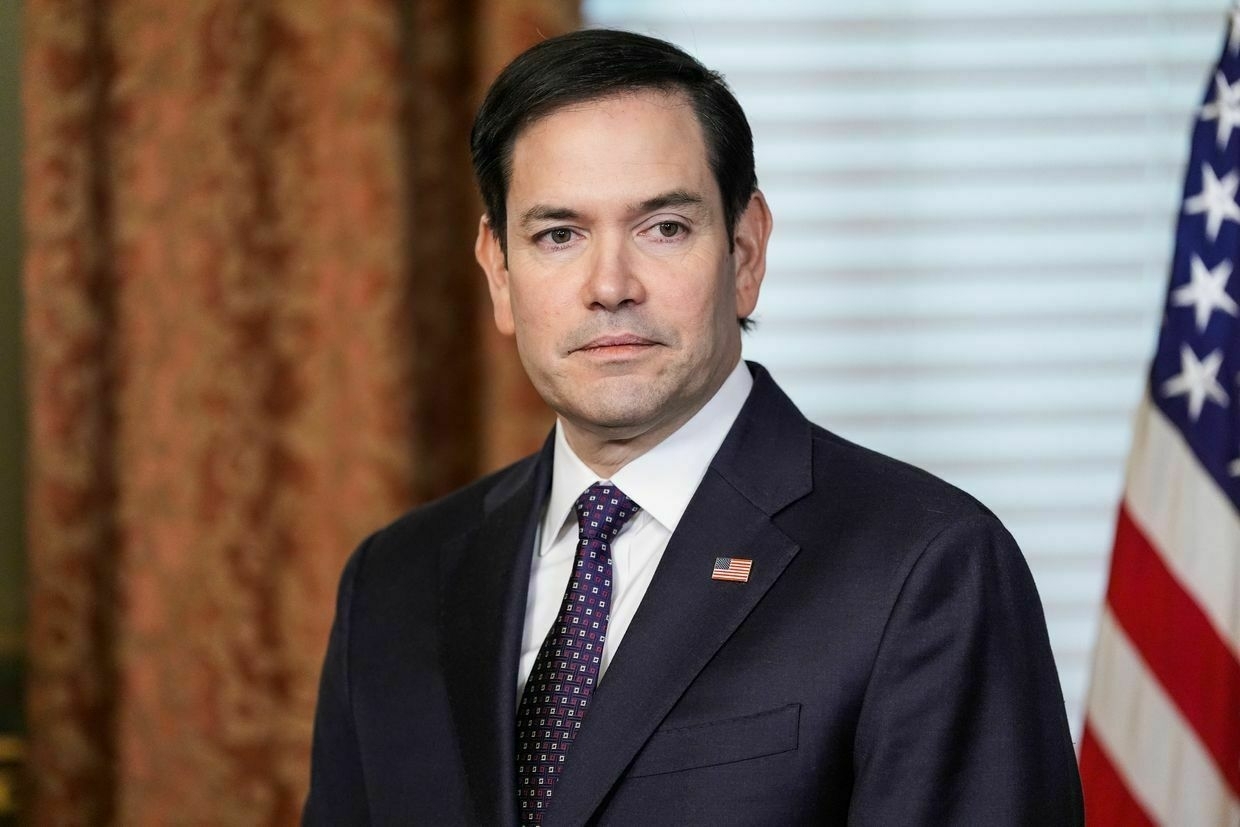
-
Hungarian FM visits Moscow, eyes further economic cooperation with Russia
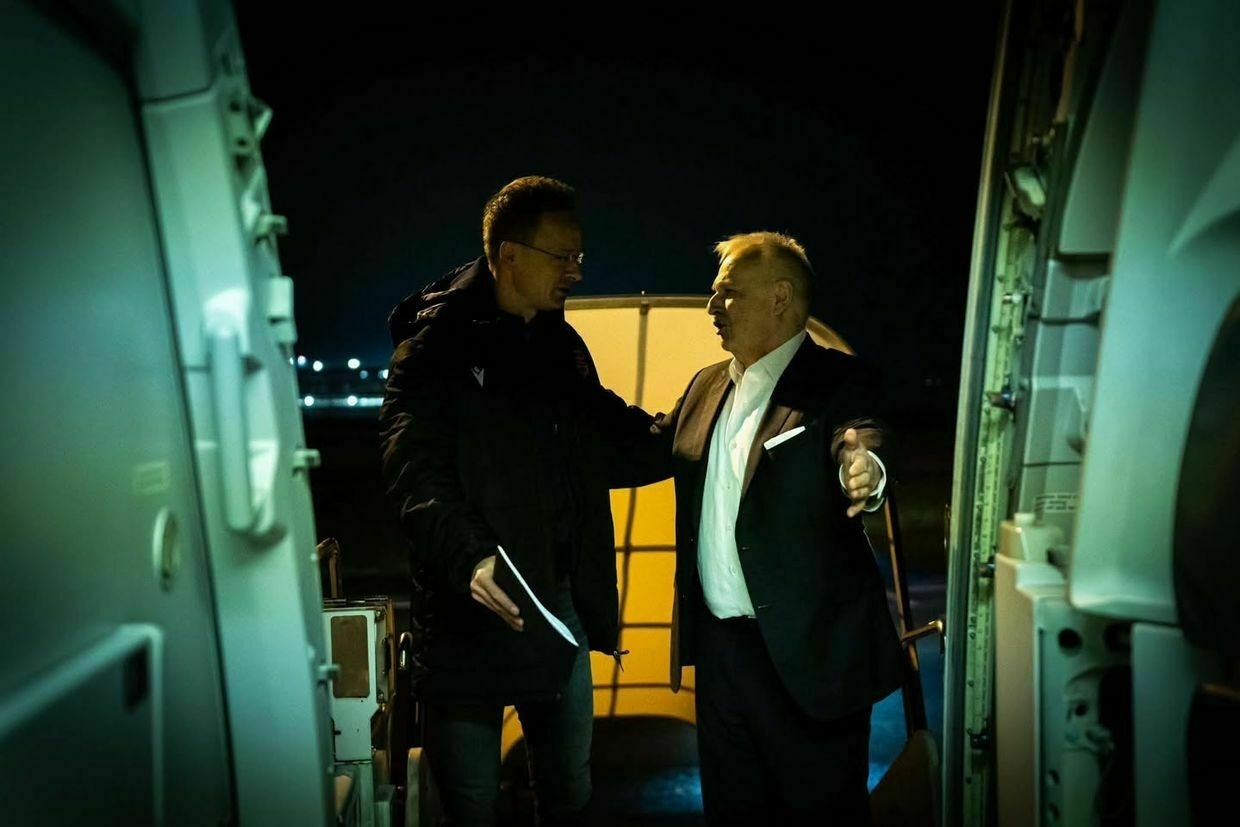
Hungarian Foreign Minister Peter Szijjarto visited Moscow on March 26 to discuss continued economic cooperation between the two countries, Bloomberg reported.
Szijjarto has made at least 13 visits to Russia in the past three years, far more than any other EU diplomat, and even more than some of Russia’s closest allies.
Hungary is broadly seen as the most Moscow-friendly country within the EU and NATO, repeatedly obstructing aid to Kyiv and sanctions against Russia.
He praised the resilience of Hungary-Russia energy ties and announced plans for Hungary’s largest refinery, MOL, to increase its operations in Russia.
“An agreement was reached on enhancing Hungarian-Russian cooperation, which is in the clear interest of our country, since the country’s energy security depends largely on Moscow,” Szijjarto said.
He later commented on the meetings on Facebook, praising the record amount of natural gas that was imported from Russia in the past year, exceeding 20 million cubic meters. Szijjarto then said that energy attacks are unacceptable, and praised current ceasefire efforts.
“We agreed with Deputy Prime Minister Alexander Novak to maintain energy cooperation, and we agreed that the attack on the energy infrastructure to Hungary is unacceptable,” he said on Facebook. “Both Russia and the United States sit at the negotiating table with mutual good intentions, so we remain in good hope that the negotiations can lead to a lasting, sustainable ceasefire and peace.”
Ukraine already agreed to a U.S.-proposed full 30-day ceasefire, saying on March 11 that Kyiv was ready to take such a step if Russia also agreed to the terms.
So far, Russia has refused.
Despite the agreement between U.S. President Donald Trump and his Russian counterpart, Vladimir Putin a week ago, Russia has continued its regular campaign of aerial attacks against Ukrainian cities and infrastructure.
Russia has launched more than 30 mass strikes on Ukraine’s energy infrastructure over the three years of its full-scale invasion, Energy Minister Herman Halushchenko said on Feb. 24.
Ukraine’s list of energy facilities banned from attacks differs from Russian version, Energy Ministry saysUkrainian oil and gas production facilities — which, according to the Energy Ministry have suffered the most Russian attacks as of late — weren’t on Kremlin’s list, the Energy Ministry told European Pravda.The Kyiv IndependentKateryna Denisova
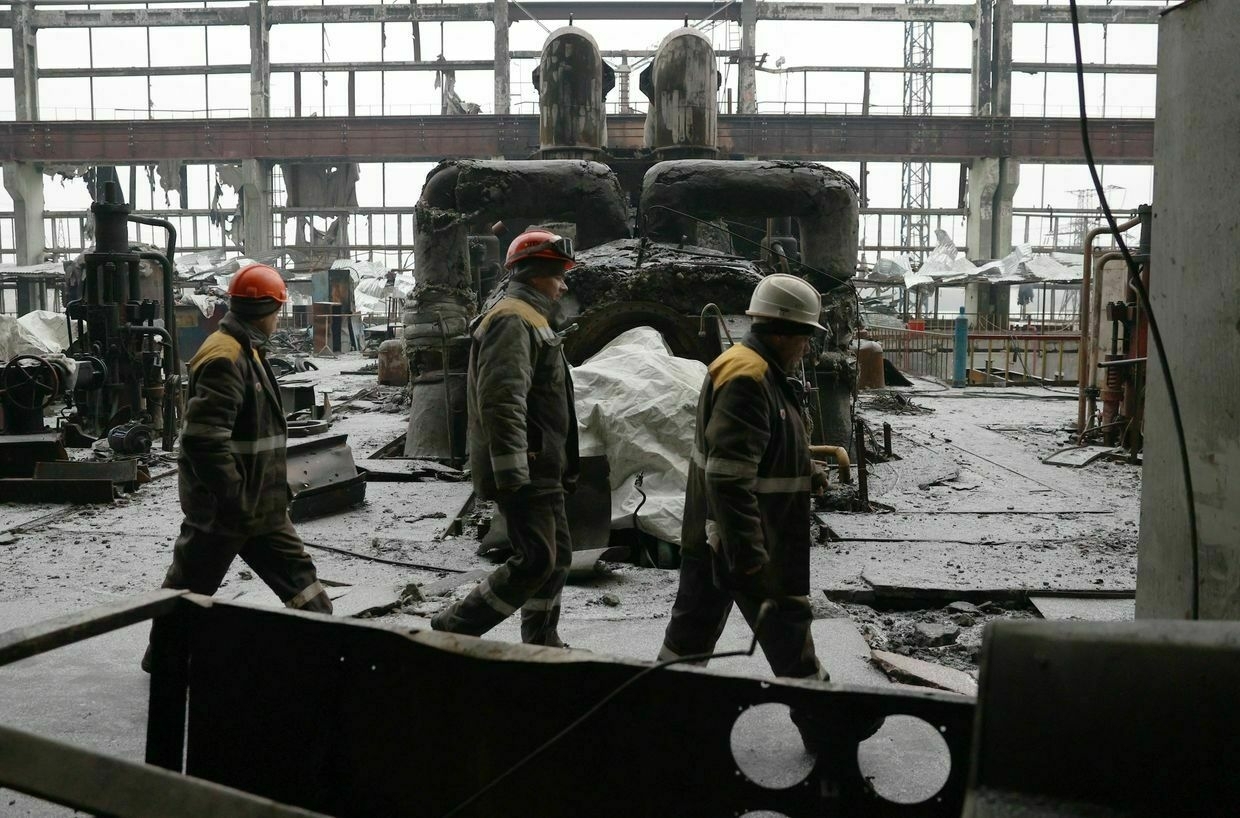
-
As Macron talks about building up Europe's defenses, Ukraine awaits for actual results
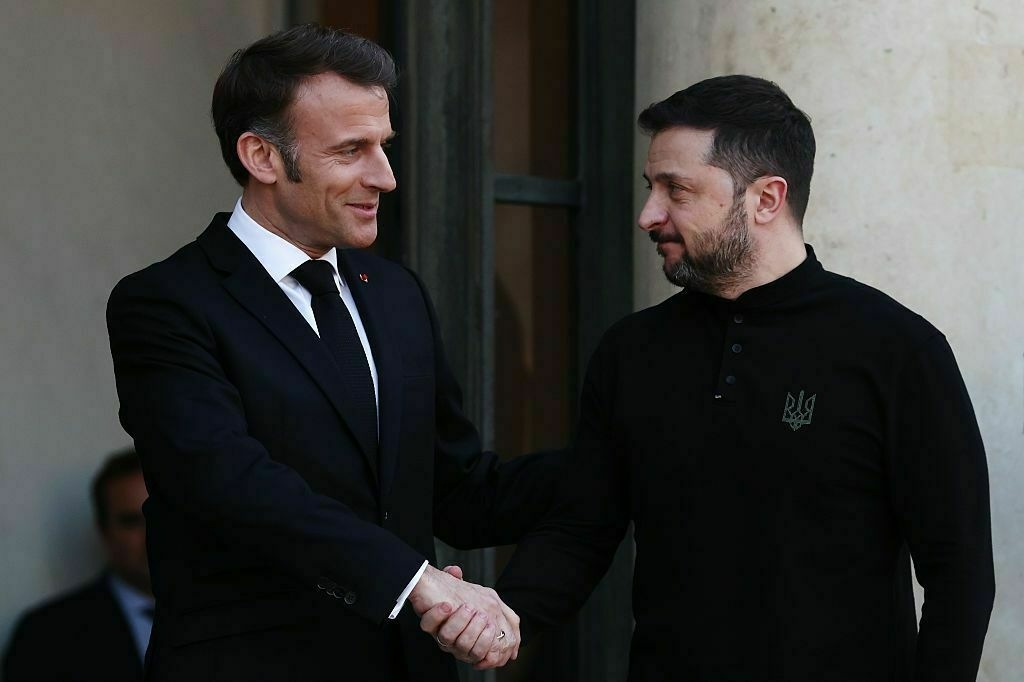
As French President Emmanuel Macron hosts another Ukraine-centric summit in Paris on March 27, the main question remains open — can Europe, and France as one of its leaders, keep embattled Kyiv afloat when the U.S. walks out?
Addressing the nation on March 5, French President Emmanuel Macron said that France, and Europe, need to prepare to face Russian threats without support from the U.S.
“Faced with this world of danger, remaining a spectator would be madness,” the French president said.
On March 26, Macron announced a new military aid package for Ukraine worth 2 billion euros ($2.1 billion).
“We must continue to provide immediate support to Ukraine — it is necessary in order to keep up the resistance,” Macron said, standing next to President Volodymyr Zelensky at the Elysee Palace.
The package included anti-tank missiles, air defense systems, Mirage fighter jet missiles, armored vehicles, ammunition, and other aid, Macron said.
The French leader has toiled to place France at the tip of the spear in the hopes of leading Europe’s defense. Yet, as it stands now, Macron’s flurry of diplomatic efforts is yet to show results, with the continent unable to muster up a concrete plan on rearmament, peacekeepers in Ukraine, and a unified stance toward the increasingly aggressive U.S.
As Ukraine-Russia ceasefire progress inches forward, here’s where things standAfter three days of separate intensive discussions with the United States, Russia and Ukraine left the latest round of ceasefire talks in Saudi Arabia with agreements to declare a limited ceasefire in the Black Sea and to halt strikes against energy facilities. While lauded by the White House as pr…The Kyiv IndependentAndrea Januta
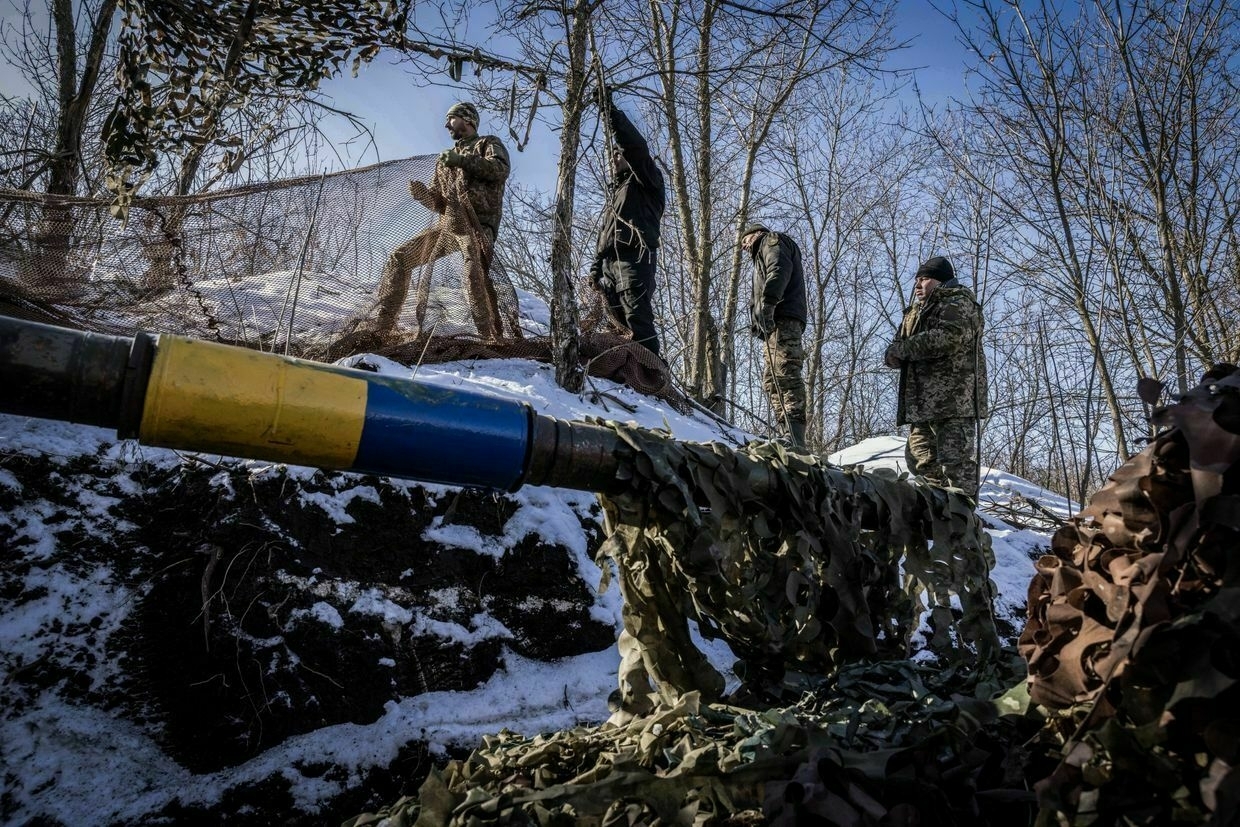
Macron’s push for independent EuropeOver the past weeks, President Macron has shown an increasing desire to solidify the support for Ukraine, and rebuild European defenses, still heavily reliant on unpredictable Washington.
France has shown “awareness that it is necessary to reach out to non EU partners in order to create a sort of critical mass of countries that could be interested in developing a common approach to the defense of Europe,” Antonio Missiroli, former NATO Assistant Secretary General for Emerging Security Challenges, told the Kyiv Independent.
Crucially, France has also changed its position on working with the United Kingdom, Europe’s only other nuclear power.
“This is a Franco-British initiative which aims to provide security guarantees to Ukraine when a peace deal is agreed, through the deployment of troops to Ukraine,” officials from the Elysee Palace told reporters.
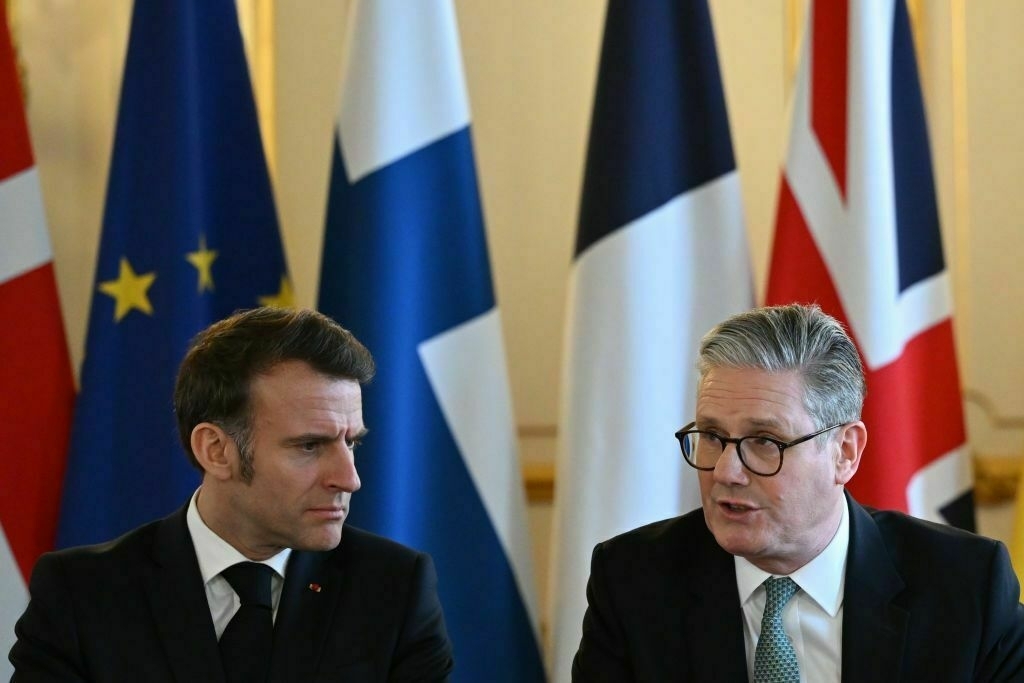
French President Emmanuel Macron and British Prime Minister Keir Starmer chat ahead of a plenary meeting at a summit held at Lancaster House on March 2, 2025 in London, U.K. (Justin Tallis - WPA Pool/Getty Images) The officials were eager to highlight that France’s diplomatic efforts appear to have paid off, with 31 countries expected to attend the “coalition of the willing” meeting in Paris.
While it may be preparing for the U.S. to abandon its European allies, France is also working in parallel to avoid it, relying heavily on the personal relationship between President Macron and U.S. President Donald Trump.
“I believe that Emmanuel agrees with me on many of the important issues,” the U.S. president said during Macron’s visit to Washington in late February, seen by many as a successful diplomatic overture by the French leader.
“There is an acute awareness around President Macron that it is important to try and keep some line of communication with the Trump administration open in order to avoid shock events and developments,” Missiroli said.
While diplomatic efforts seem to be in full swing, whether or not they will lead to concrete action remains to be seen.
‘Not what Ukraine needs’ — Black Sea ceasefire favors Russia more than Ukraine, say expertsWhile the White House celebrates a ceasefire in the Black Sea after a 12-hour meeting in Riyadh, in Ukraine, the enthusiasm is muted. The agreement is missing crucial securities that Ukraine urgently needs, including protecting its ports from Russian attacks as well as opening up the blockaded Myko…The Kyiv IndependentDominic Culverwell
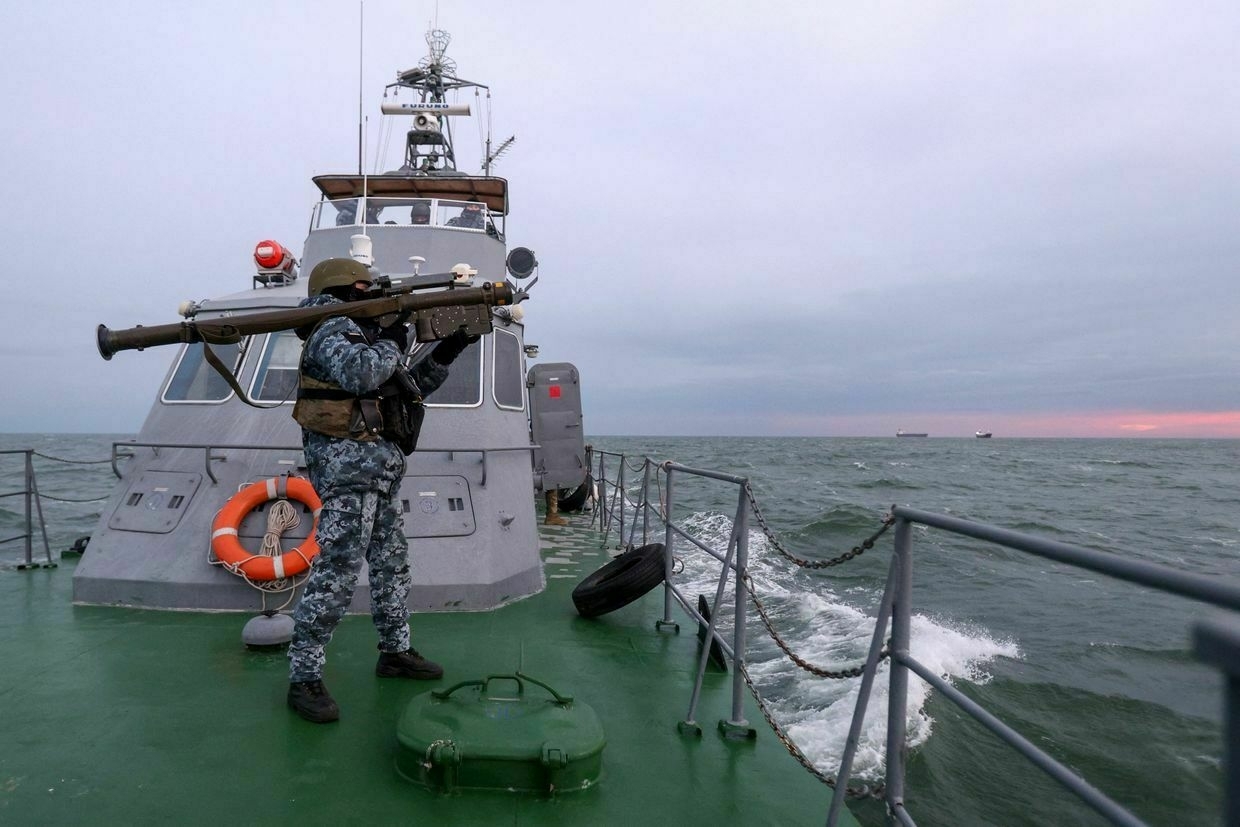
Unrealistic desiresDespite the apparent warmth and endless handshakes between Trump and Macron, the U.S. position remains that Europe, not the United States, should be the guarantor of lasting peace in Ukraine.
The meeting in Paris will focus primarily on nailing down those European security guarantees for Ukraine, should an end to Russia’s full-scale invasion be negotiated without Europe.
This previously included a potential commitment to send a so-called reassurance force to Ukraine to deter any further Russian aggression.
“If Europeans had to deploy a serious reassurance force to Ukraine, they would have to deploy all their best forces, and then they would remain undefended at home,” Missiroli said.
Despite the public commitment from Macron and U.K. Prime Minister Keir Starmer to send troops to Ukraine in case of a firm ceasefire, the actual deployment of troops is seen as increasingly unlikely.
Missiroli added that most European militaries have planned, trained, and prepared themselves to operate within a NATO framework, which assumes American support.
“It would be extremely difficult for Europeans simply to transpose these capabilities outside of NATO without an American backstop, some sort of logistical communications intelligence support from the United States. So if the question is, would Europeans be able to fill in for American disengagement overnight, the answer will probably be no."
Even with American logistical support, troop numbers in France, the U.K., Germany, and other European powers have dwindled significantly in recent years, putting into question the feasibility of a peacekeeping mission.
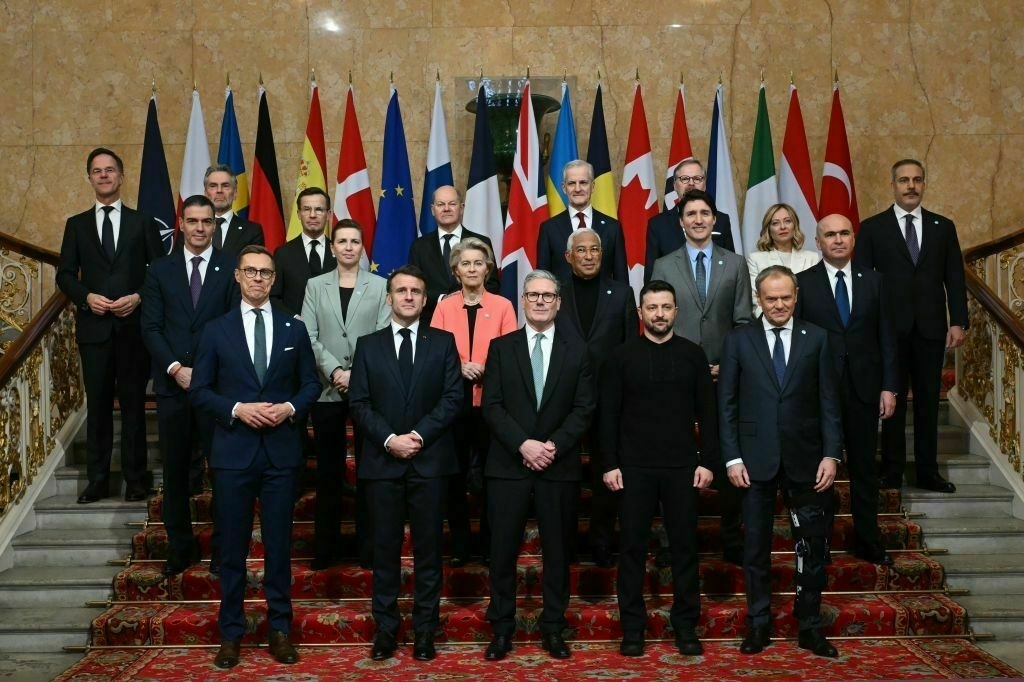
NATO Secretary General Mark Rutte, Netherlands' Prime Minister Dick Schoof, Sweden’s Prime Minister Ulf Kristersson, Germany’s Chancellor Olaf Scholz, Norway’s Prime Minister Jonas Gahr Store, Czech Republic’s Prime Minister Petr Fiala, Turkey’s Minister of Foreign Affairs Hakan Fidan, (Middle row L-R) Spain’s Prime Minister Pedro Sanchez, Denmark’s Prime Minister Mette Frederiksen, European Commission President Ursula von der Leyen, European Council President Antonio Costa, Canada’s Prime Minister Justin Trudeau, Italy’s Prime Minister Giorgia Meloni, Romania’s Interim President Ilie Bolojan, (Front row L-R) Finland’s President Alexander Stubb, France’s President Emmanuel Macron, Britain’s Prime Minister Keir Starmer, President Volodymyr Zelensky and Poland’s Prime Minister Donald Tusk pose for a family photograph at Lancaster House during the European leaders' summit on March 2, 2025 in London, U.K. (Justin Tallis - WPA Pool/Getty Images) “In order to put a force of 10,000 British soldiers out there, you’ve got to have 30,000 in the pipeline, either recovering or training. And it’s a long-term commitment. This is not a six-month tour and then home for tea and medals. This is potentially years. So I think there are real question marks about that,” General Sir Richard Shirreff, former deputy supreme allied commander Europe, told the Kyiv Independent.
Beyond troop numbers, Europe may also struggle to reduce its reliance on American weaponry, at the very least, doing so may take years.
“European systems sometimes compete with American ones and sometimes are slightly less advanced, but they are still highly relevant technologies,” Olivier Schmitt, head of research at the Institute for Military Operations at the Royal Danish Defense College, told the Kyiv Independent.
“Europe has all the technological bricks and knowledge required, but the issue is mostly spending and production. Some capability gaps (such as in space-based assets) could take as much as ten years to fill in the U.S. absence."
Russia’s sham ‘referendums’ at gunpoint are null and void, despite Steve Witkoff’s commentsU.S. Special Envoy Steve Witkoff recently claimed that the majority of people in Ukraine’s Russian-occupied territories had participated in referendums and “indicated that they want to be under Russian rule.” Witkoff’s claim is false in many ways. Witkoff referred to the Russian sham vote on the a…The Kyiv IndependentOleg Sukhov
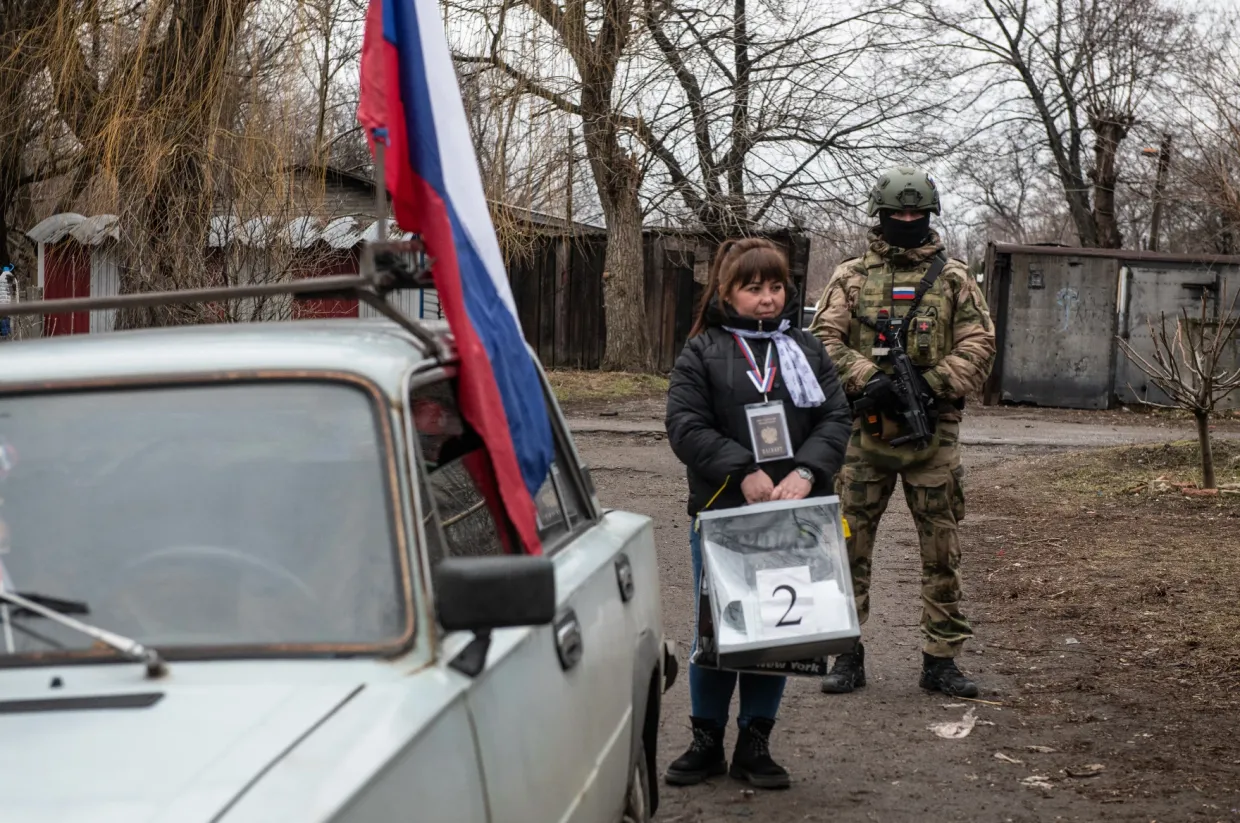
Going nuclearMacron has also invited fellow European leaders to explore if and how France’s nuclear arsenal could be deployed to deter Russian aggression against the rest of Europe. He also announced that the country’s largest air base would be modernized so it can house nuclear weapons.
Poland and Germany have both signaled a desire to engage in discussions about France’s nuclear umbrella for fear that American nuclear guarantees to Europe may soon be withdrawn.
“Even combining British and French nuclear capacity, I don’t think is enough to deter,” Estonia’s former President Toomas Hendrik Ilves told the Kyiv Independent. “What would be important is to have those weapons in countries like Poland so the delivery becomes much more realistic and feasible, and since no one wants to use them, it would have a far greater deterrent effect."
The U.K. and France, the only two European nuclear powers, have 515 nuclear warheads, and only France has the ability to deploy its nuclear weapons both by sea and air.
In comparison, the United States has 1,750 warheads, and Russia boasts 1,570. Both countries are able to deploy these weapons by land, sea, or air.
EU can do it, tooIn the meantime, Macron has played a role in revving up the European Union’s famously sluggish institutions to face the task at hand.
“France has moved very swiftly in order to encourage the EU institutions to do as much as possible to create additional incentives for member states to invest in defense,” Missiroli said.
“Some of the initiatives that have been presented recently by Ursula von der Leyen on behalf of the Commission go in that direction."
Those initiatives include a 150 billion euro ($161 billion) fund from which member states can borrow to spend on collective European defense and a loosening of EU debt rules to allow member states to borrow more to spend on military production.
While France is unlikely to use these mechanisms itself, European officials told the Kyiv Independent that at least 20 EU countries almost certainly will.
A fundamental challenge for France, and other European countries, will be finding the money to pay for this ramping up of European defense.
European officials told the Kyiv Independent that one of the reasons why France will not use the EU schemes to borrow more money, is that the government is worried about the country’s already huge debt burden and Macron’s domestic struggles.
The French president has said the money cannot come from raising taxes.
“Difficult decisions will have to be taken by what is now a very weak (French) government, a minority government, tolerated by some oppositions in order to shift resources from other areas of public spending onto defense,” Missiroli said.
To deliver on a flurry of promises made to Ukraine and other European states and revolutionize European defense before the country’s 2027 presidential election, Macron would need to find more money and more will to do so.
-
As Ukraine-Russia ceasefire progress inches forward, here’s where things stand
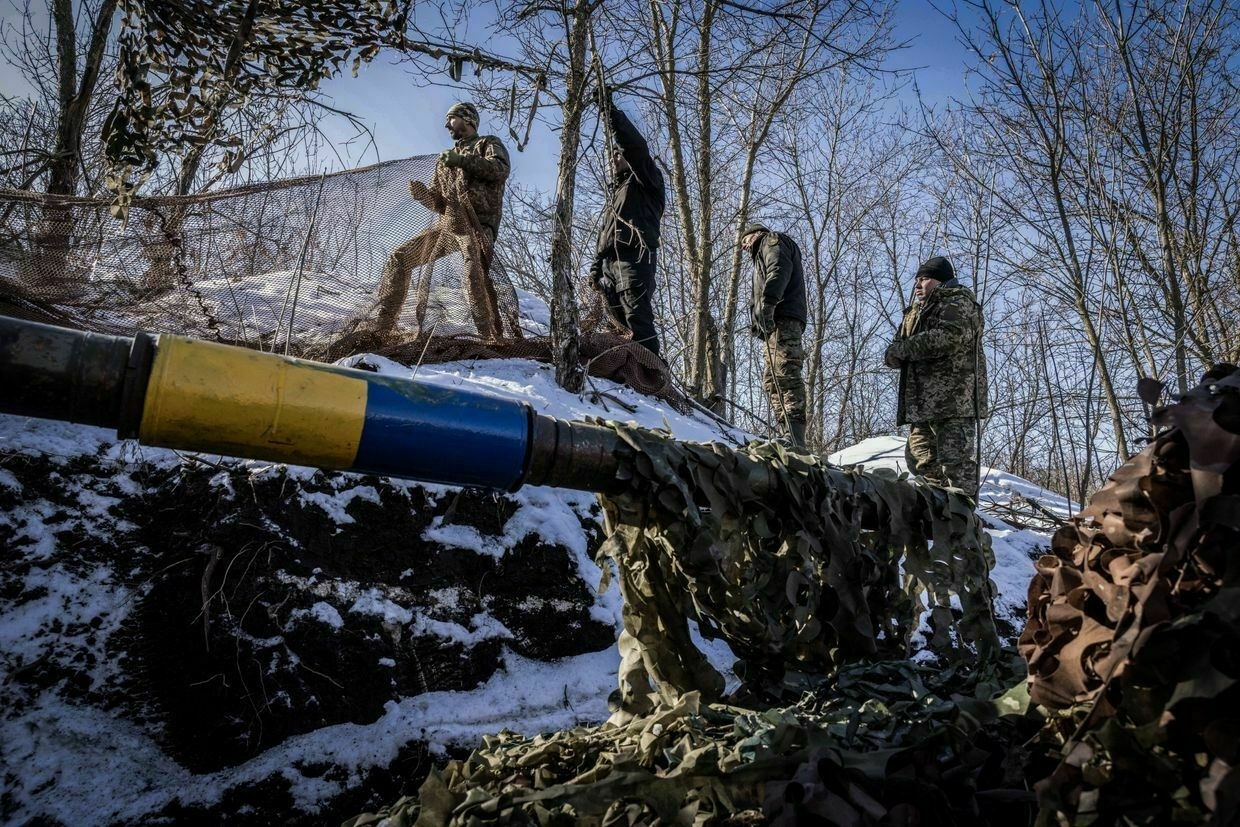
After three days of separate intensive discussions with the United States, Russia and Ukraine left the latest round of ceasefire talks in Saudi Arabia with agreements to declare a limited ceasefire in the Black Sea and to halt strikes against energy facilities.
While lauded by the White House as progress in U.S. President Donald Trump’s pledge to bring a swift end to Russia’s full-scale invasion, it’s still a long way from a full ceasefire and an end to the fighting.
Who has agreed to a full ceasefire?Ukraine already agreed to a U.S.-proposed full 30-day ceasefire, saying on March 11 that Kyiv was ready to take such a step if Russia also agreed to the terms.
So far, Russia has refused.
In response to the March 11 U.S.-backed ceasefire agreement, the Kremlin demanded a halt to American military aid to Ukraine, limits on the size of the Ukrainian military, and that Kyiv end mobilization — terms that are widely considered a capitulation of Ukraine.
Russia has since intentionally stalled talks for a ceasefire or peace deal, hoping to seize additional Ukrainian land and gain leverage while it has a strong hand on the battlefield, the Moscow Times reported, citing unnamed Russian officials.
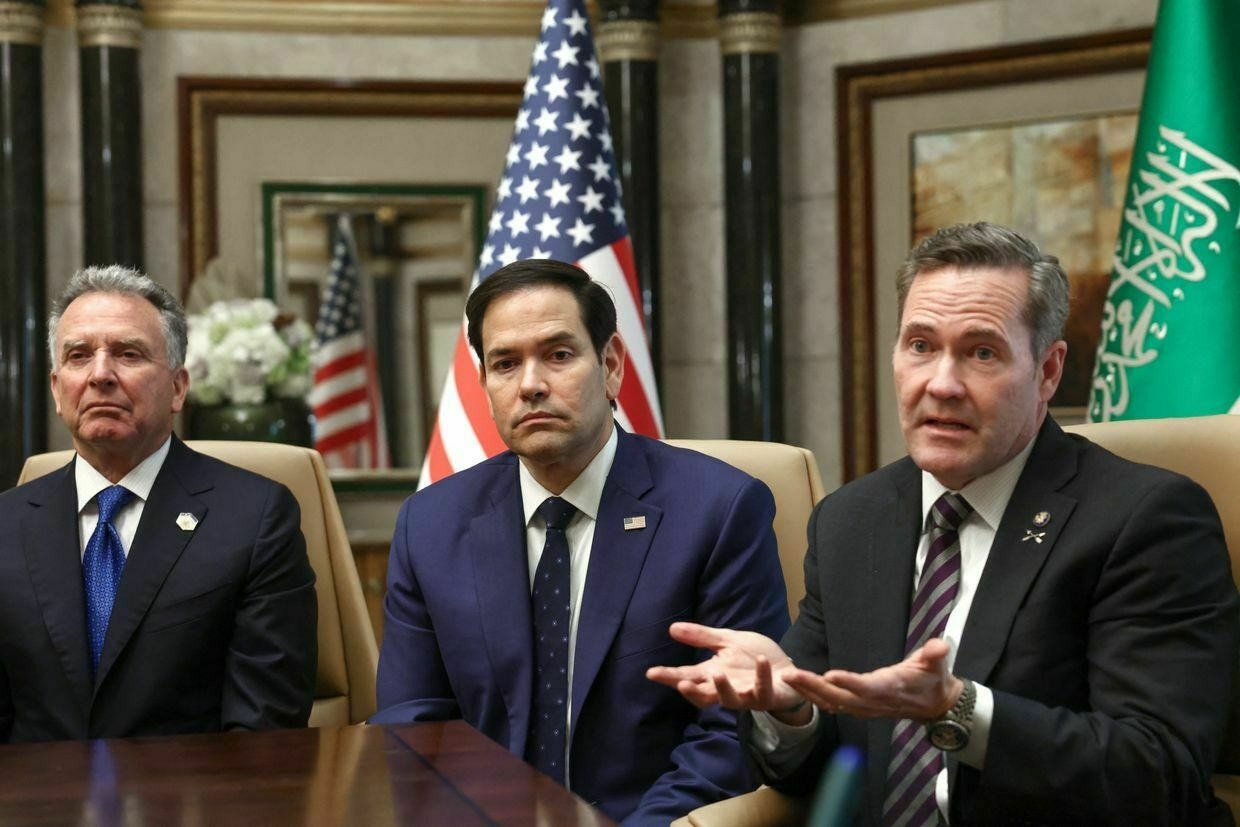
U.S. Secretary of State Marco Rubio (C), U.S. National Security Advisor Mike Waltz (R) and U.S. Middle East envoy Steve Witkoff attend an interview after meeting with Russian officials in Riyadh, Saudi Arabia, on Feb. 18, 2025. (Evelyn Hockstein / AFP via Getty Images) After U.S. Secretary of State Marco Rubio initially assessed on March 12 that a temporary ceasefire deal could be struck “within days,” the administration later walked that back to “weeks” after Russia refused the proposal.
An intelligence assessment published March 25 found that Ukraine and Russia may both prefer to prolong the war rather than finalize a peace deal that the two sides see as unfavorable, Bloomberg reported.
What have Russia and Ukraine agreed to so far?The two separate deals struck March 25 on maritime and energy attacks could be the first major breakthrough in negotiations. However, it is still unclear how the deals will be carried out and whether the sides will stick to the agreements.
According to the two separate White House statements, all parties on March 25 agreed “to ensure safe navigation, eliminate the use of force, and prevent the use of commercial vessels for military purposes in the Black Sea.”
In return, the “United States will help restore Russia’s access to the world market for agricultural and fertilizer exports, lower maritime insurance costs, and enhance access to ports and payment systems for such transactions.”
Many experts believe that the deal favors Russia, particularly because of the concessions made to Russia and the lack of protection for Ukrainian port infrastructure.
Is Russia serious about these partial ceasefires?Russia’s commitment to the deal was in doubt after a statement from the Kremlin said that the Black Sea ceasefire would take effect only after additional Western sanctions were lifted on financial organizations involved in food trade operations and on food producers and exporters.
These conditions were not mentioned in statements from the U.S. or Ukraine. President Volodymyr Zelensky said the partial ceasefire should take effect on March 25.
In response, President Zelensky accused Russia of deception and manipulating the conditions already agreed to.
The deal on energy strikes is not without dispute, either.
Strikes on energy facilities have been a key tactic for both sides in the war. Russian forces have regularly hit civilian infrastructure with missiles and drones, leaving large portions of Ukraine without power. Ukraine has used long-range strikes on Russian oil refineries to disable a crucial source of income that Russia uses to fund its war.
All parties agreed to “develop measures for implementing” an agreed-upon ban on striking energy facilities in Russia and Ukraine.
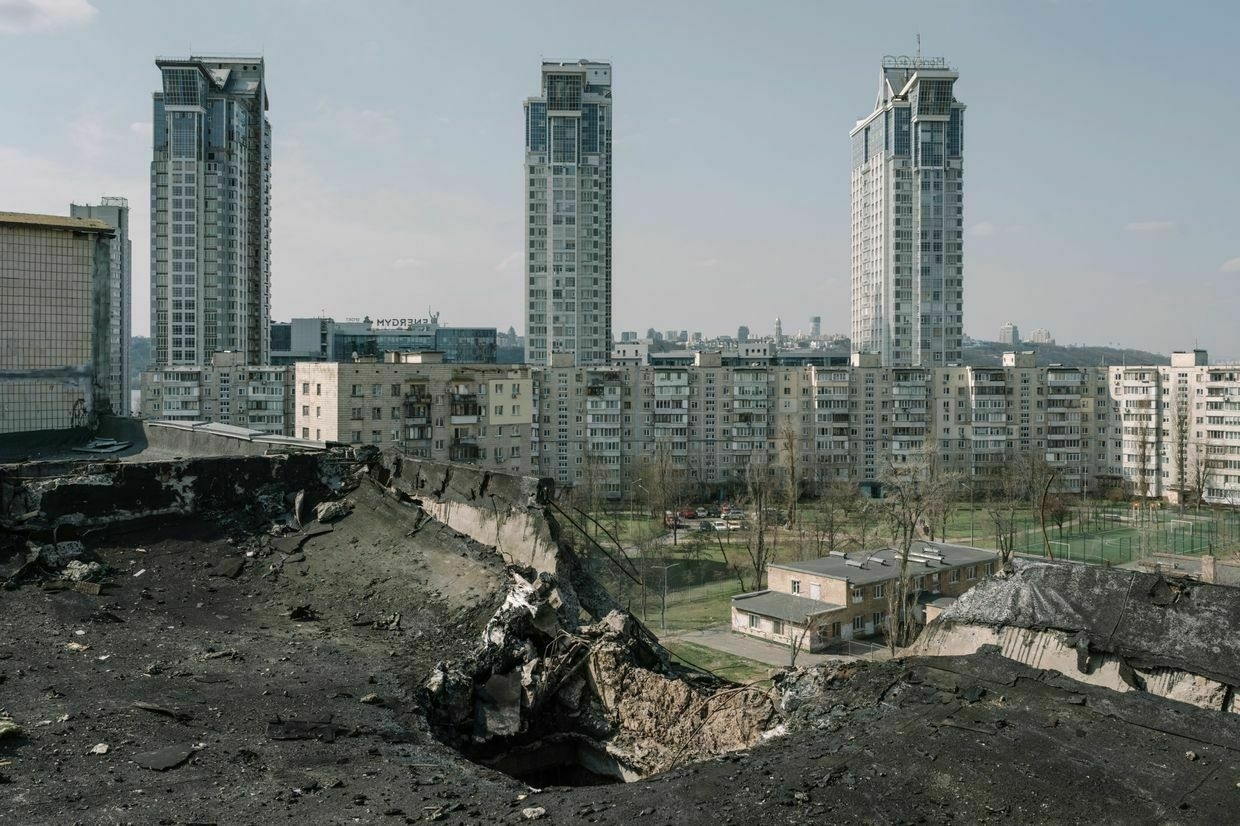
The impact site on the roof of a residential high-rise following a Russian drone strike in Kyiv, Ukraine, on March 23, 2025. (Andrew Kravchenko / Bloomberg via Getty Images) A Kremlin statement said that it had agreed with the U.S. to a list of facilities that are exempt from strikes, including oil refineries, power plants, substations, transformers, oil and gas pipelines, and storage facilities.
While both sides would benefit from a stop to energy strikes, Russia claimed that the end of energy strikes had already begun on March 18, while Zelensky said it should begin March 25.
On March 18, Russian President Vladimir Putin said that he had ordered a 30-day pause on strikes against energy facilities after rejecting a broader stop to military operations during a phone call with U.S. President Donald Trump.
Presidential advisor Dmytro Lytvyn said Ukraine had recorded eight confirmed hits on energy infrastructure since that phone call, though he did not provide details.
What has Russia conceded so far?The U.S. does not appear to have extracted any significant concessions from Russia.
In fact, in response to questions from reporters, Trump on March 25 said he was “looking at” lifting additional sanctions on Russia to secure the Black Sea ceasefire.
And while its statement about talks with Ukraine notes that the U.S. remains “committed” to exchanging prisoners of war, releasing civilian detainees, and returning Ukrainian children forcibly kidnapped, its separate statement on talks with Russia does not touch on these topics.
In stark contrast, Trump has repeatedly increased pressure on Ukraine to make concessions, including by crippling Ukraine’s battlefield capabilities by pausing military aid and intelligence sharing.
And then there was the hostile meeting broadcast around the world between Zelensky and Trump in the Oval Office, where Trump berated Zelensky for “not being grateful” enough for U.S. military aid.
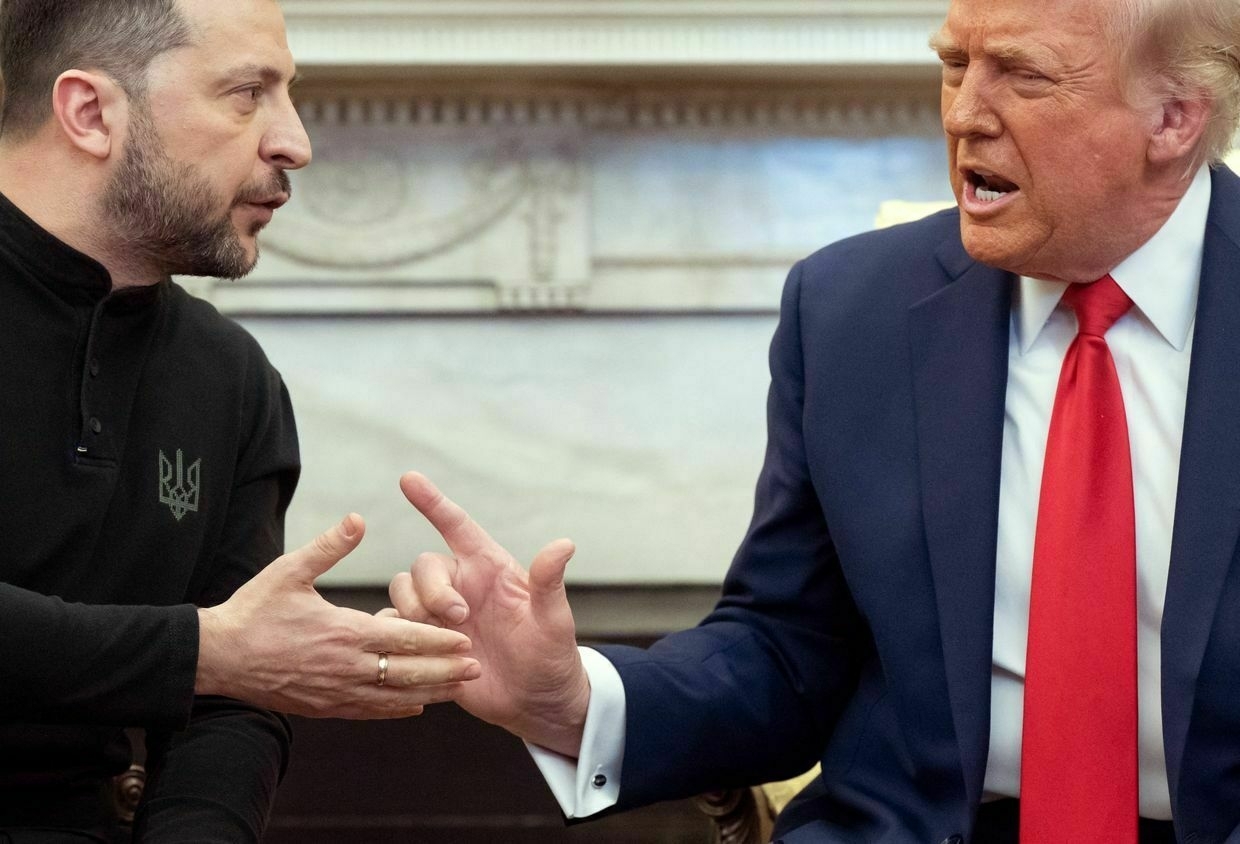
U.S. President Donald Trump and President Volodymyr Zelensky during a meeting in the Oval Office of the White House in Washington, D.C., on Feb. 28, 2025. (Saul Loeb / AFP via Getty Images) What is Russia demanding?Russia refused to sign the U.S.’s initial ceasefire proposal if it did not receive guarantees in exchange that Ukraine would receive no military aid and would not mobilize troops during the pause.
Moscow has so far held to its maximalist demands while avoiding increases in pressure from Trump. Its repeated demands for further concessions from Ukraine and the U.S. have mostly been met with compromises or further talks.
Among Moscow’s demands for a peace deal to end the war are the complete relinquishing by Ukraine of four oblasts — Luhansk, Donetsk, Zaporizhzhia, and Kherson. These oblasts contain wide swathes of territory that Ukraine currently controls, including the regional capitals of Zaporizhzhia and Kherson.
While Ukraine has signaled it is open to making territorial concessions by freezing the conflict along current battle lines, surrendering additional land to Russia is off the table, officials have said. Additionally, Ukraine will not officially recognize any occupied territory as part of Russia.

Women sit inside a bus as civilians are evacuated from Pokrovsk, Ukraine, on Dec. 28, 2024. (Wolfgang Schwan / Anadolu via Getty Images) Other sticking points between the two countries include Ukraine’s right to choose alliances and restrictions on Ukraine’s militarization.
In a recent interview with RBC-Ukraine, Foreign Minister Andrii Sybiha emphasized that other countries should not have veto power over Ukraine’s desire to join NATO and the EU. Russia has pushed for guarantees that Ukraine will be barred from joining NATO.
Can a full ceasefire still be achieved?Progress remains slow on a broader ceasefire or peace deal between Russia and Ukraine, with both countries holding positions that the other side considers non-starters.
While the United States has been pushing both sides to agree to a 30-day ceasefire covering all combat operations, it has acknowledged difficulties in reaching a deal.
How much patience Trump has with Putin remains to be seen, but some small cracks are beginning to show.
Asked by a reporter on March 25 whether he believes Russia “wants to see an end” to the full-scale war, Trump said, “I don’t know. I mean, I’ll let you know at a certain point. But I think that Russia wants to see an end to it, but it could be they’re dragging their feet."
Russia’s history of violating ceasefire agreements in UkraineAs U.S. President Donald Trump continues to push for a swift end to the war in Ukraine, fears are mounting that Kyiv could be forced to accept a peace deal on unfavorable terms, and that will leave it vulnerable to future Russian attacks. The fears aren’t unfounded. After RussiaThe Kyiv IndependentKateryna Hodunova
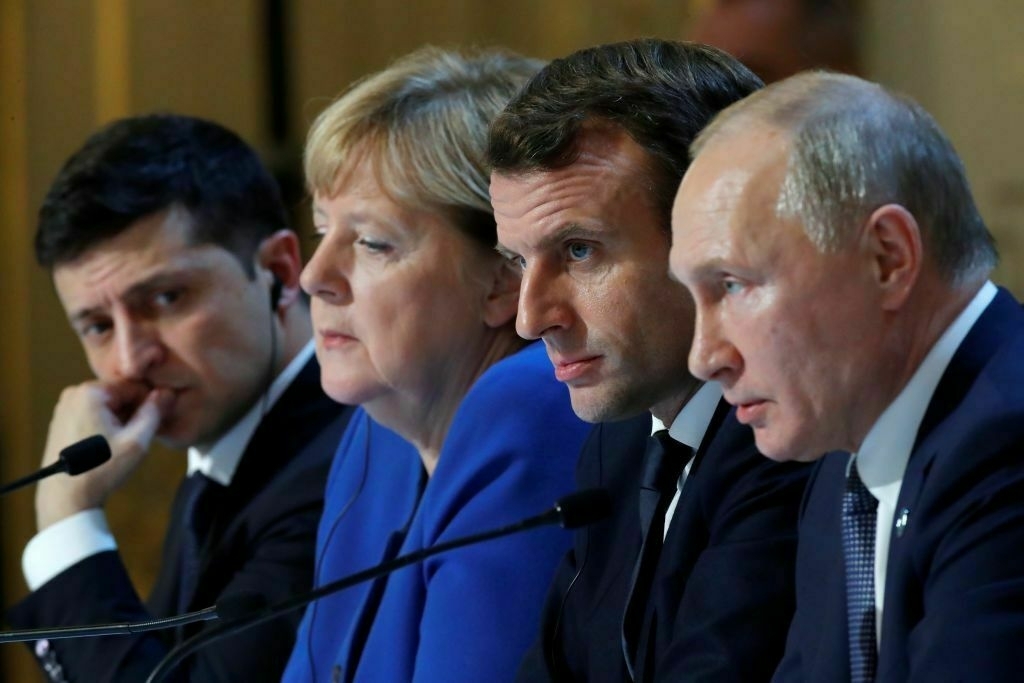
-
We asked Ukrainian soldiers if they'd fight Russia 'with their bare hands'
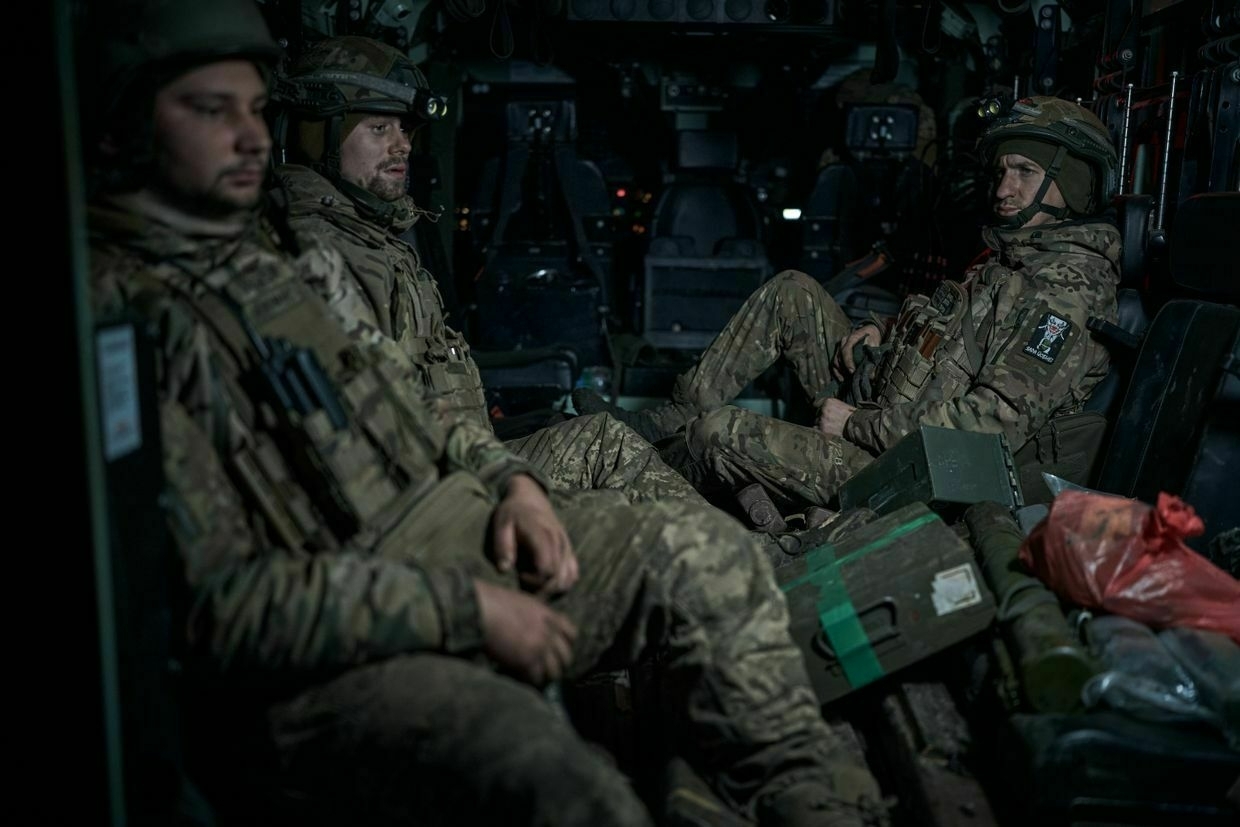
CIA Director John Ratcliffe on March 25 gave a rousing assessment of Ukraine’s desire to achieve an acceptable and lasting peace, insisting its people and armed forces would fight Russia with “their bare hands” if they had to.
“I want to say that with regard to the Ukrainian resistance, the Ukrainian people and the Ukrainian military have been underestimated for a period of several years now,” Ratcliffe said.
“From my reflections in observing, from an intelligence standpoint, I’m convinced that they will fight with their bare hands if they have to, if they don’t have terms that are acceptable to an enduring peace."
His comments came amid U.S. President Donald Trump’s ongoing efforts to broker a ceasefire and a broader peace agreement between Russia and Ukraine, a process which so far appears to be favoring Moscow’s goals over Kyiv’s.
While there is no indication at present that the U.S. intends to end military support for Ukraine, it has already paused it briefly during the peace talks process.
Adding to nervousness in Ukraine about what a peace deal could look like, comments last week from U.S. special envoy to the Middle East, Steve Witkoff, suggest the White House views occupied Ukrainian territories as part of Russia, something that Kyiv has said it could not agree to.
If an unacceptable peace deal is forced upon Ukraine, and it decides it has no choice to keep on fighting potentially without U.S. support and only “with their bare hands,” the country’s soldiers will have to carry out this order.
The Kyiv Independent asked five Ukrainian soldiers how they feel about the prospect. Some of them are only identified by callsign due to security reasons.
‘Architect,’ drone operator
I am sure most of us will stay no matter what. This is a tough topic when talking to relatives — such talks always boil down to the “When will you return home?” question.
It is necessary to stay. It is necessary to fight. It’s not that I want to spend more years in the army, I just realized it’s better to out push the Russians now. To finish and forget.
“It is better to end the war, spending a few more years on it, than prolong it for the rest of our lives and the lives of our children.”
If there is a real ceasefire at the front and we could have a rotation and some rest for a year or two at home, I would agree. Who wouldn't want to take a break?
But I understand — and whoever hasn't realized it yet should admit to themselves — that the war will not end as long as Russia has the resources for it. It will always have the desire. For Russia, war is fine, as is killing, stealing, and occupying.
Therefore, it is better to end the war, spending a few more years on it, than prolong it for the rest of our lives and the lives of our children.
We can fight and are already doing it. It's just the Western world, as one collective draft dodger, wants to close its eyes and expect everything to be resolved when it opens them.
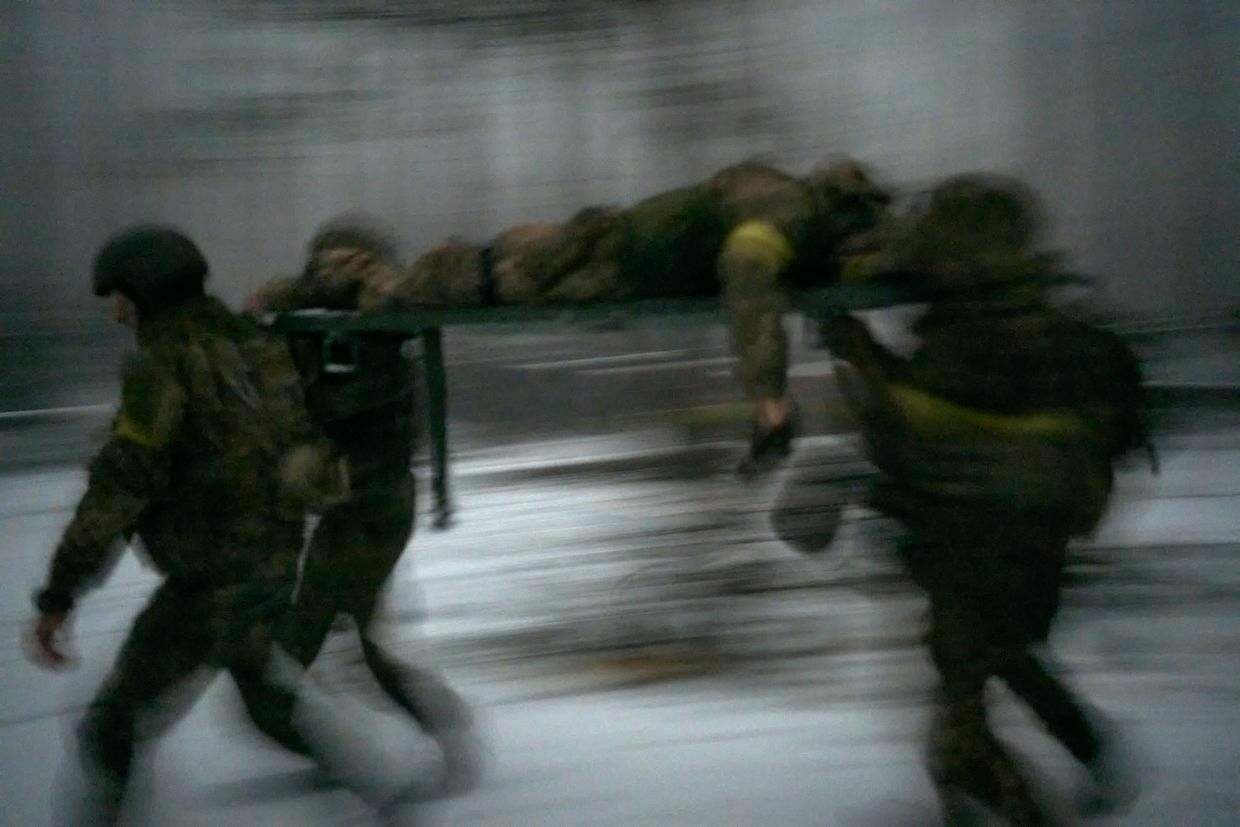
Medics evacuate a wounded soldier who tripped on a petal mine in complete darkness in a damaged forest on Jan. 27, 2024, in the Kupiansk frontline, Ukraine. (Kostiantyn Liberov / Libkos / Getty Images) Serhii Koniukh, military anesthetist, medical forces command
I agree with (Ratcliffe) — everyone said Ukraine would last three days and then everyone would scatter, but as you can see, we’re now in the fourth year.
And at the beginning, the aid was minimal — Javelins, NLAWs, Bayraktars. Of course, this isn’t the same war as three years ago — we depend a lot on U.S. assistance, especially air defense and shells.
But now we’re in the era of drone warfare, and we are the number one drone producer in the world. Nowadays, even the most advanced tank won’t last more than a few minutes on the battlefield against a drone operator — even if he’s hungover — who will still hit that massive machine.
I support his opinion that people can fight even with their bare hands, but there are certain things they won’t accept. We’ve "paid" too much and lost too much over these years.
The conditions for a ceasefire should include a buffer zone with a peacekeeping contingent to guarantee that the Russians won’t resume their offensive at any moment.
As Ukraine, Russia agree to ceasefire at sea, Moscow’s battered Black Sea Fleet is set to get a reprieveThe White House on March 25 announced that Ukraine and Russia had agreed to “eliminate the use of force” in the Black Sea, returning the spotlight to a theater of battle that has been relatively quiet for more than a year. Throughout 2022 and 2023, Ukrainian strikes against Russian ships,The Kyiv IndependentMartin Fornusek
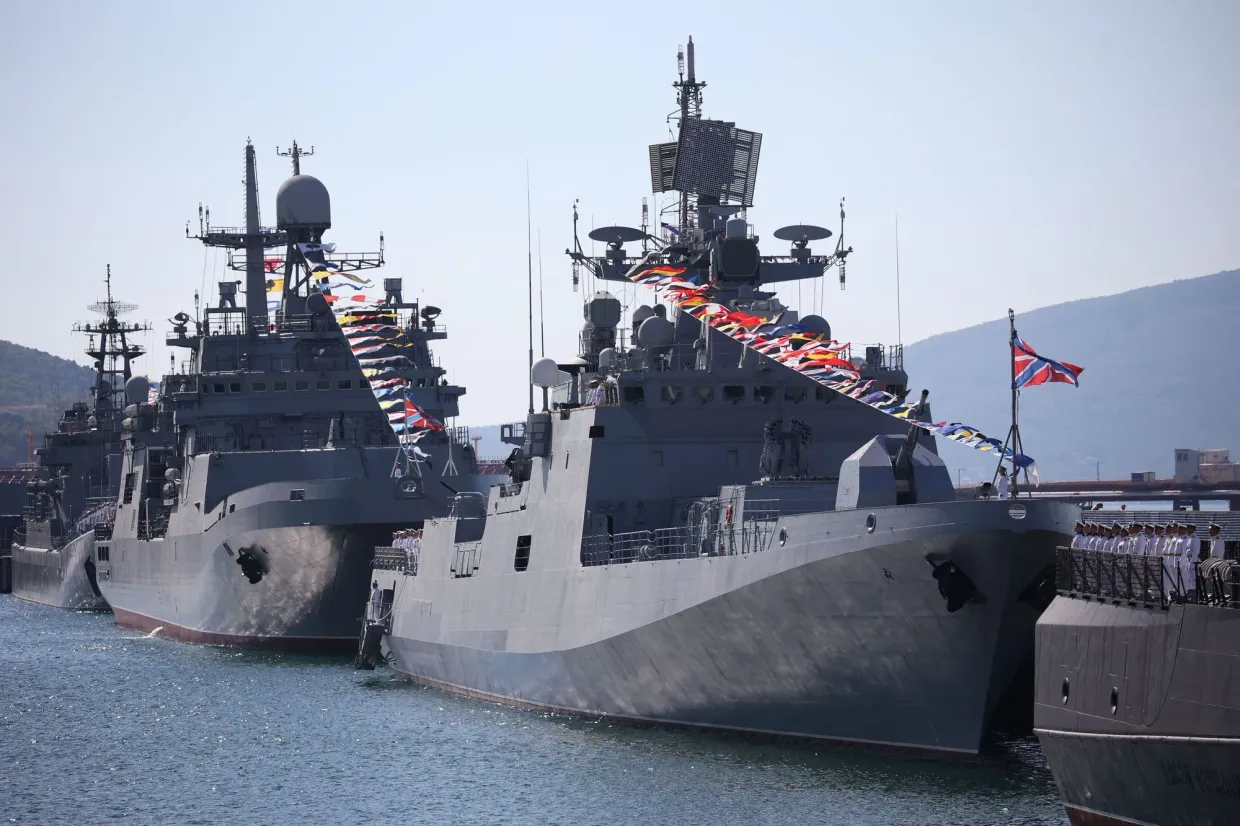
Myroslav Hai, officer, Ukraine’s Armed Forces
I want you to remember the experience of Chechnya — It was a very bad experience for a little country, a very proud country, but they won two wars with Russia. They lost in a political sense, but they won in the fighting.
Chechnya didn't have any weapons or any big army — they had only a proud people who decided to fight against Russia's aggression. And they only lost the political battle because no one in the world helped them. No one.
Thousands and thousands of Russian soldiers died in Chechnya.
In Ukraine, a million Russian soldiers are dead or wounded. And when in 2022, the world's intelligence agencies thought Ukraine would fall in a few days, we beat the Russians without any help, with Ukrainian weapons and the Ukrainian army.
I don't think the world will stop supporting Ukraine. Why? Because Ukraine fights not for money, not for territory — Ukraine fights for democracy. Maybe we will be the last country in the world that decides to fight for the principles of democracy.
This is a war of democracy versus dictatorship — Russia wants to build the second Soviet Union. That's why Ukraine has no other option. We have only one way, we must fight for our independence, for our families, for our country, and for our children.
As for a ceasefire — I have fought against Russia in various roles for 11 years. I've seen different presidents in Ukraine, the United States, and Europe, but only one president in Russia who has never kept a ceasefire for more than a few hours.
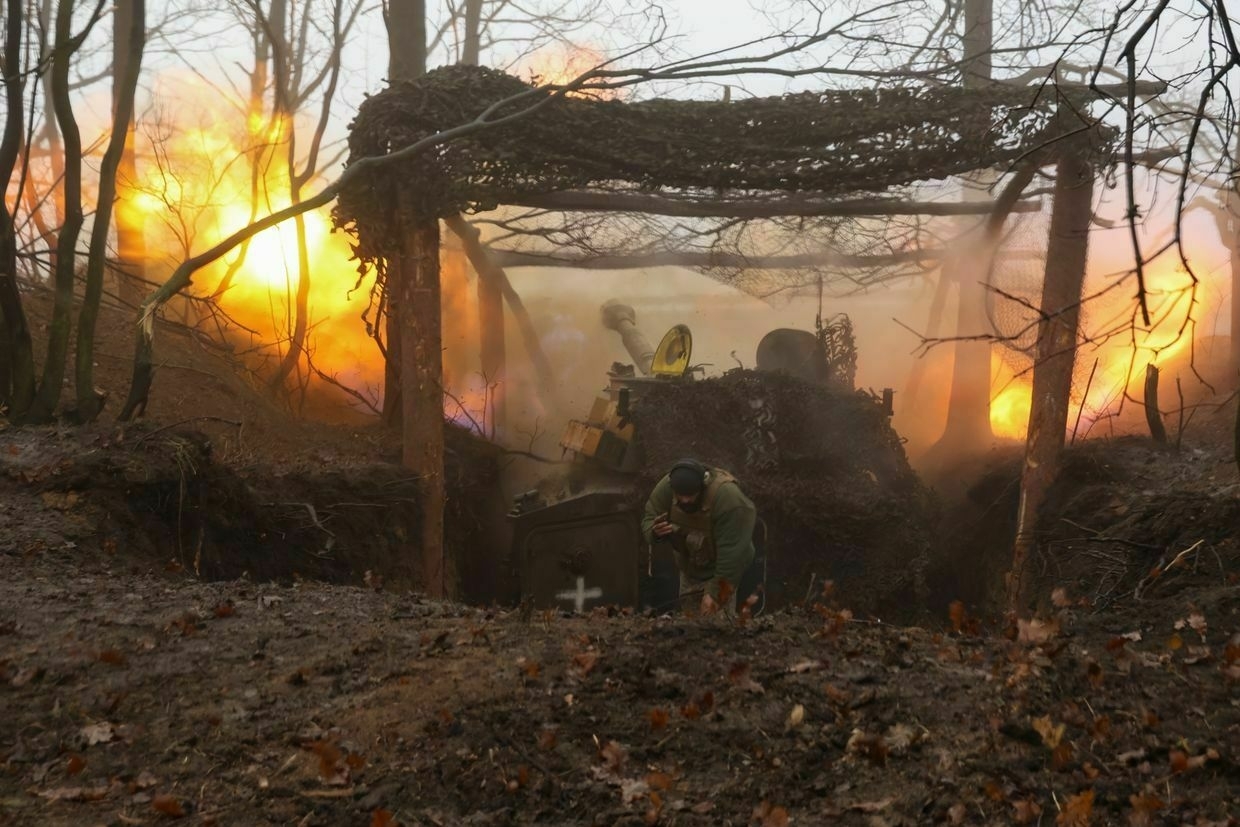
Artillery crew of the 37th Marine Brigade fires with 2S1 Gvozdika self-propelled howitzer on the position of Russian infantry in Donetsk Oblast on Dec. 24, 2024. (Ivan Antypenko/Suspilne Ukraine/JSC "UA:PBC"/Global Images Ukraine via Getty Images) 'Foucault,' soldier with the 66th Prince Mstyslav Khorobyi Brigade
I have no doubt in Ukrainians' motivation to fight for their land. However, modern warfare is significantly different from any guerrilla war of the past.
First, this is a war of technology, and second, it is a very expensive war. Therefore, the allies' key role is to supply technology and finance it.
This war can only end when one side is so dominant over the other that any resistance will not have any significant meaning. For this, we inevitably need the support of our Western partners, because this is not just a Russian-Ukrainian war.
It is a war for everything that lies at the heart of European civilization against Russian necrophilia, which is only a simulacrum or a shadow of civilization.
Serhii, a drone pilot stationed in Kharkiv Oblast
Yes (we will fight with our bare hands), and we have no choice but to continue the fight. Genocide is already being carried out in full swing in the occupied territories. So yes, the fight will continue until everyone is killed.
And considering how well Trump makes deals, it’s a shame. On the one hand, we are fighting with the bastards, on the other hand, the allies decided to almost side with the Russians.
I don’t know how but Europe should get its act together now and help us as much as is needed. Because the Russians have no reason not to fight further west now.
Now we will sign the surrender, go home and the Russians will have the only army in the region capable of fighting. Good luck negotiating with them later.
Explainer: Some Ukrainians speak Russian language – it doesn’t make them RussianBorn in Crimea and raised in Kherson, journalist Yevheniia Virlych grew up speaking both Ukrainian and Russian in her daily life. It wasn’t until 2022, when she and her family lived through the Russian occupation of Kherson Oblast, that they made the definitive choice to abandon speaking Russian alt…The Kyiv IndependentKate Tsurkan
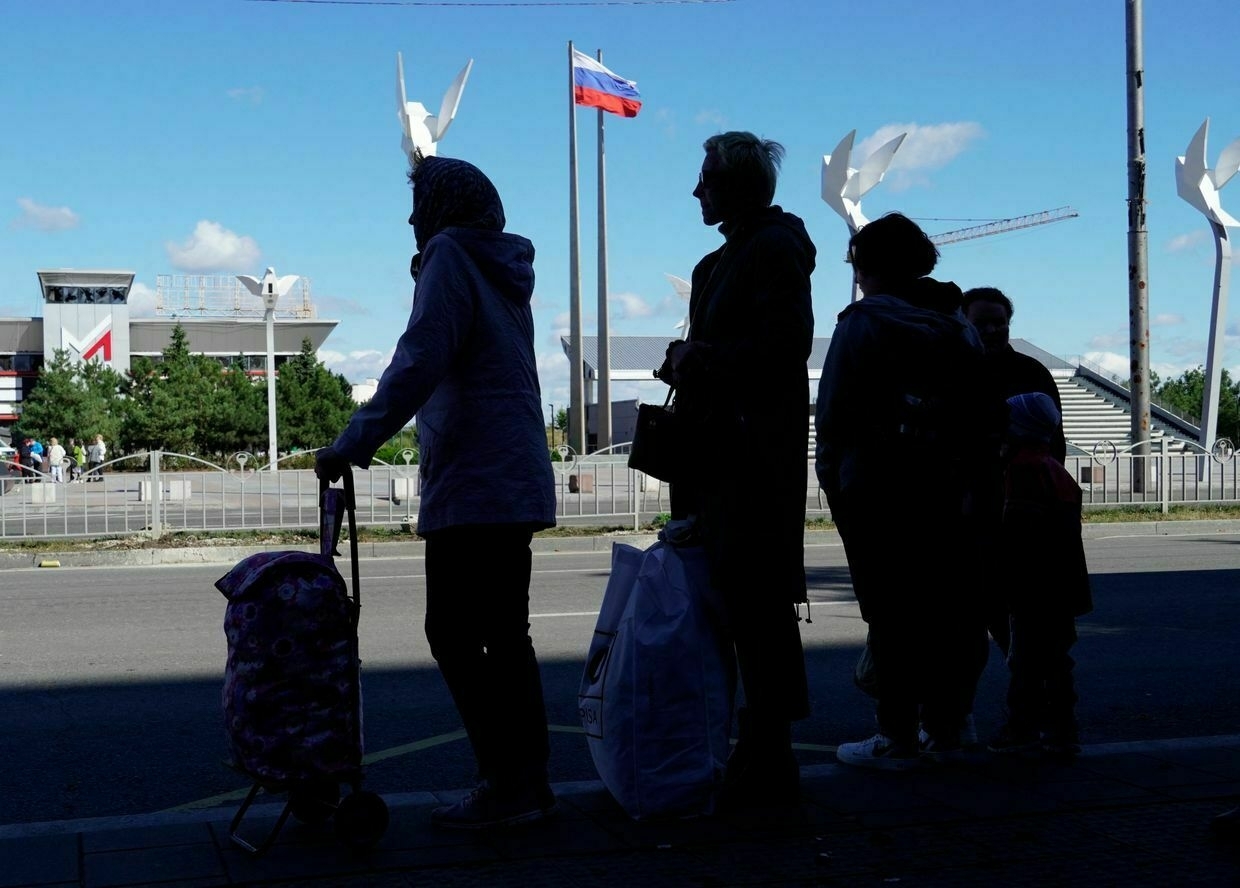
-
Ukraine war latest: Russia has struck Ukraine's energy sites 8 times since March 18, Kyiv says
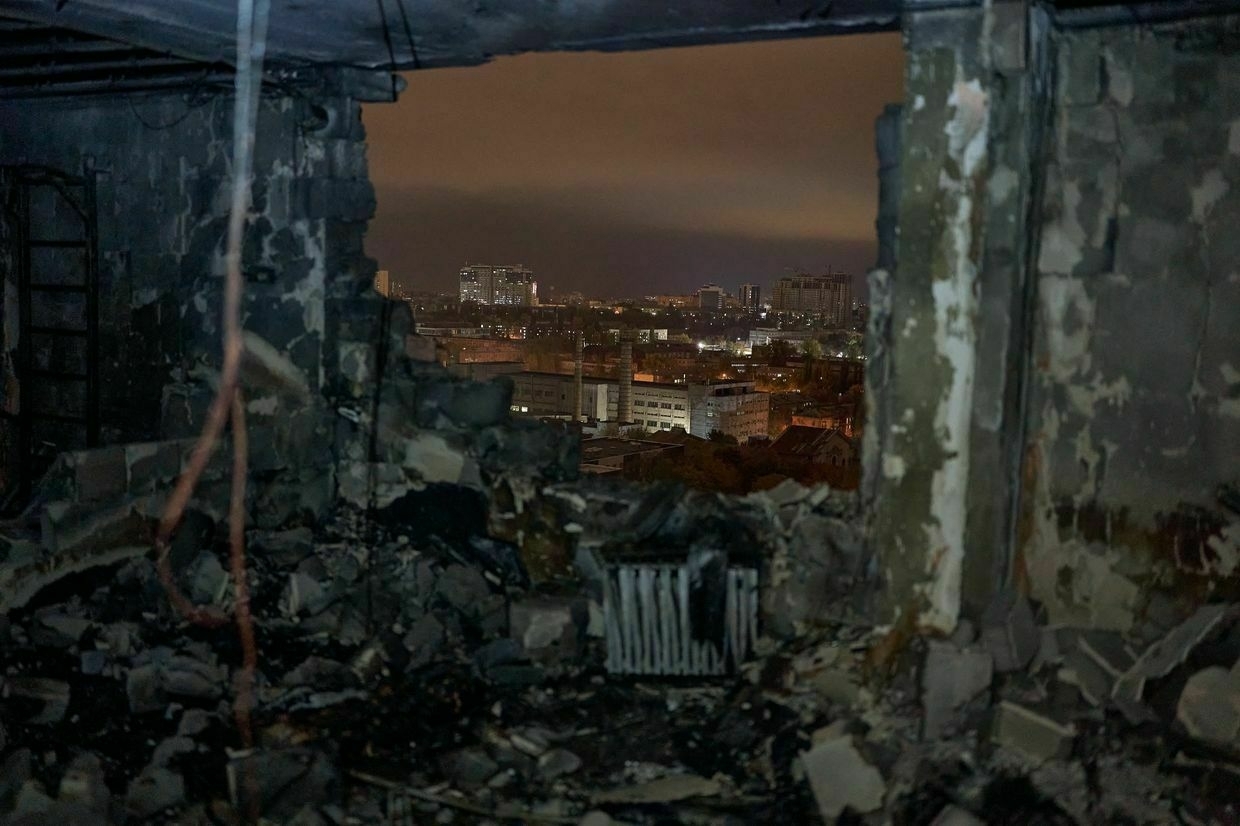
Key developments on March 26:
- Russia has struck Ukraine’s energy sites 8 times since March 18, Zelensky’s advisor says
- Ukraine’s list of energy facilities banned from attacks differs from Russian version, Energy Ministry says
- Ukraine-US relations ‘back on track,’ Zelensky’s chief of staff says
- Russia’s withdrawal from Ukraine condition for easing EU sanctions, commission says
Ukraine has recorded eight confirmed hits against its energy facilities by Russian forces since March 18, when the Kremlin claimed to have ordered a pause on such attacks, presidential advisor Dmytro Lytvyn said on March 25.
“Moscow is a city built on lies, no surprise to anyone in Ukraine,” President Volodymyr Zelensky’s aide said.
Russian President Vladimir Putin said on March 18 that he had ordered a 30-day halt on strikes against energy facilities after rejecting a full truce on all military operations in a phone call with U.S. President Donald Trump.
After separate rounds of talks between the U.S., Russia, and Ukraine in Riyadh, Kyiv and Moscow declared a halt on strikes against energy facilities and military operations in the Black Sea.
Moscow claimed that the Black Sea ceasefire would take effect only after some Western sanctions were lifted, while alleging that the energy truce had been in effect since March 18.
“But the reality is — since March 18, they’ve been hitting our energy sites with bombs, attack drones, and first-person-view drones,” Lytvyn commented.
“We’re not going into all the details, but there have already been eight confirmed hits on energy facilities."
The official did not specify which facilities were hit or when. The Kyiv Independent could not verify the claims.
DTEK, Ukraine’s largest energy company, told the Kyiv Independent that their facilities recorded no hits between March 18 and 25, despite being regularly targeted before that.
Lytvyn also noted that Ukrainian air defenses have shot down hundreds of Russian drones every night since March 18, claiming that “many of those drones were likely targeting other energy facilities."
Russia accused Ukraine on March 26 of launching a drone attack at energy facilities in Russia and occupied Crimea — a claim the Ukrainian military has denied.
‘Not what Ukraine needs’ — Black Sea ceasefire favors Russia more than Ukraine, say expertsWhile the White House celebrates a ceasefire in the Black Sea after a 12-hour meeting in Riyadh, in Ukraine, the enthusiasm is muted. The agreement is missing crucial securities that Ukraine urgently needs, including protecting its ports from Russian attacks as well as opening up the blockaded Myko…The Kyiv IndependentDominic Culverwell
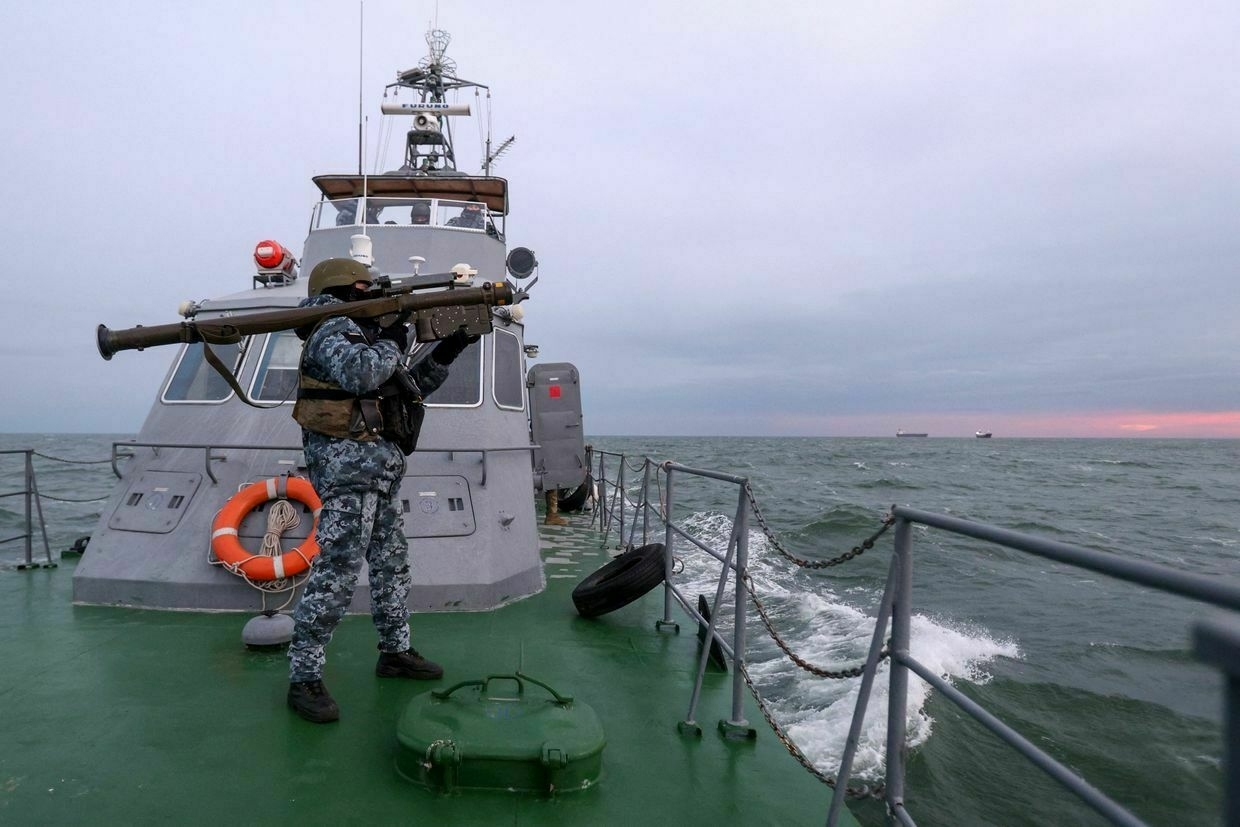
Ukraine’s list of energy facilities banned from attacks differs from Russian version, Energy Ministry saysUkraine’s list of energy facilities Kyiv wants Russia to stop striking during a partial ceasefire is at odds with Russia’s, European Pravda reported on March 26, citing a response to a request from the Energy Ministry.
The Energy Ministry told European Pravda that Kyiv and Washington had agreed to a list of energy facilities Ukraine wants Russia to stop striking as part of a truce on energy attacks. This list differs from the one Russia and the U.S. agreed to a day prior, according to the Energy Ministry.
The Kremlin said on March 25 that Russia and the U.S. had agreed on a list of Russian and Ukrainian energy facilities that were barred from attacks under a partial ceasefire between Kyiv and Moscow.
According to the Kremlin, the list included oil refineries, as well as oil and gas pipelines and storage facilities, including pumping stations. The list also included power production and transmission facilities, including power plants, substations, and transformers. Among power plants, the Kremlin specifically named nuclear power stations and hydroelectric dams.
Ukraine’s list includes a ban on strikes on the on the electric power, oil and gas, nuclear and coal industries, as well as energy equipment manufacturing facilities.
Ukrainian oil and gas production facilities — which, according to the Energy Ministry have suffered the most Russian attacks as of late — weren’t on Kremlin’s list, the ministry told European Pravda.
Ukraine-US relations ‘back on track,’ Zelensky’s chief of staff saysRelations between Ukraine and the U.S. are “back on track," Presidential Office Head Andriy Yermak said in an interview with Reuters published on March 26, almost a month after the Oval Office clash between Ukrainian President Volodymyr Zelensky and U.S. President Donald Trump.
“I think we have great conversations with the Americans,” Yermak said. “I think we are back on track."
Ukrainian-U.S. relations reached a low point following the White House clash between U.S. Trump, Zelensky, and Trump’s Vice President JD Vance on Feb. 28, with Washington pausing military aid to Kyiv and critical intelligence sharing.
According to Yermak, the U.S. realized during the talks with Kyiv that the Ukrainian side “is very serious."
“Dear American friends, you understand that we are partners. This was our goal,” Zelensky’s chief of staff said.
Speaking about Russia’s position, Yermak said that its condition to lift some Western sanctions in terms of the partial ceasefire is indicative of Moscow’s approach to peace talks as such.
“It shows that they (Russia) did not accept an unconditional ceasefire, which is nonsense. Our logic is that we need to go in without any conditions,” he added.
Ukraine approves Bird of Prey drone system for combatThe system was developed based on battlefield experience, optimizing its effectiveness against enemy vehicles and fortified positions, Ukraine’s Defense Ministry said.The Kyiv IndependentTim Zadorozhnyy
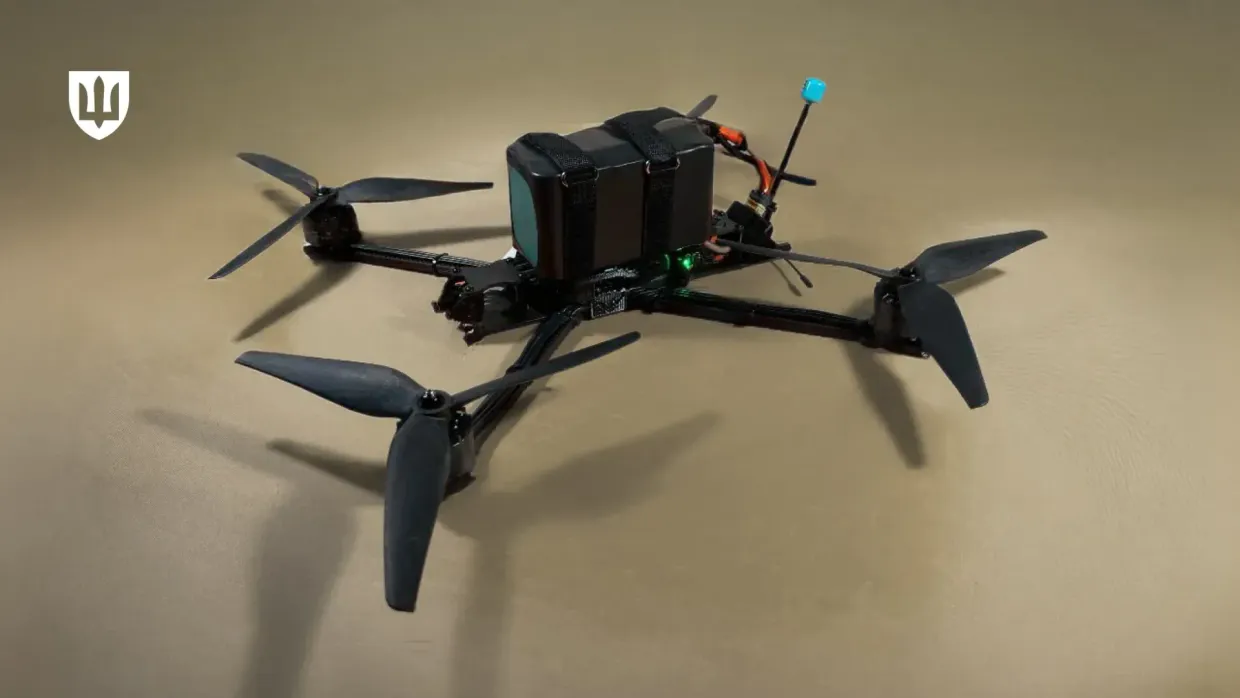
Russia’s withdrawal from Ukraine condition for easing EU sanctions, commission saysRussia’s “unconditional withdrawal” from Ukraine is one of the main preconditions for changing or lifting EU sanctions, European Commission spokesperson Anitta Hipper told Ukrainian media outlet Suspilne on March 26.
The spokesperson emphasized that EU sanctions do not target Russia’s agricultural trade, including food, grain, and fertilizers, with third countries. She reiterated that lifting sanctions would require Russia to withdraw fully from Ukraine.
Washington has agreed to help facilitate Russian food and fertilizer exports by lowering maritime insurance costs and enhancing access to global ports and payment systems. U.S. President Donald Trump previously said that Washington is “looking at” the possibility of lifting some sanctions on Russia to secure the Black Sea ceasefire.
Moscow insists that the Black Sea ceasefire will take effect only if the West lifts sanctions on Rosselkhozbank and other financial institutions linked to food trade, restoring their access to the SWIFT payment system.
The Kremlin is also demanding the removal of sanctions on Russian food producers, exporters, and Russian-flagged cargo vessels involved in agricultural trade.
Note from the author:
Ukraine War Latest is put together by the Kyiv Independent news desk team, who keep you informed 24 hours a day, seven days a week. If you value our work and want to ensure we have the resources to continue, join the Kyiv Independent community.
‘Outright propaganda’ — Dutch university to screen ‘Russians at War’ and host panel with controversial directorA Dutch university is to screen the controversial documentary “Russians at War” and a panel discussion with its director, despite Ukrainian calls for it be be canceled because it “whitewashes… murder, rape, and torture.” Canadian-Russian director Anastasia Trofimova’s documentary has been criticize…The Kyiv IndependentYuliia Taradiuk
